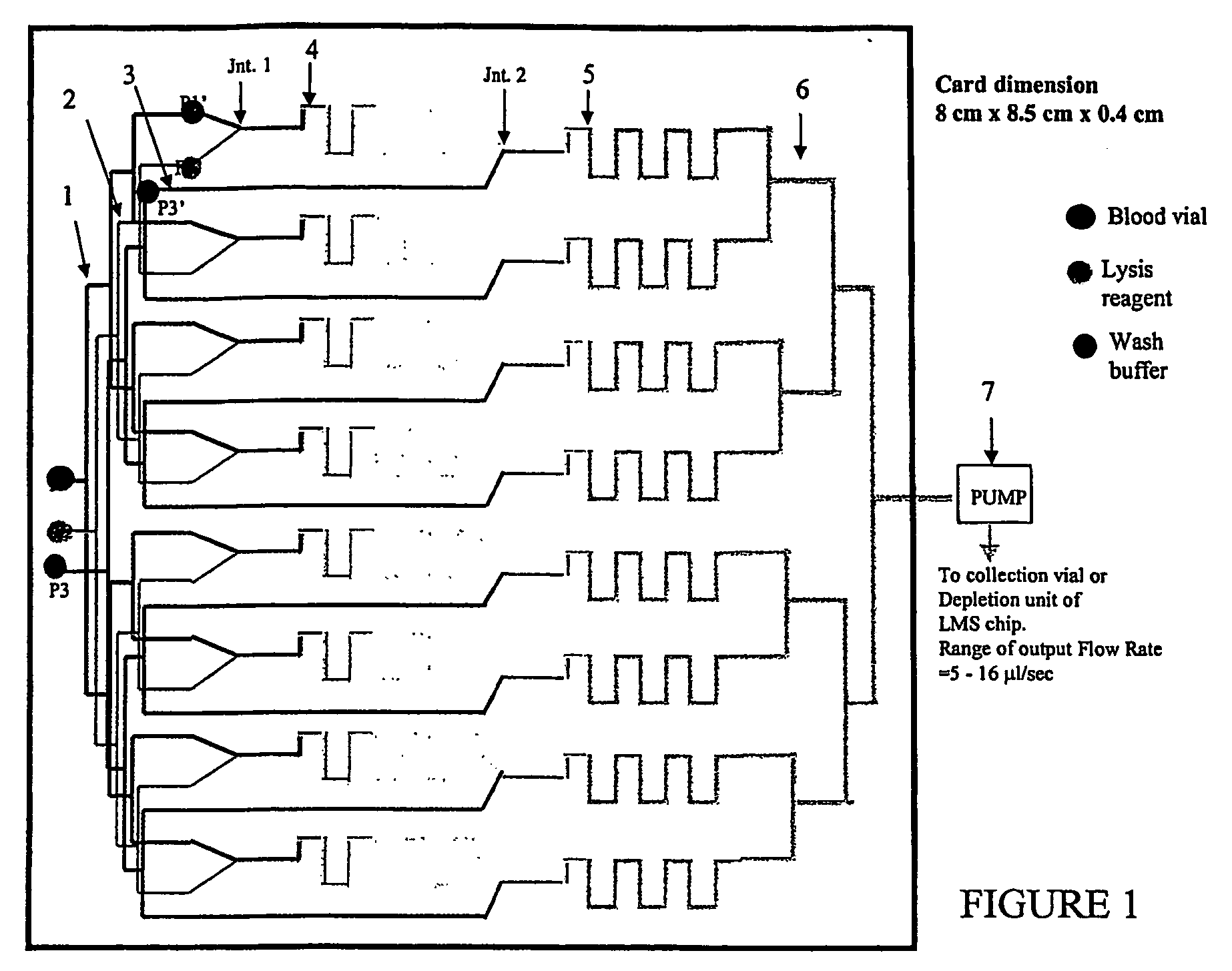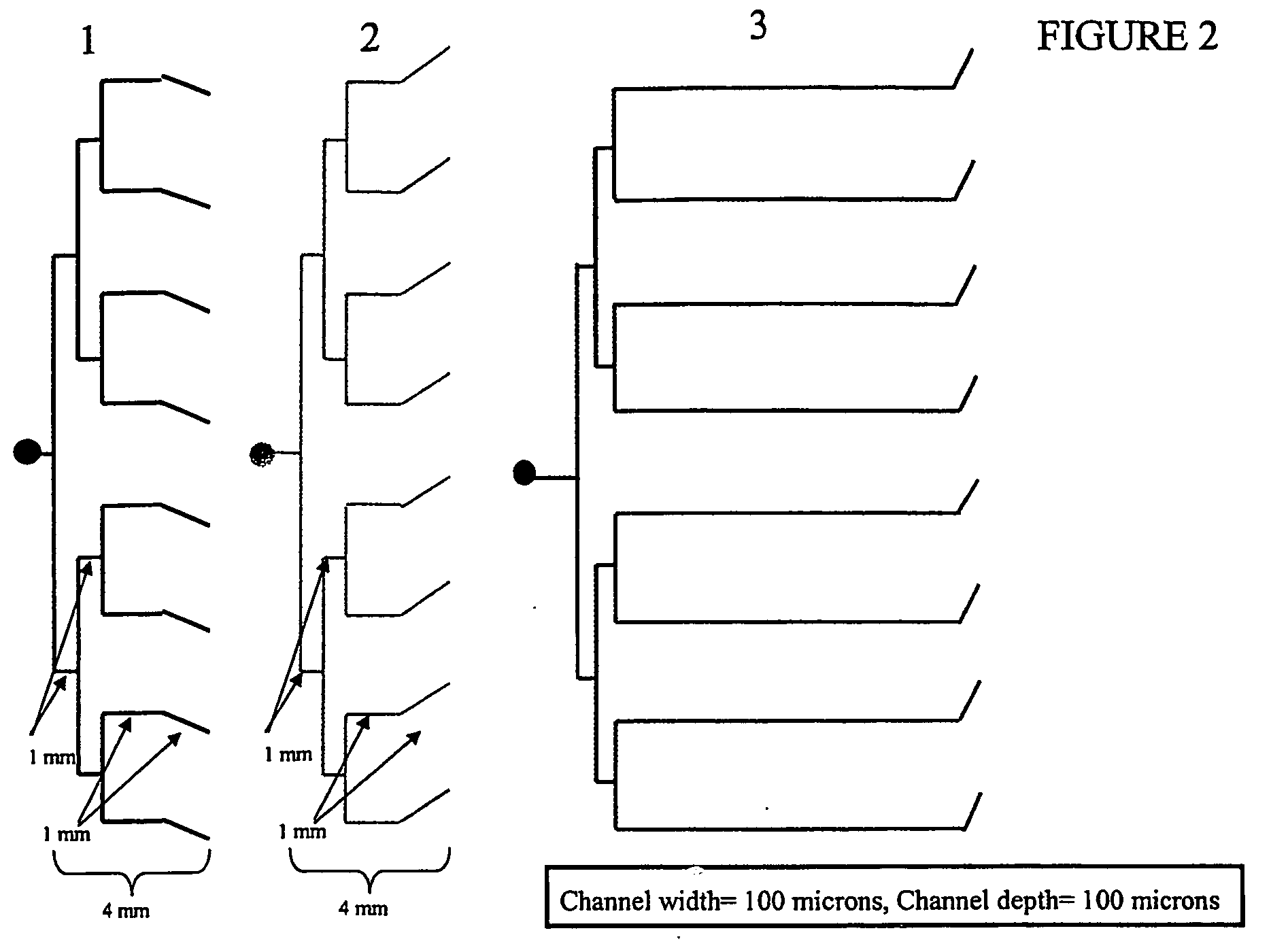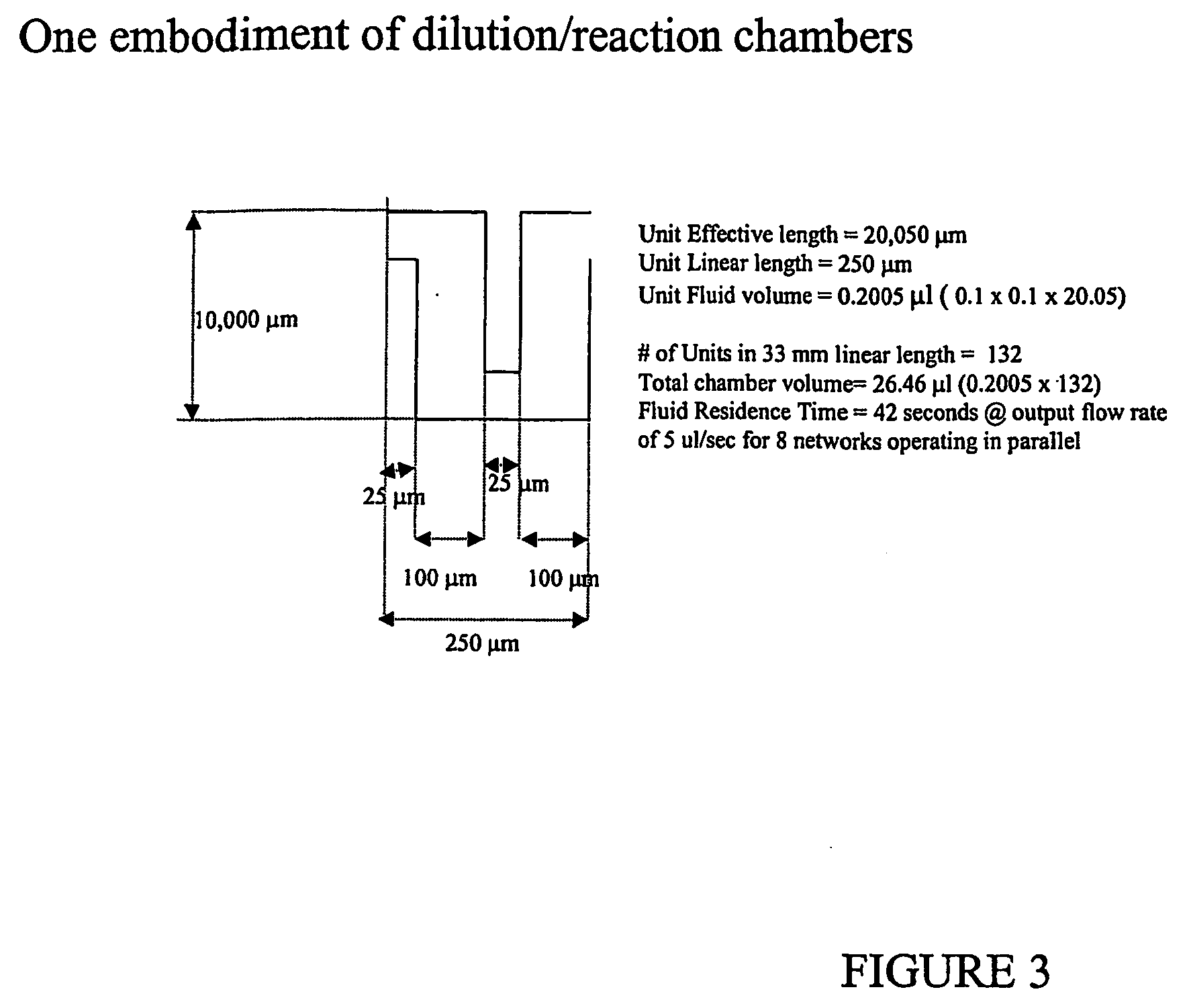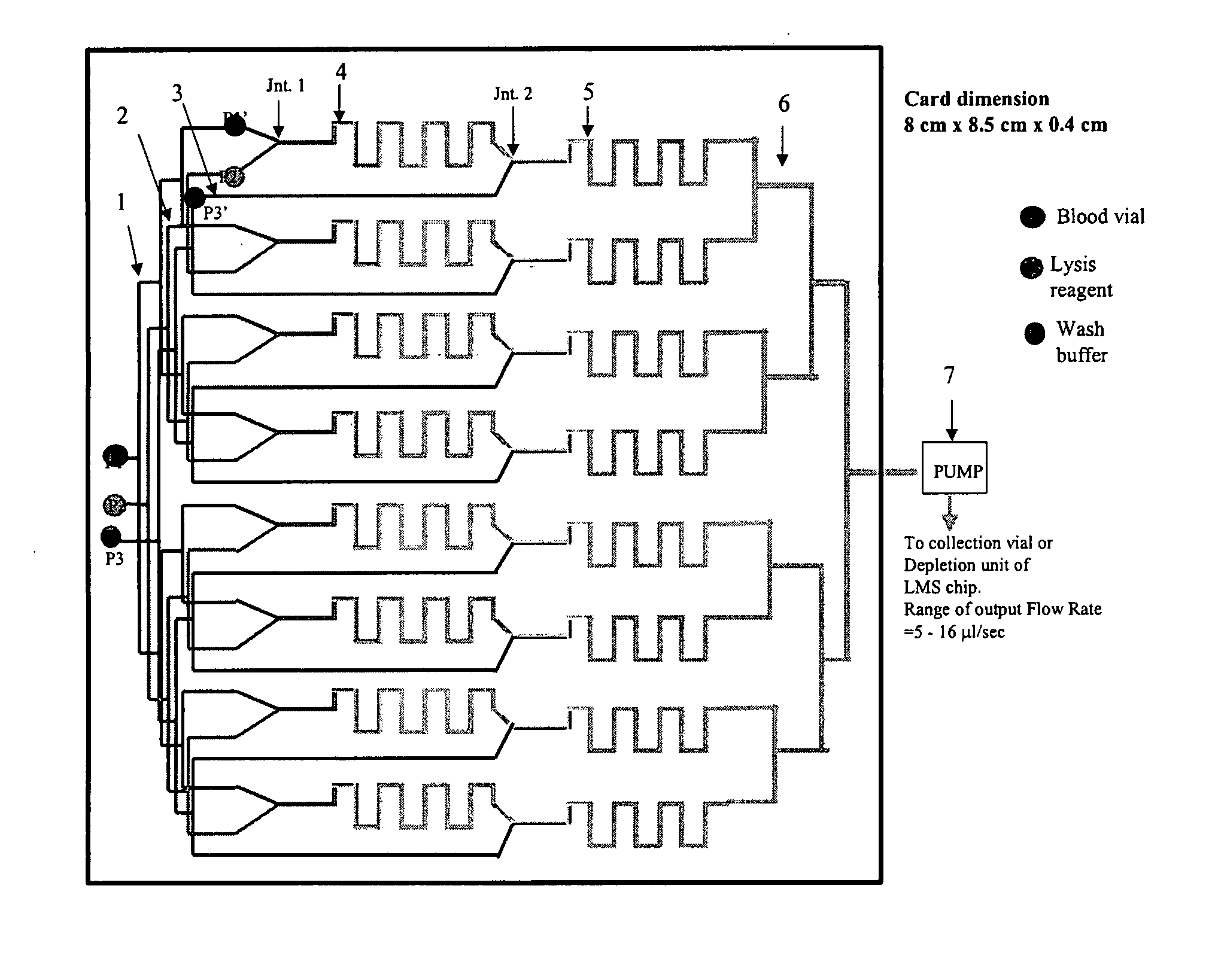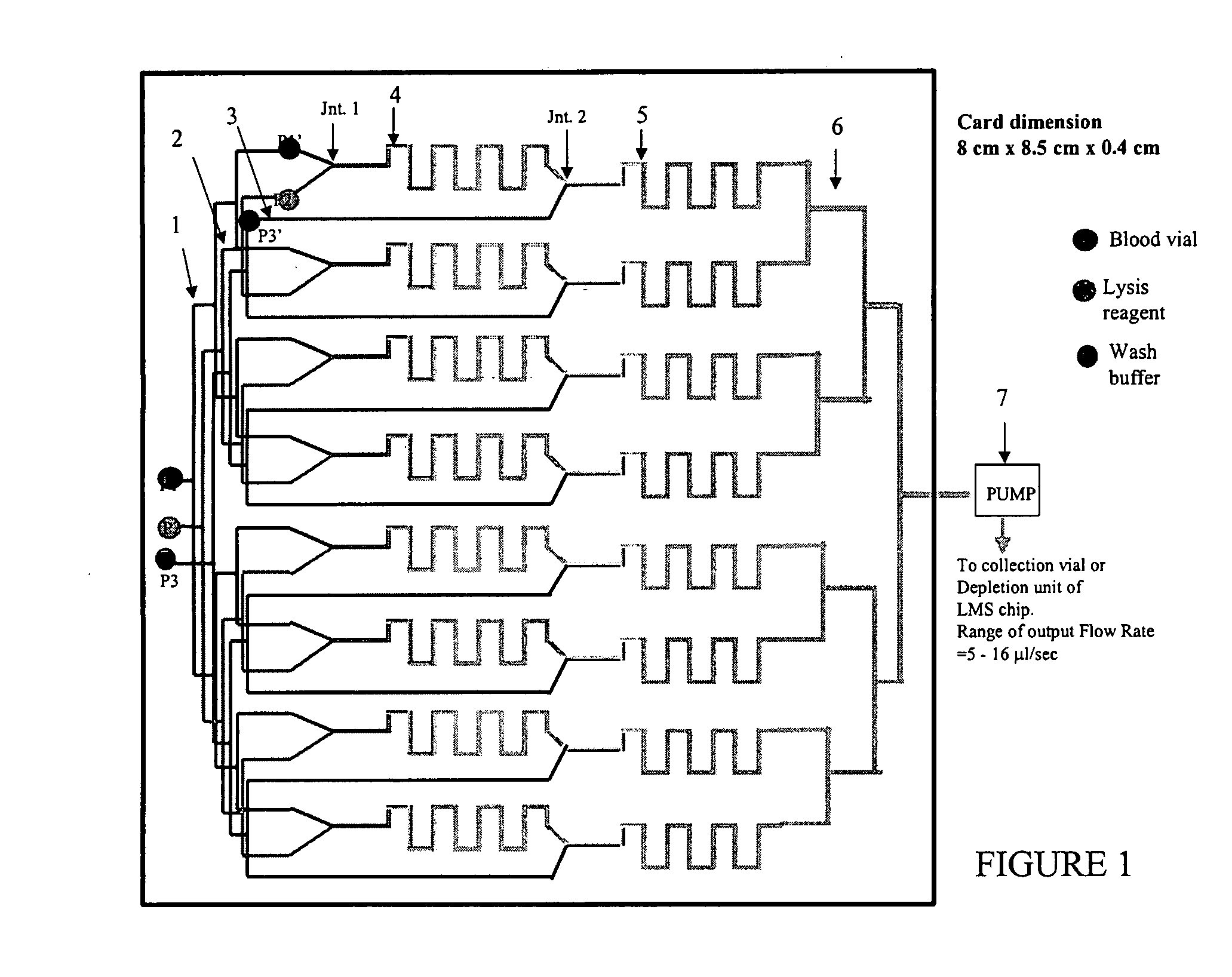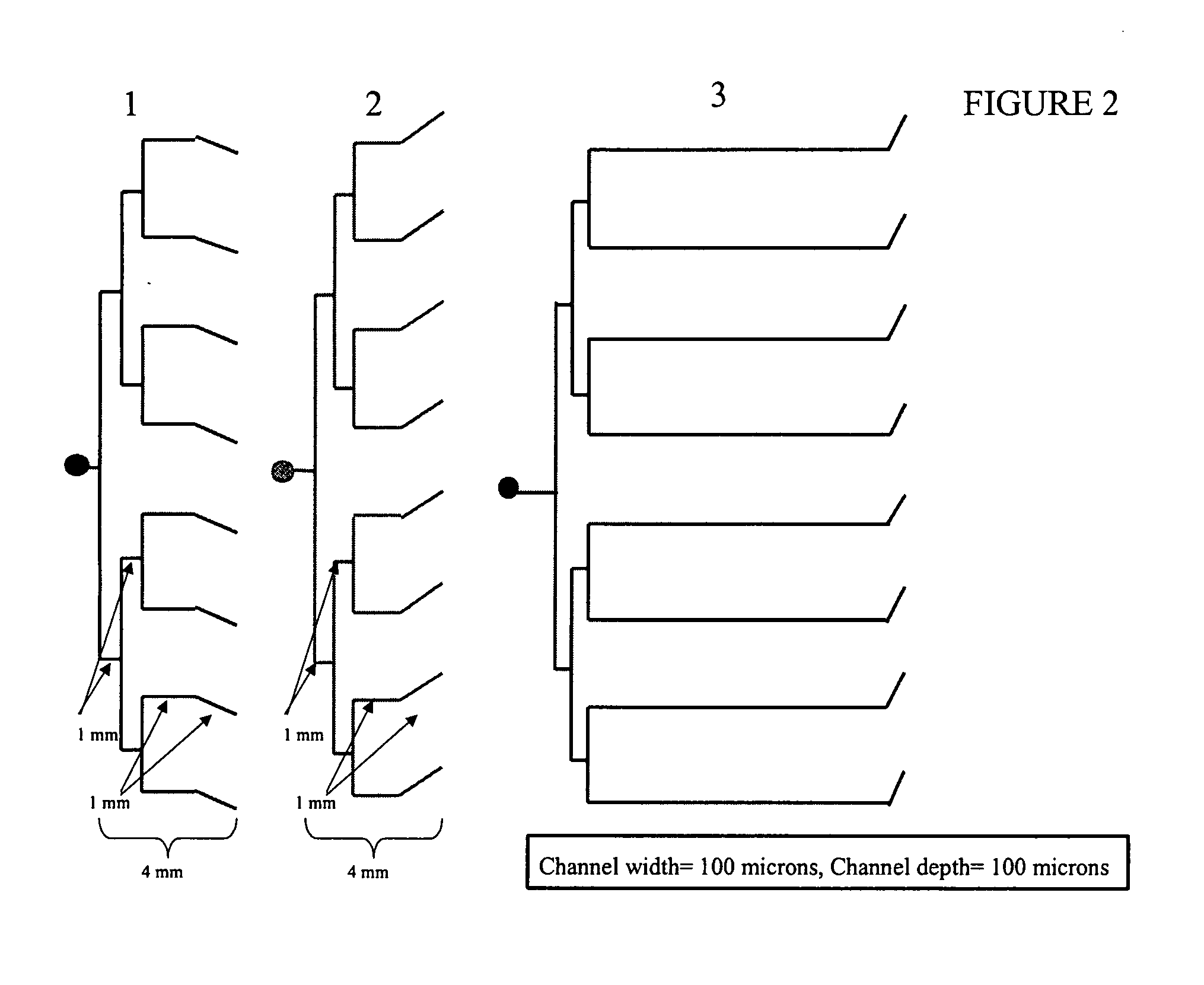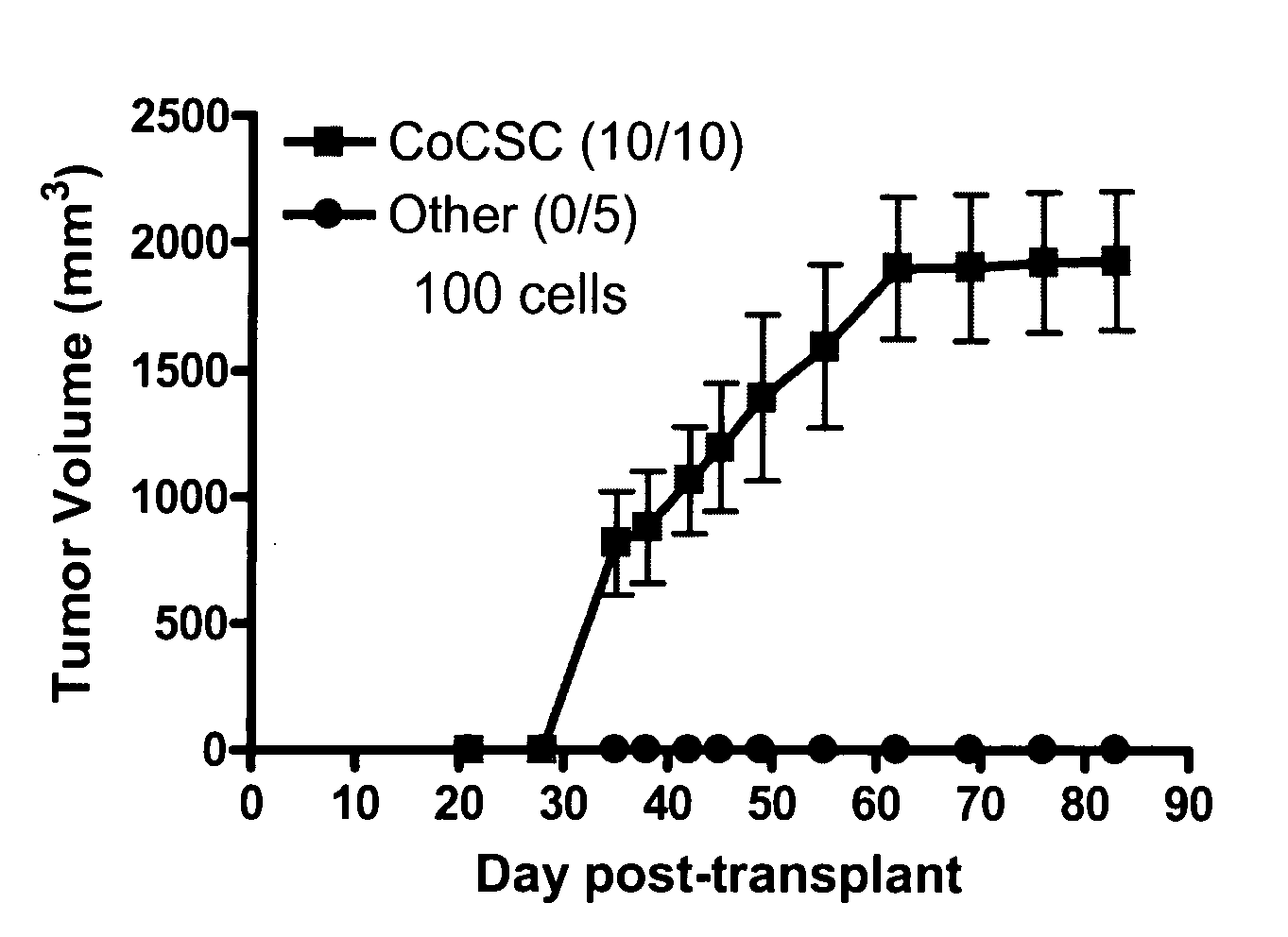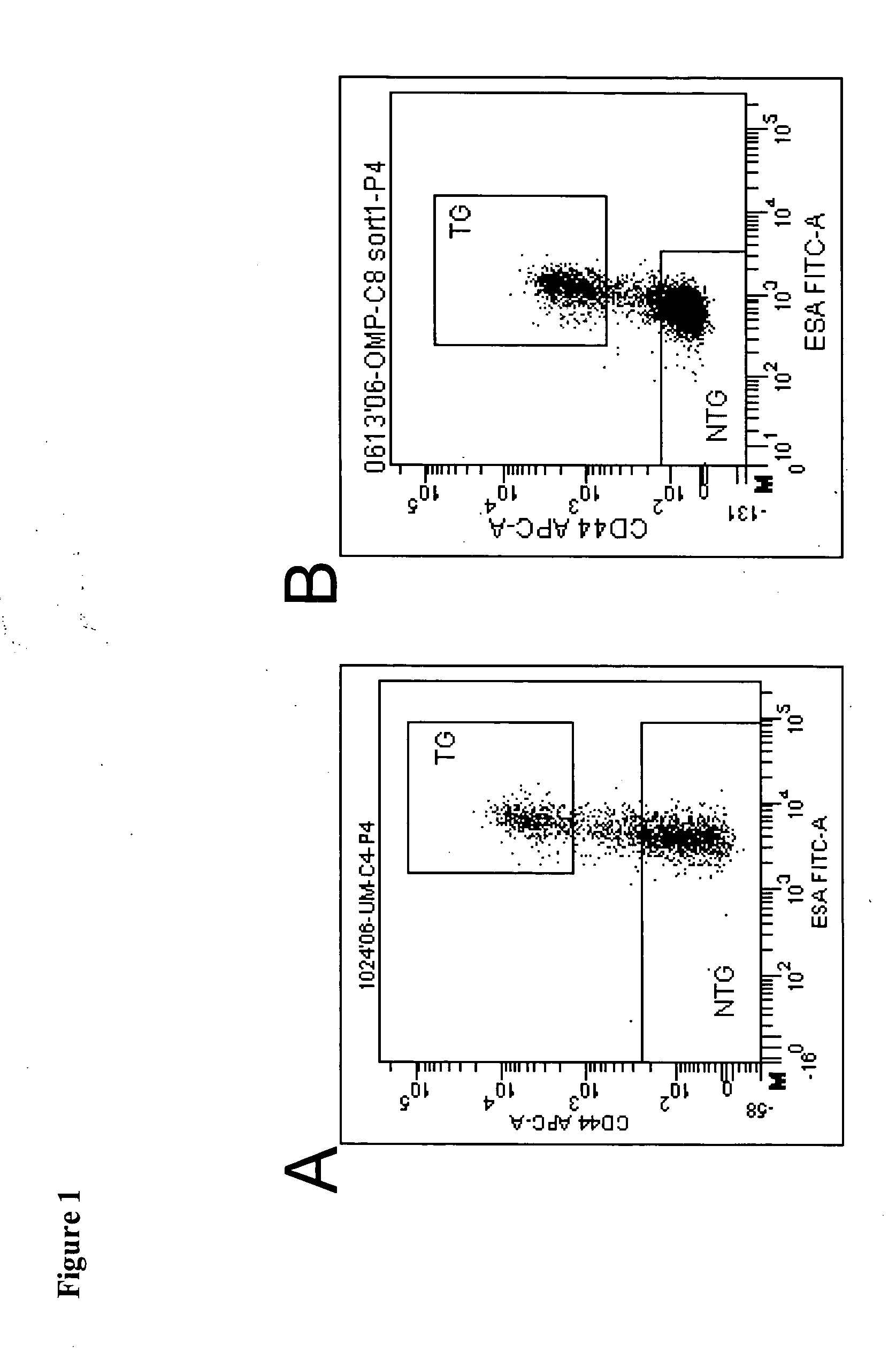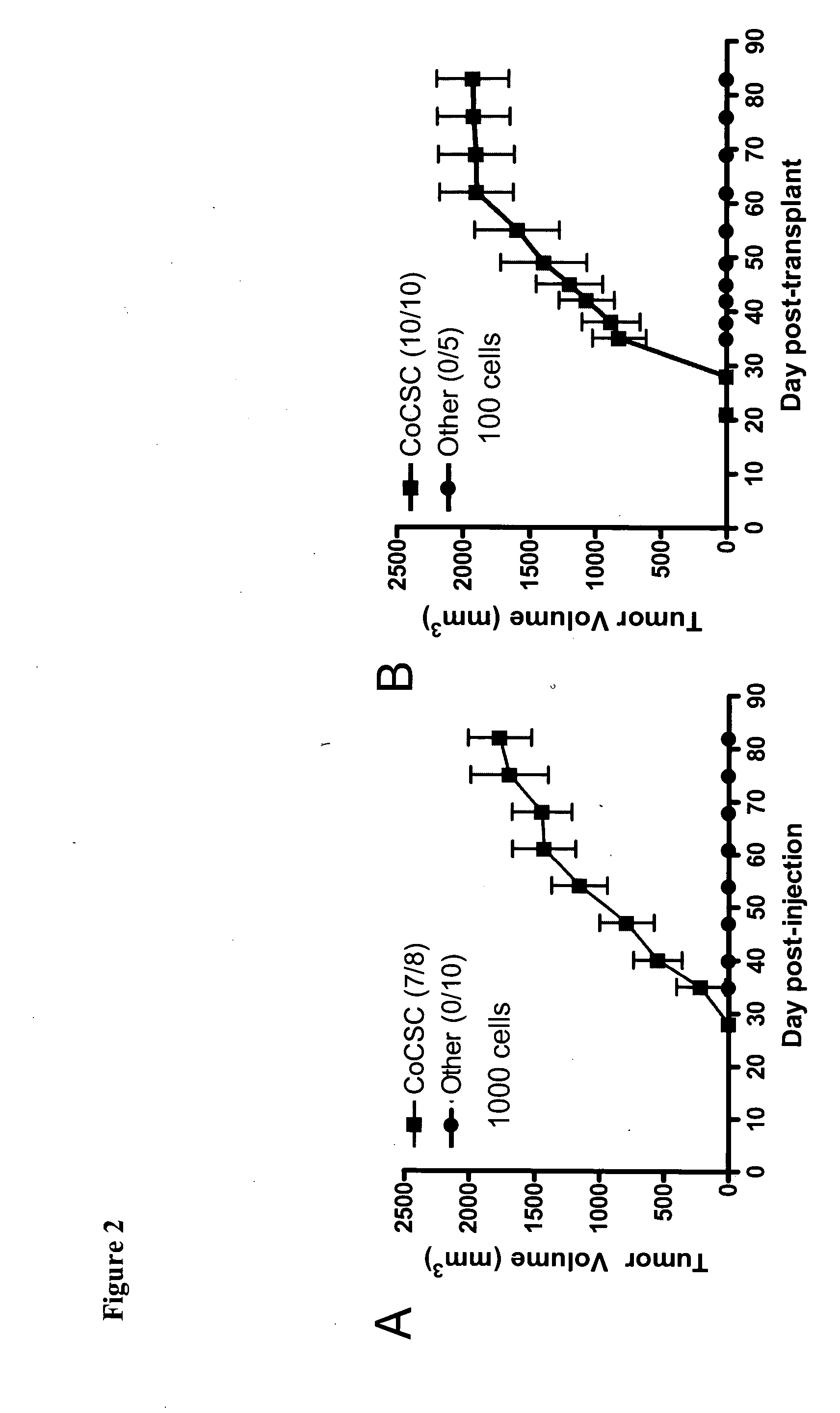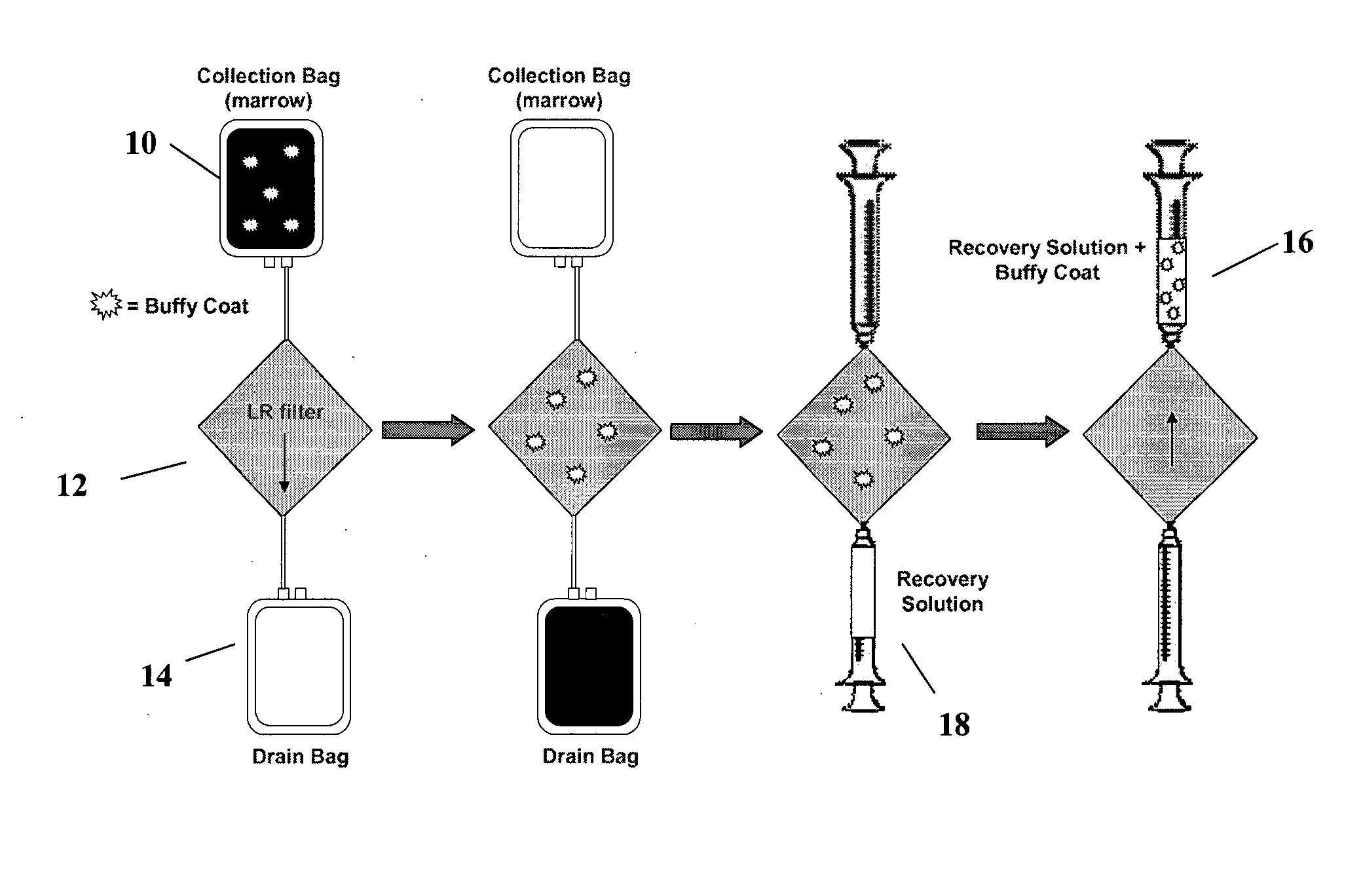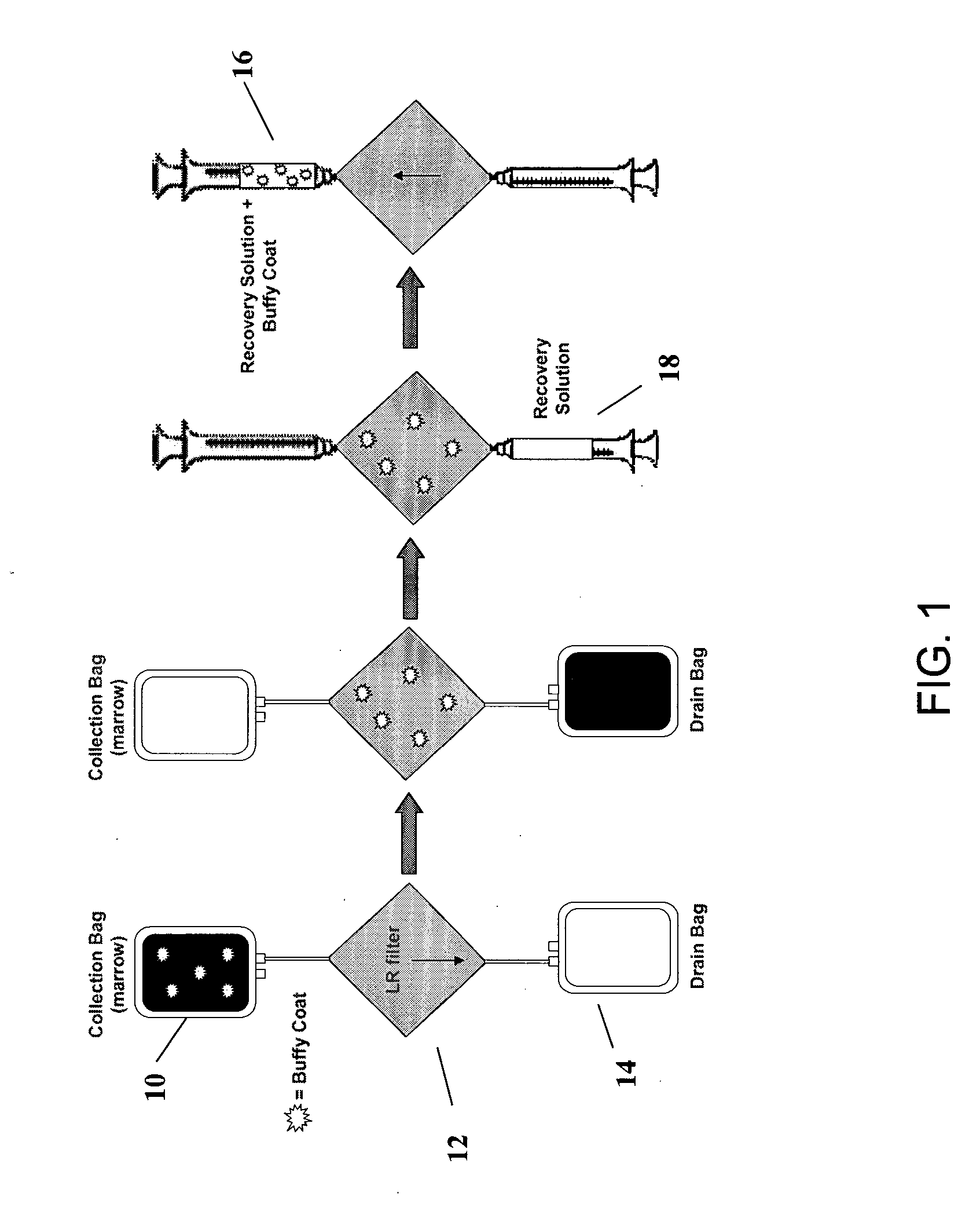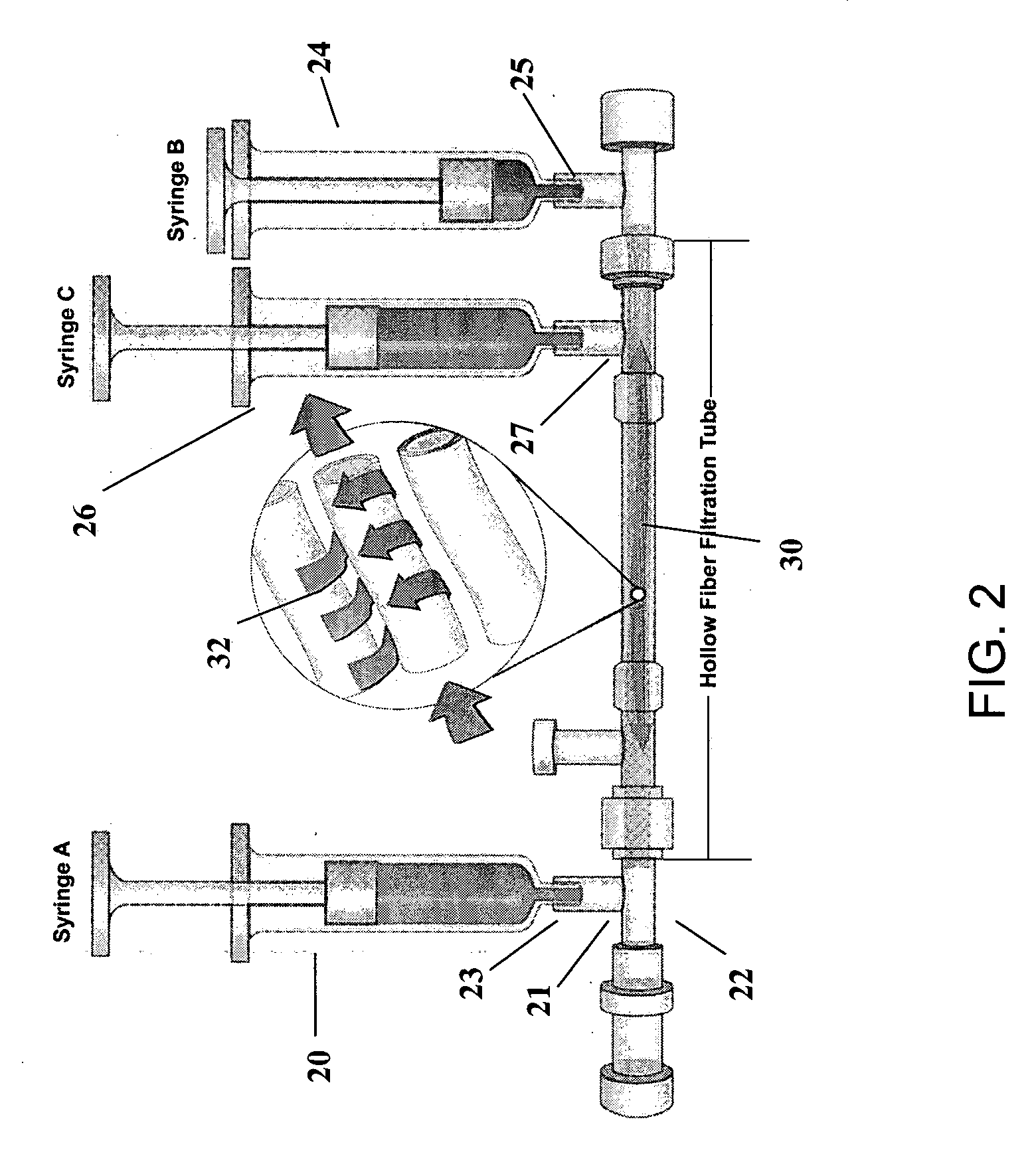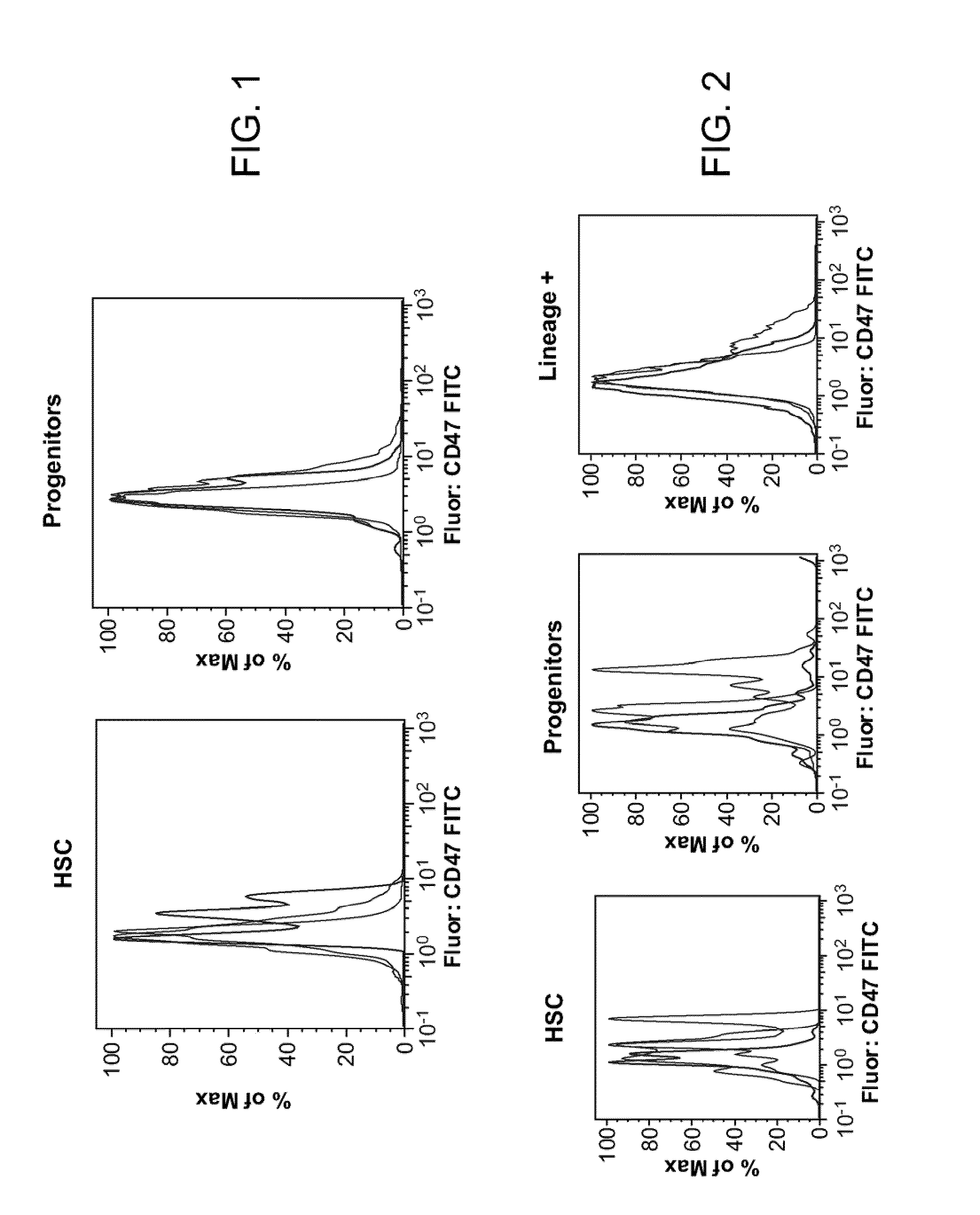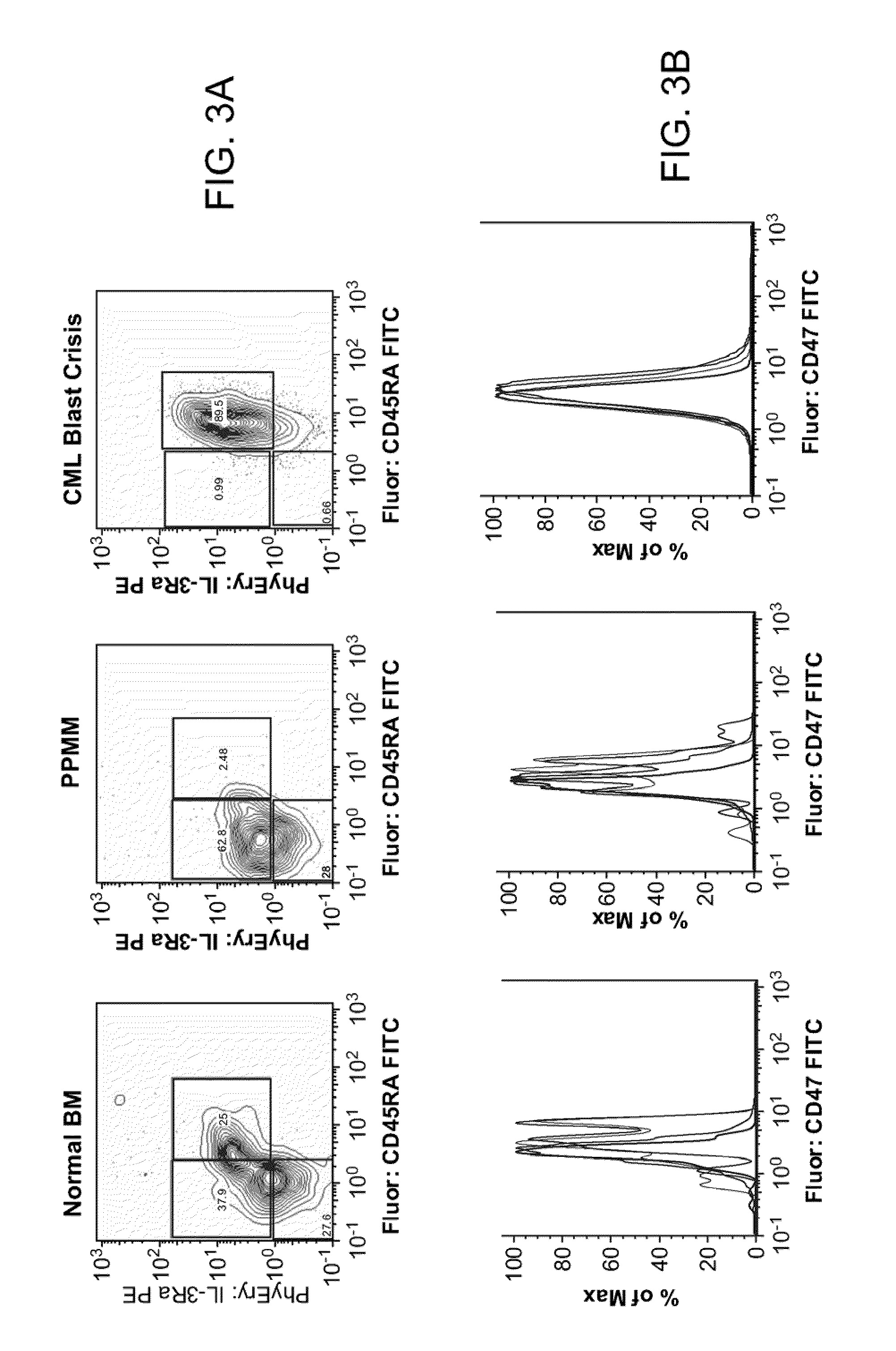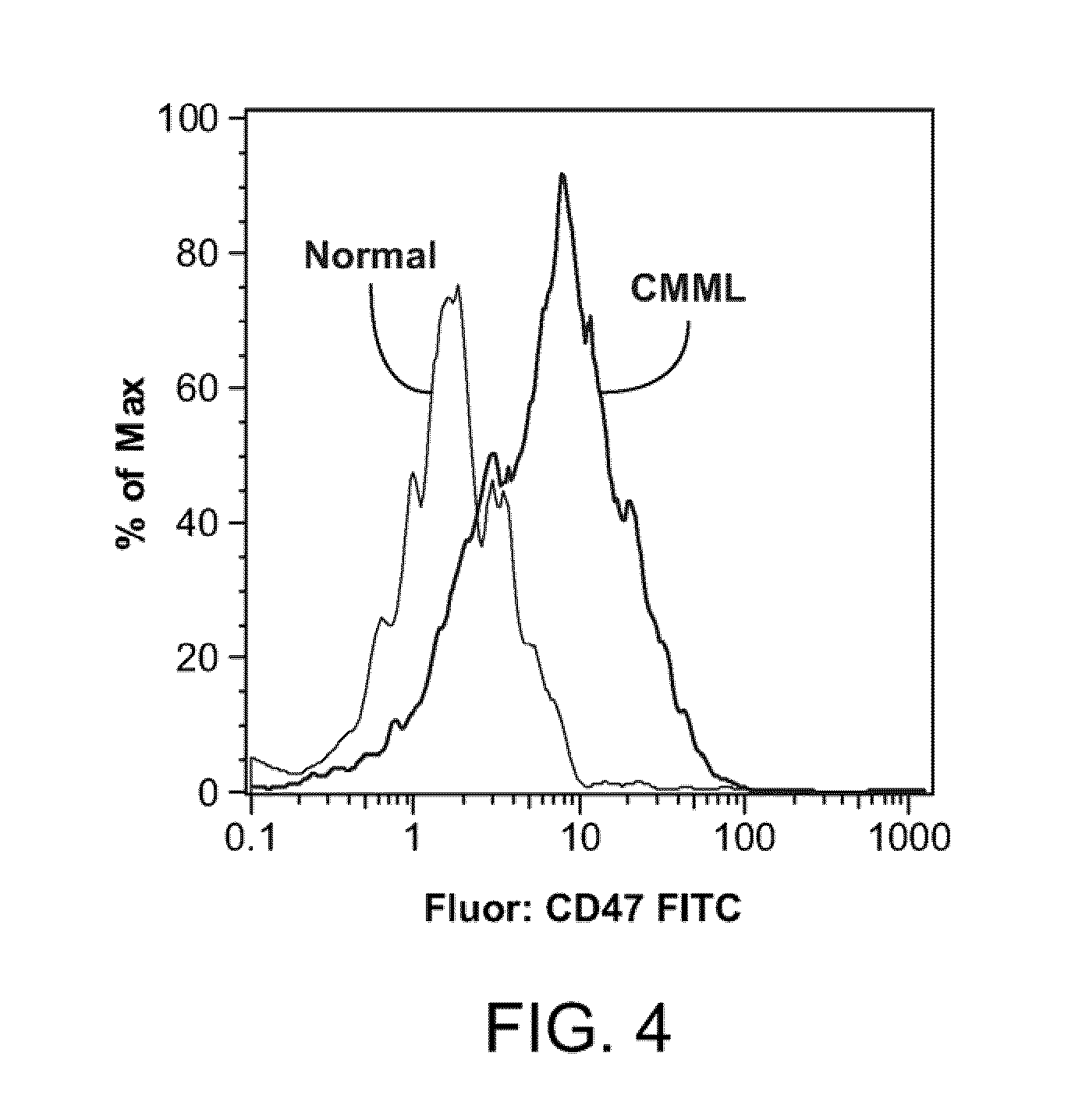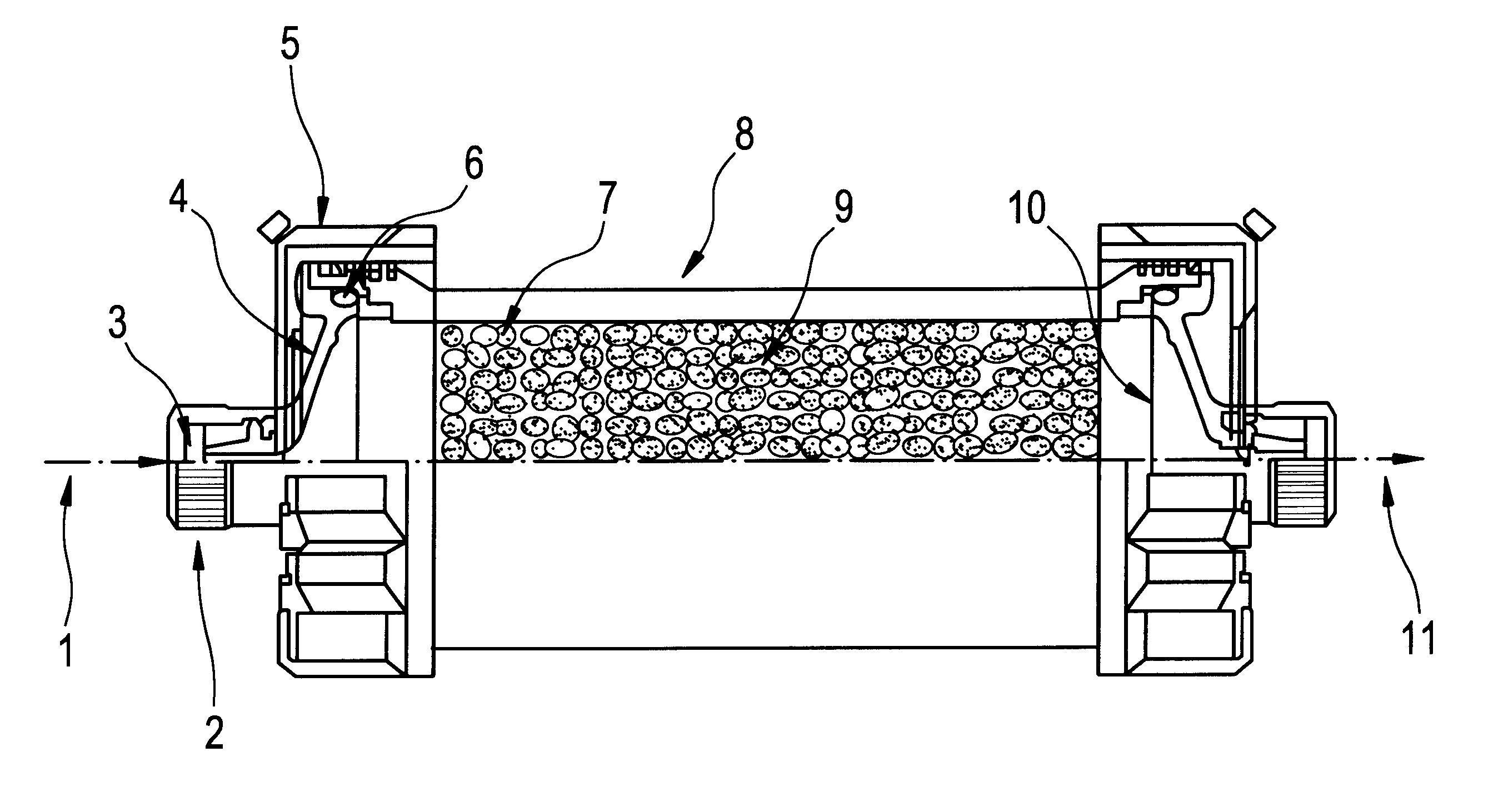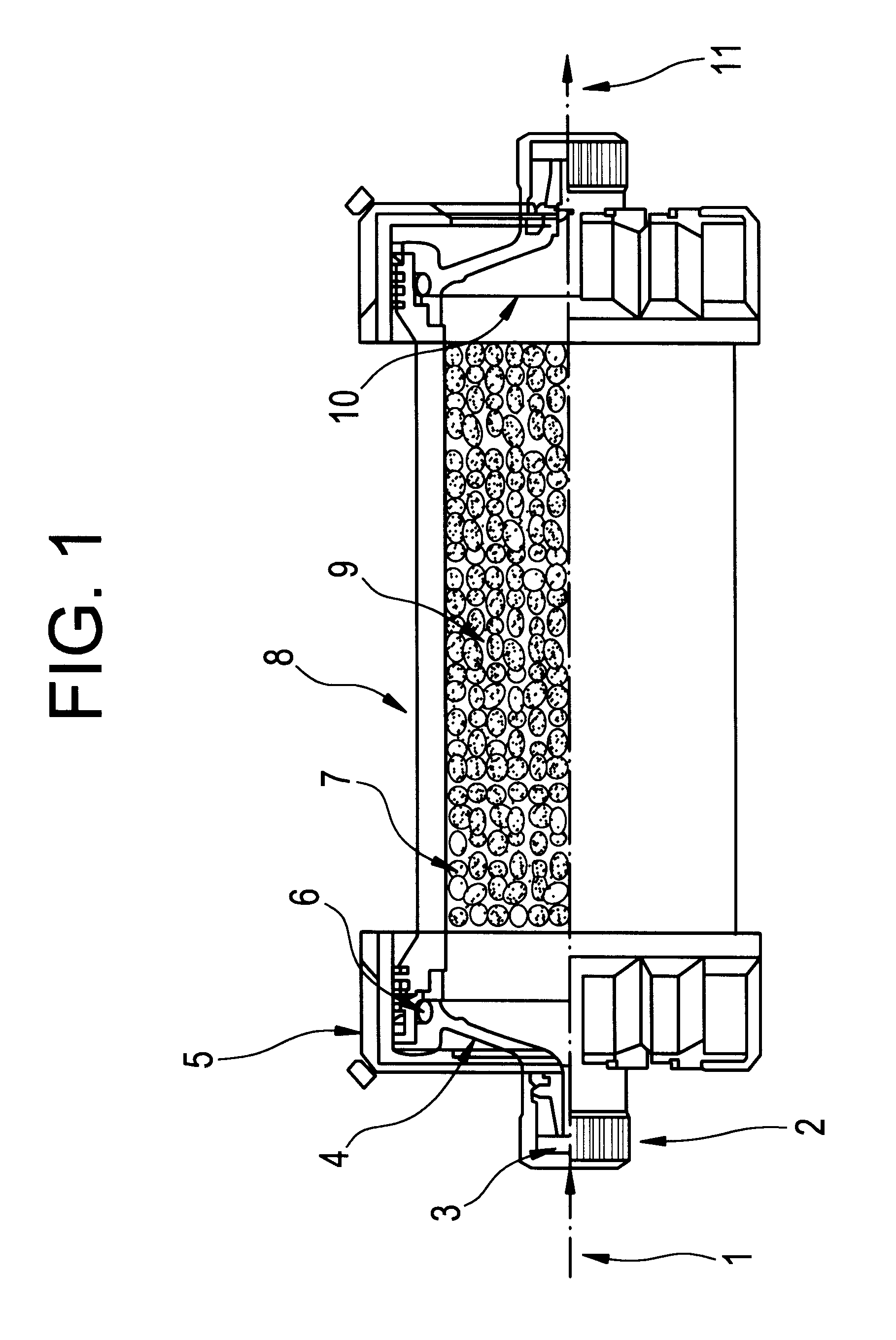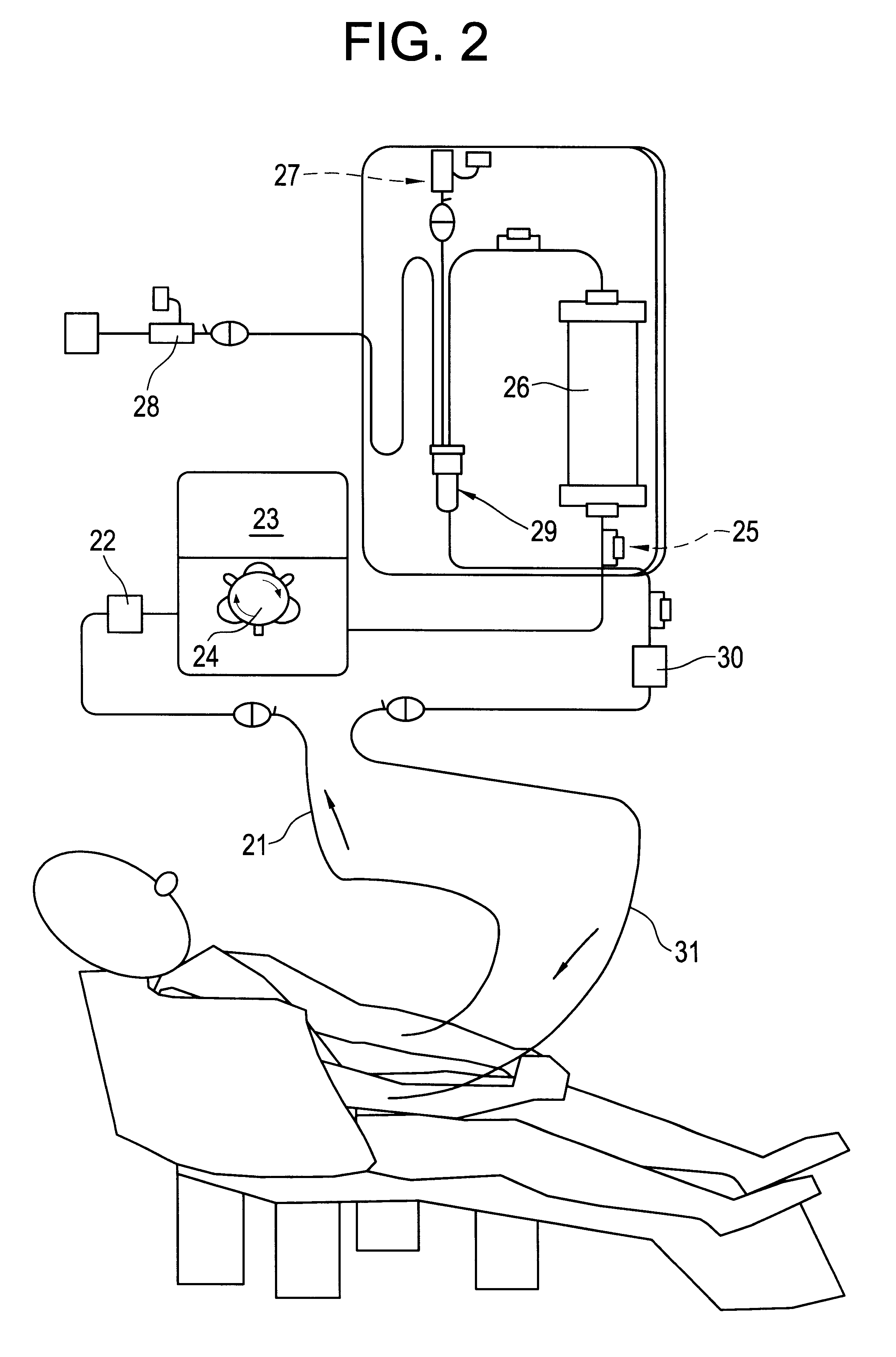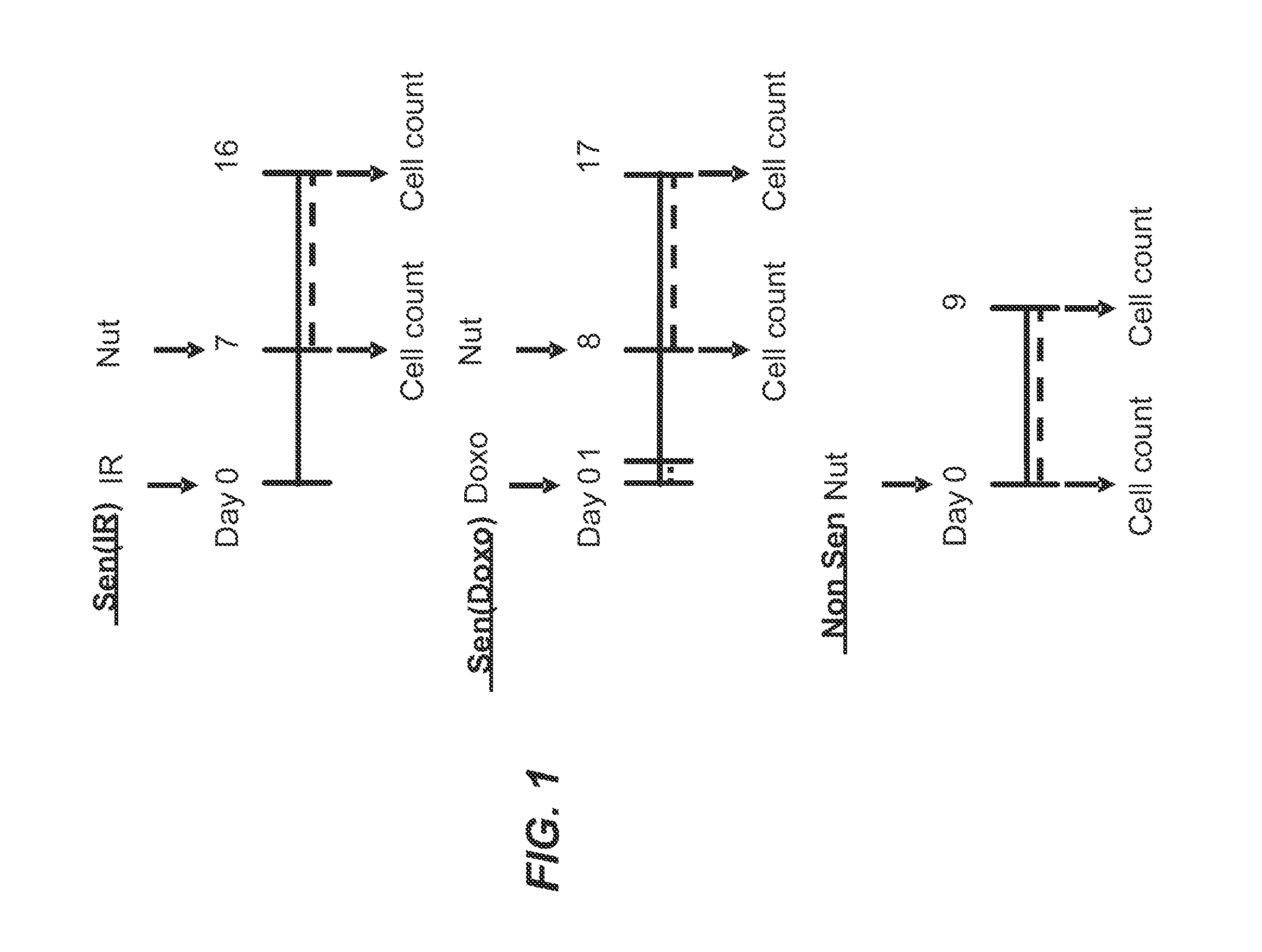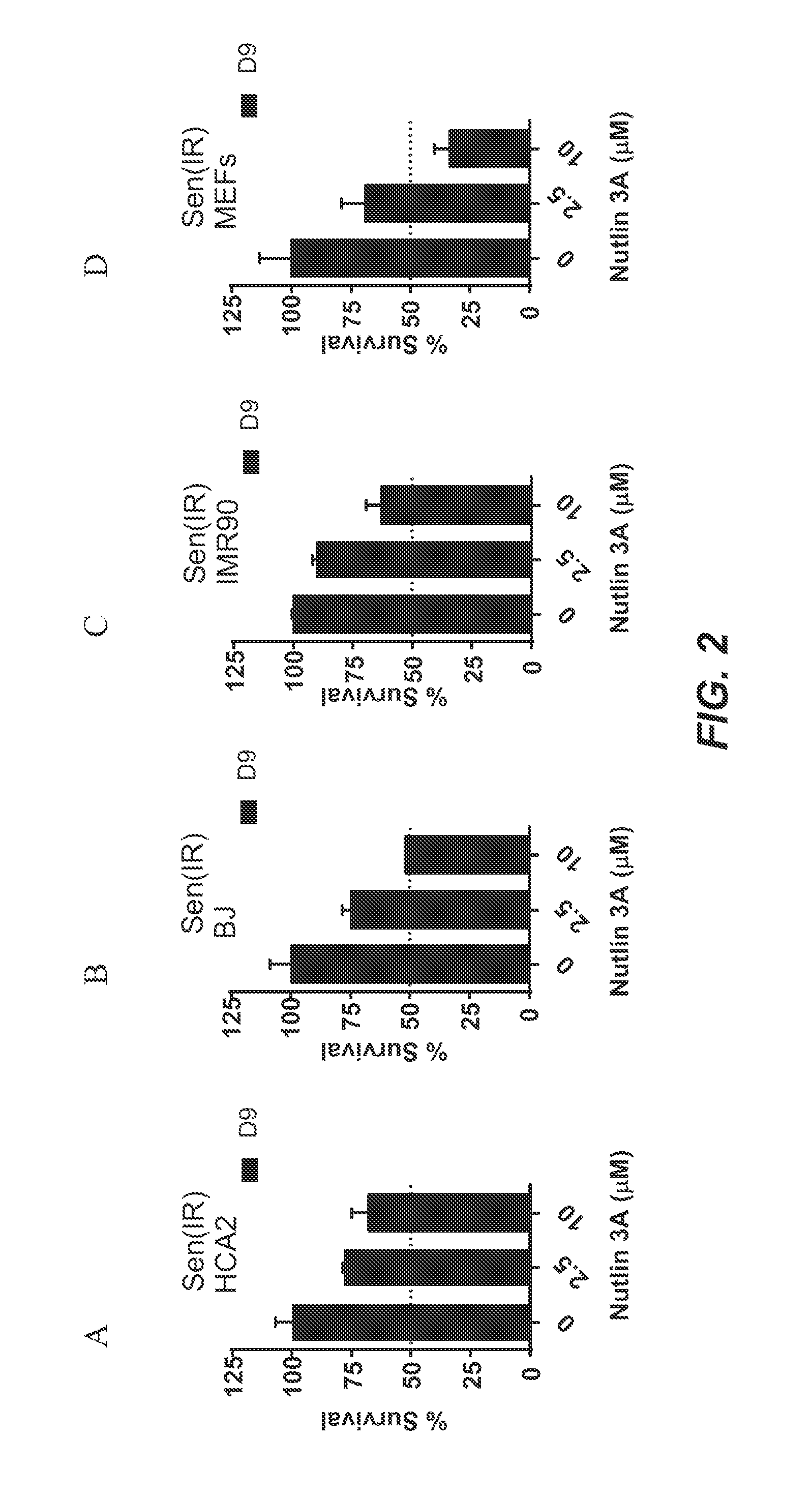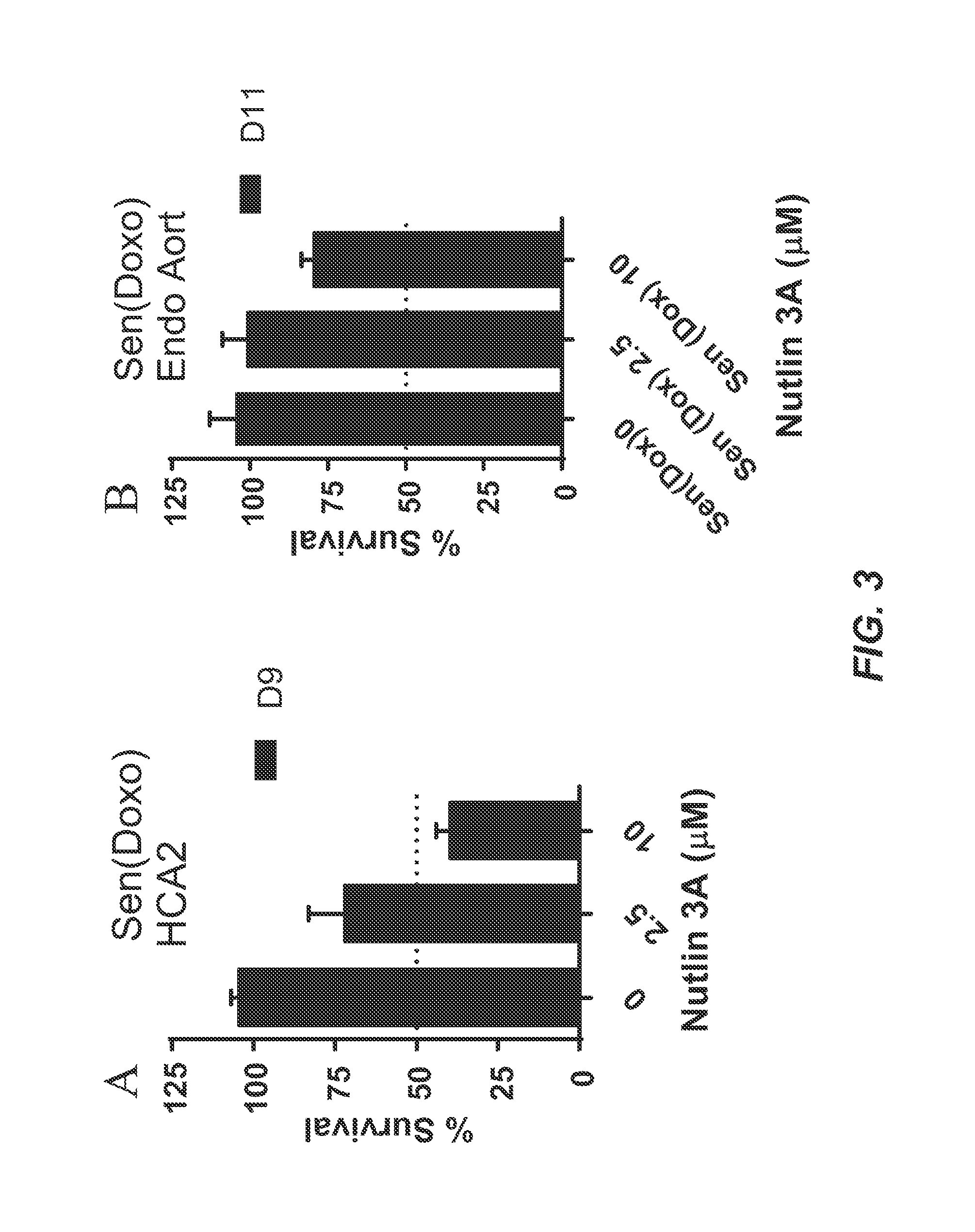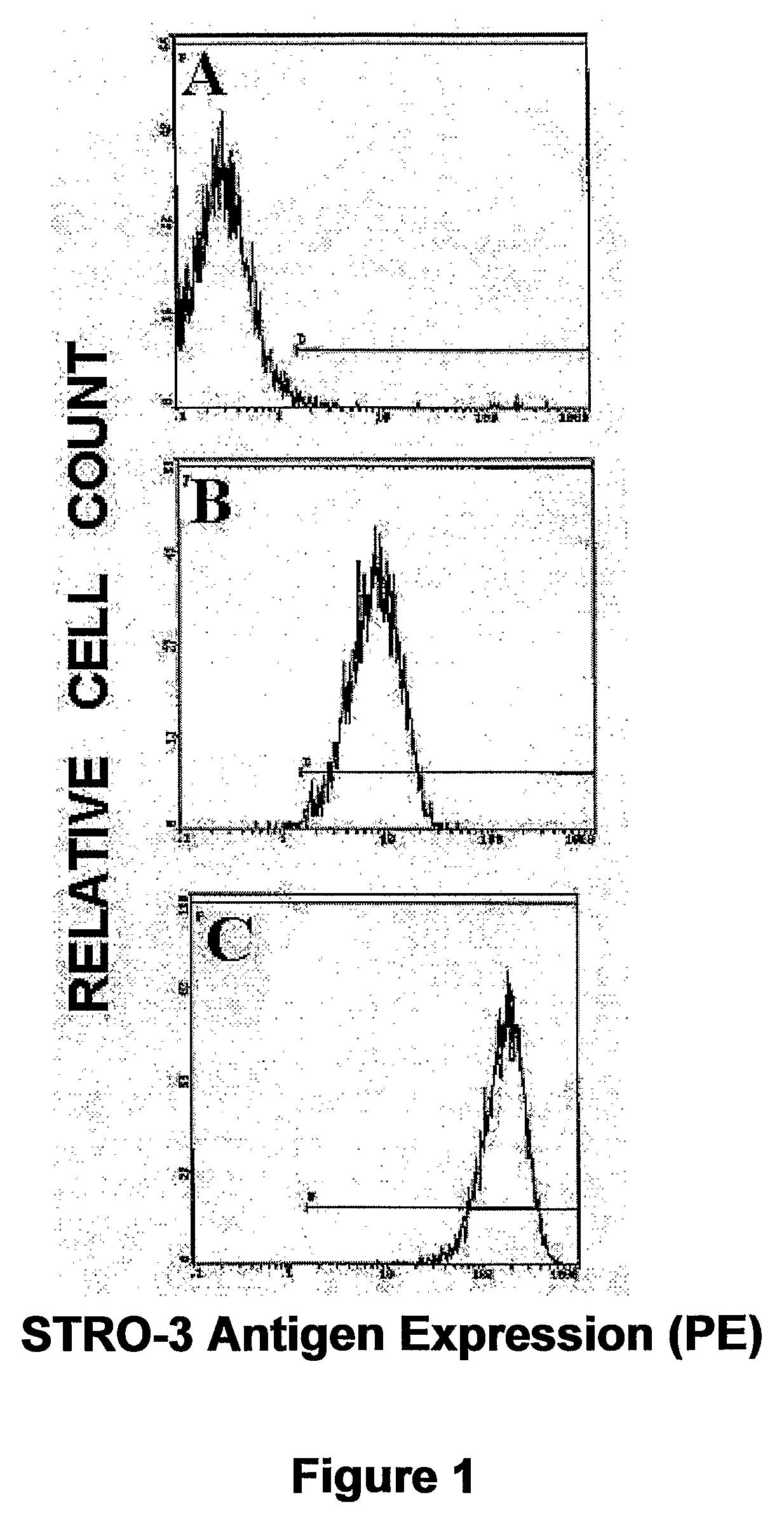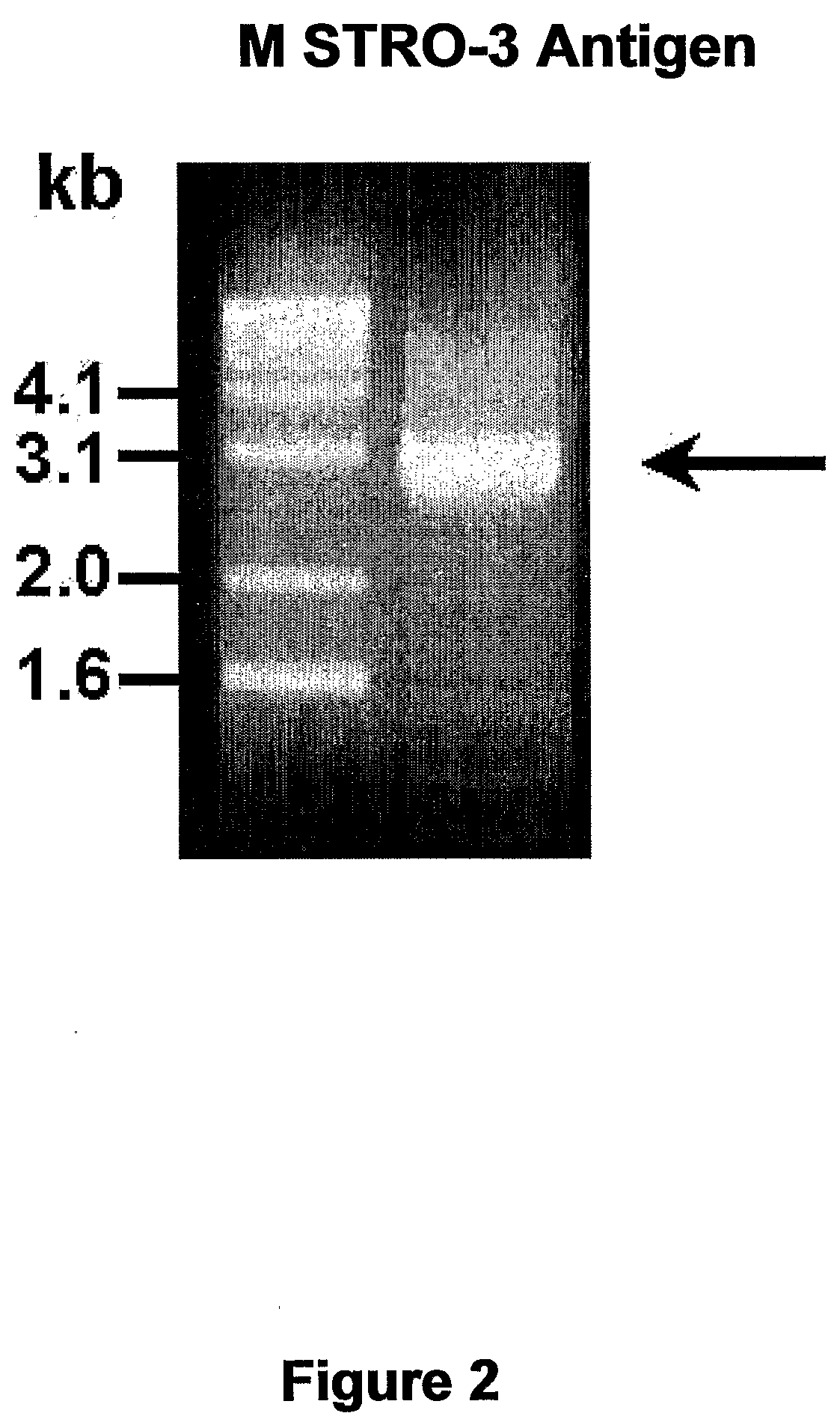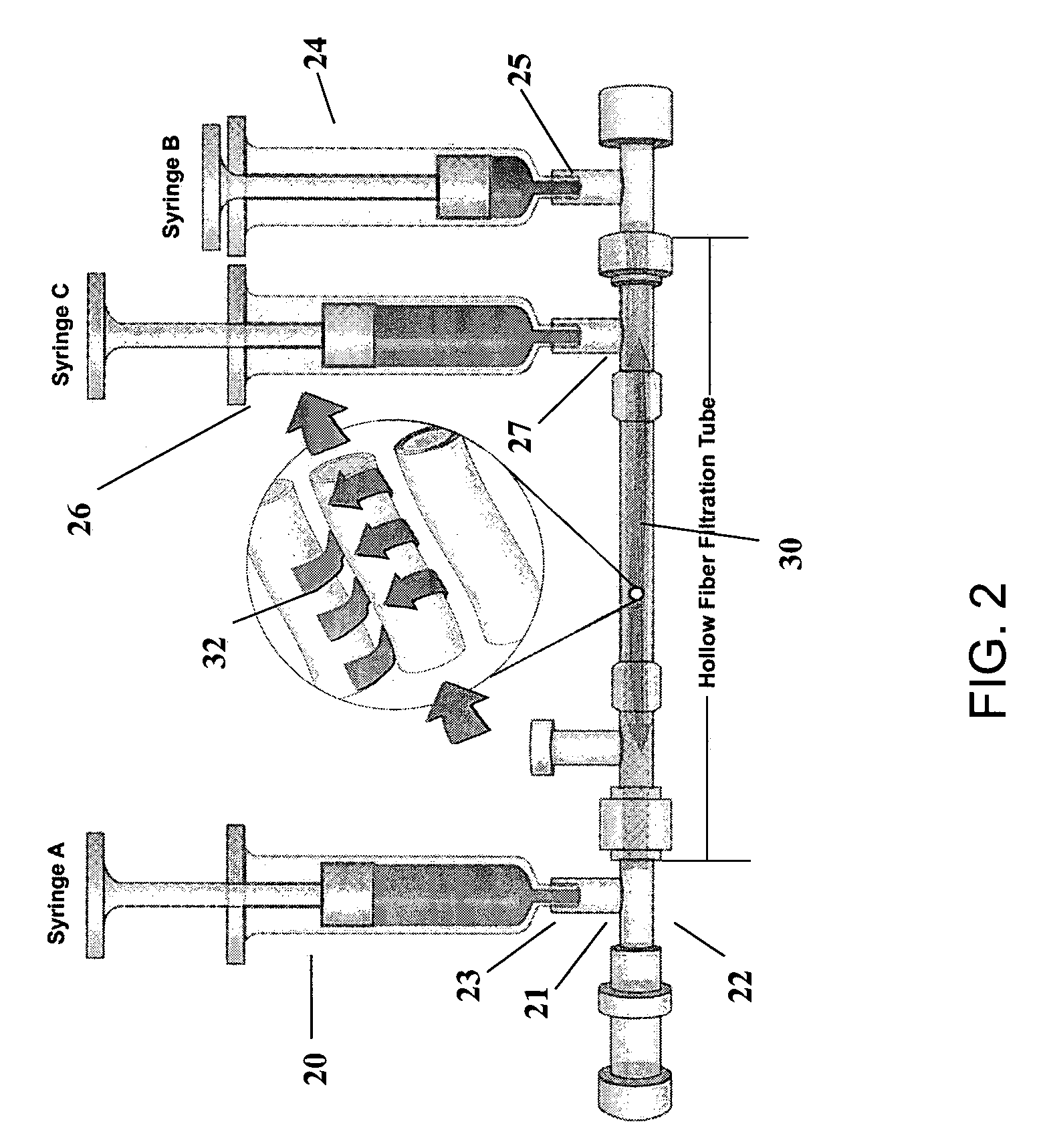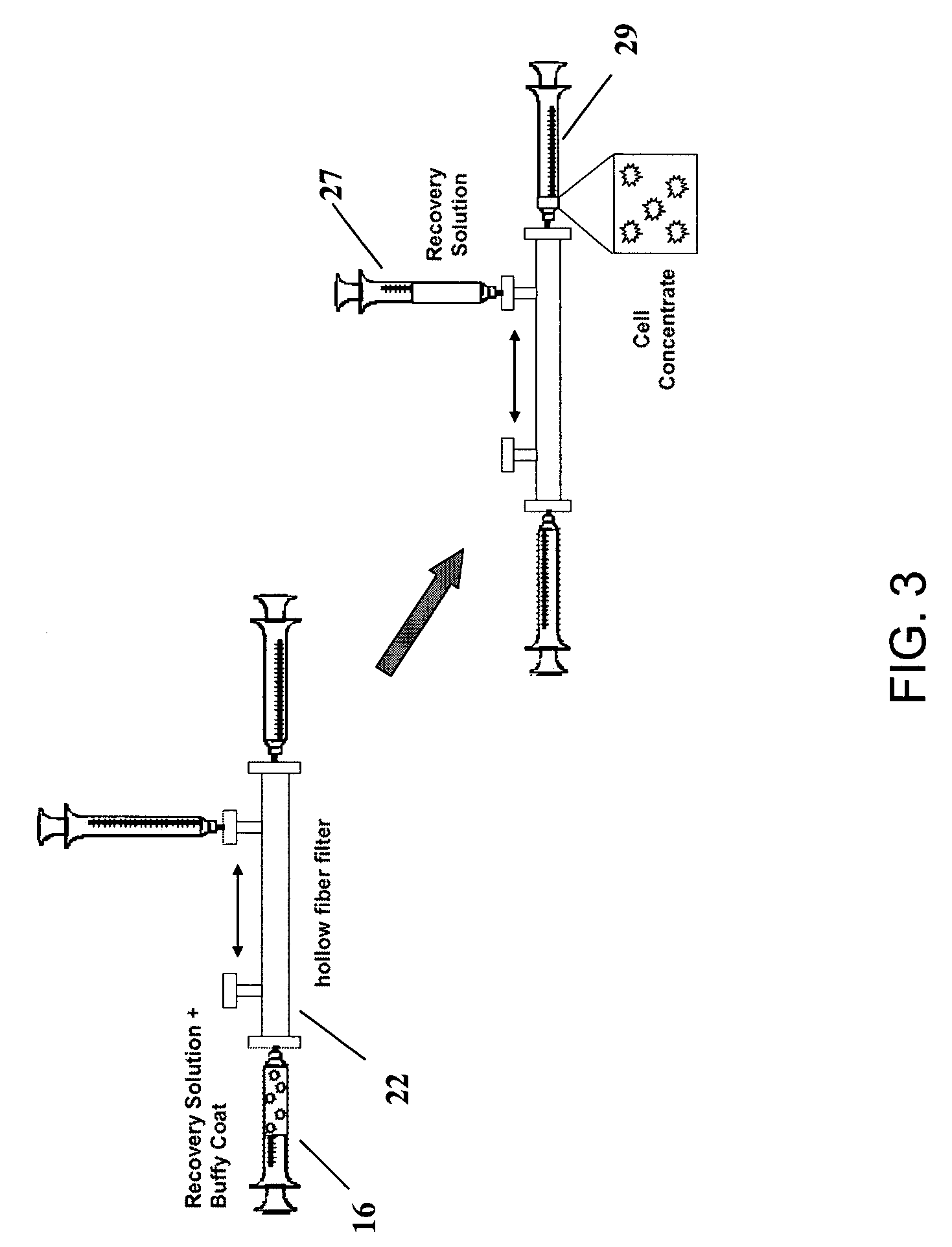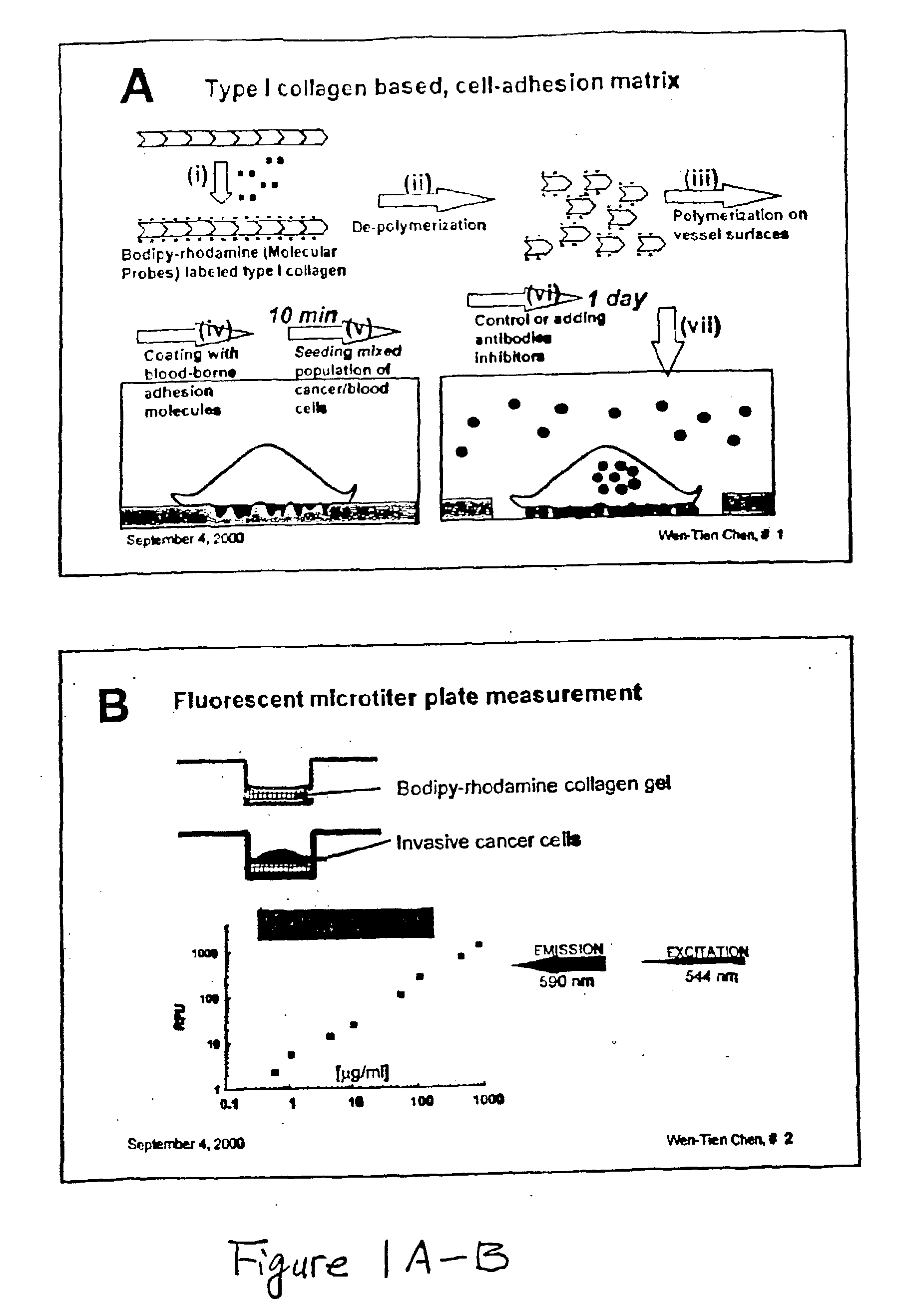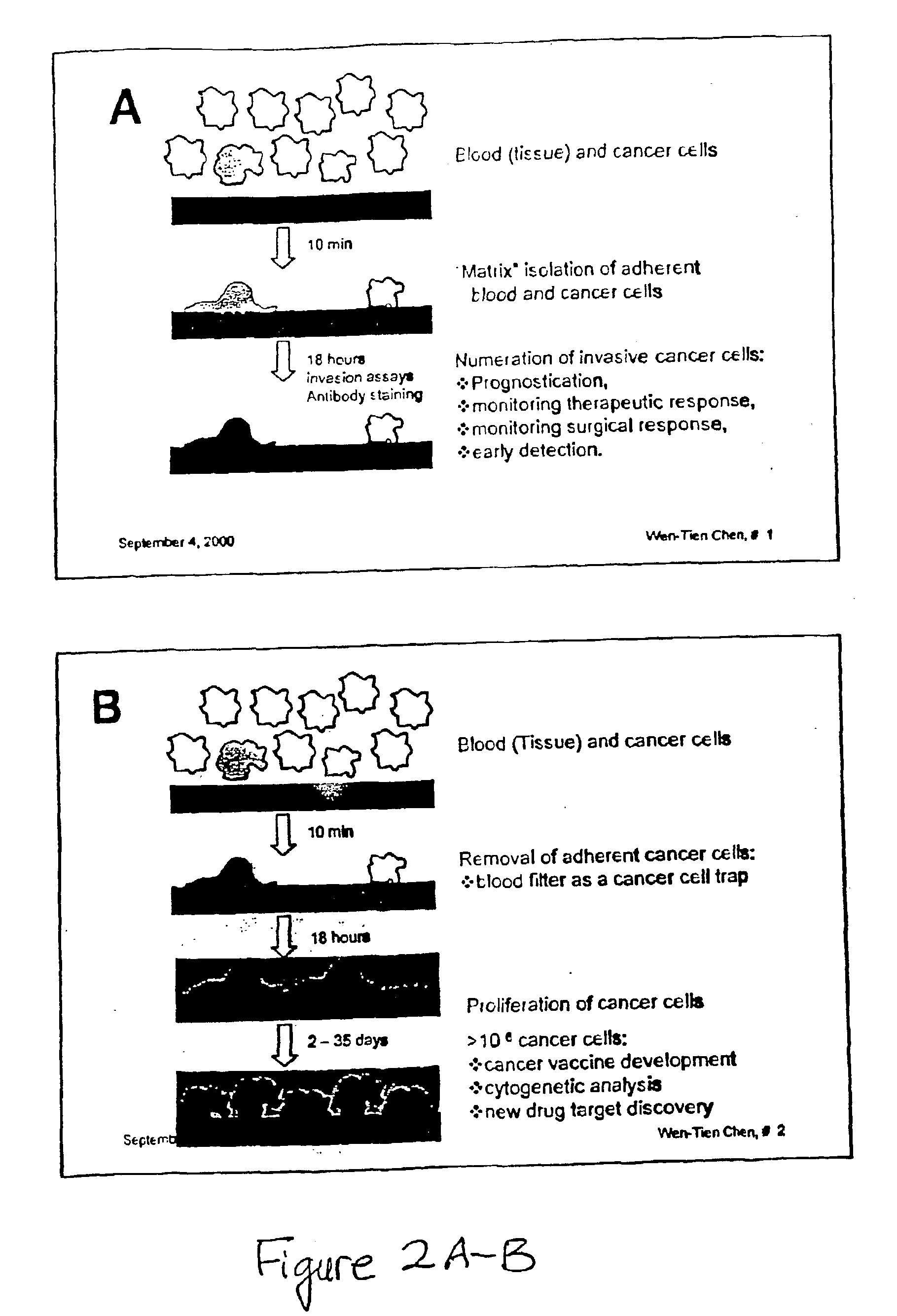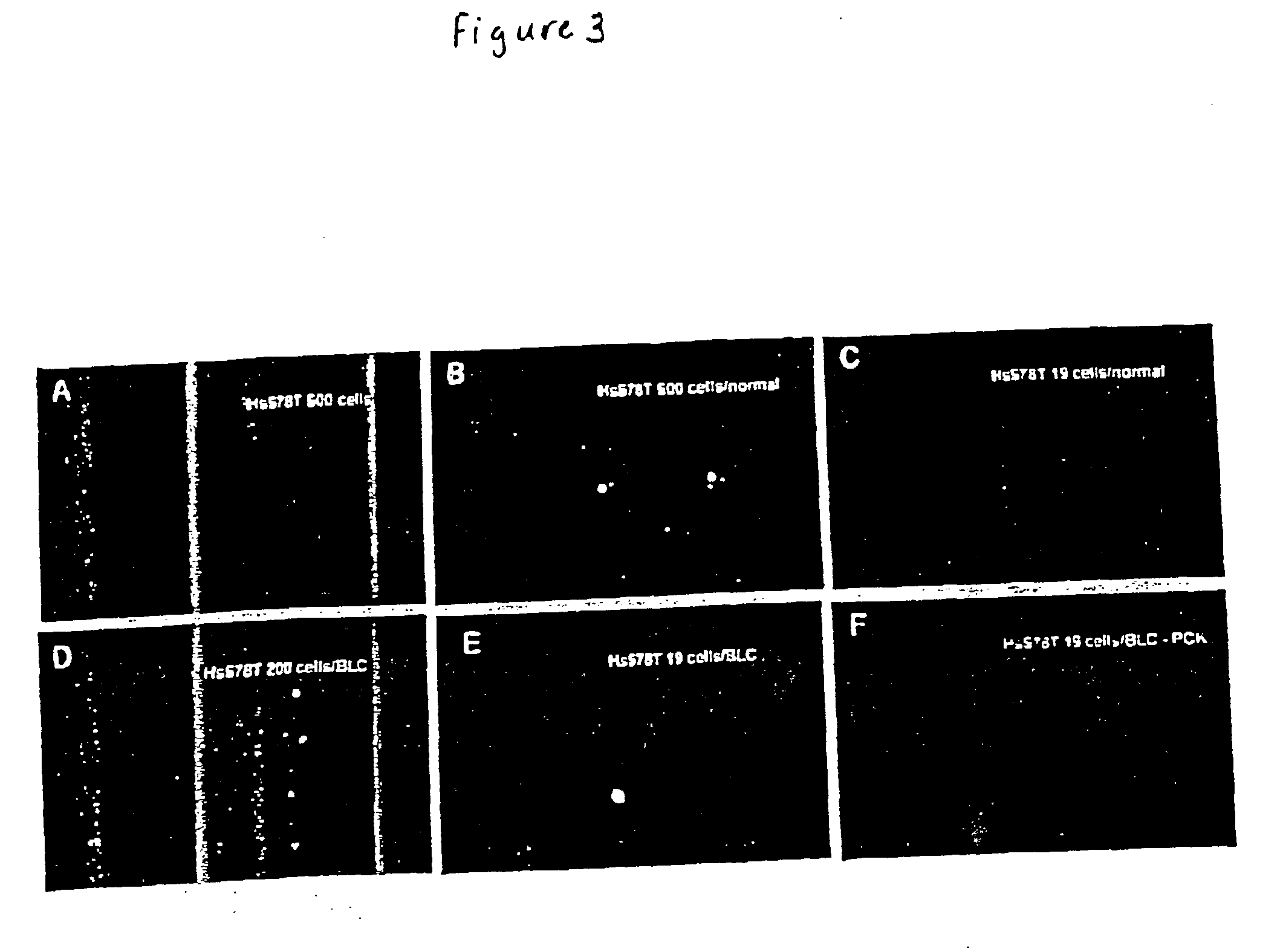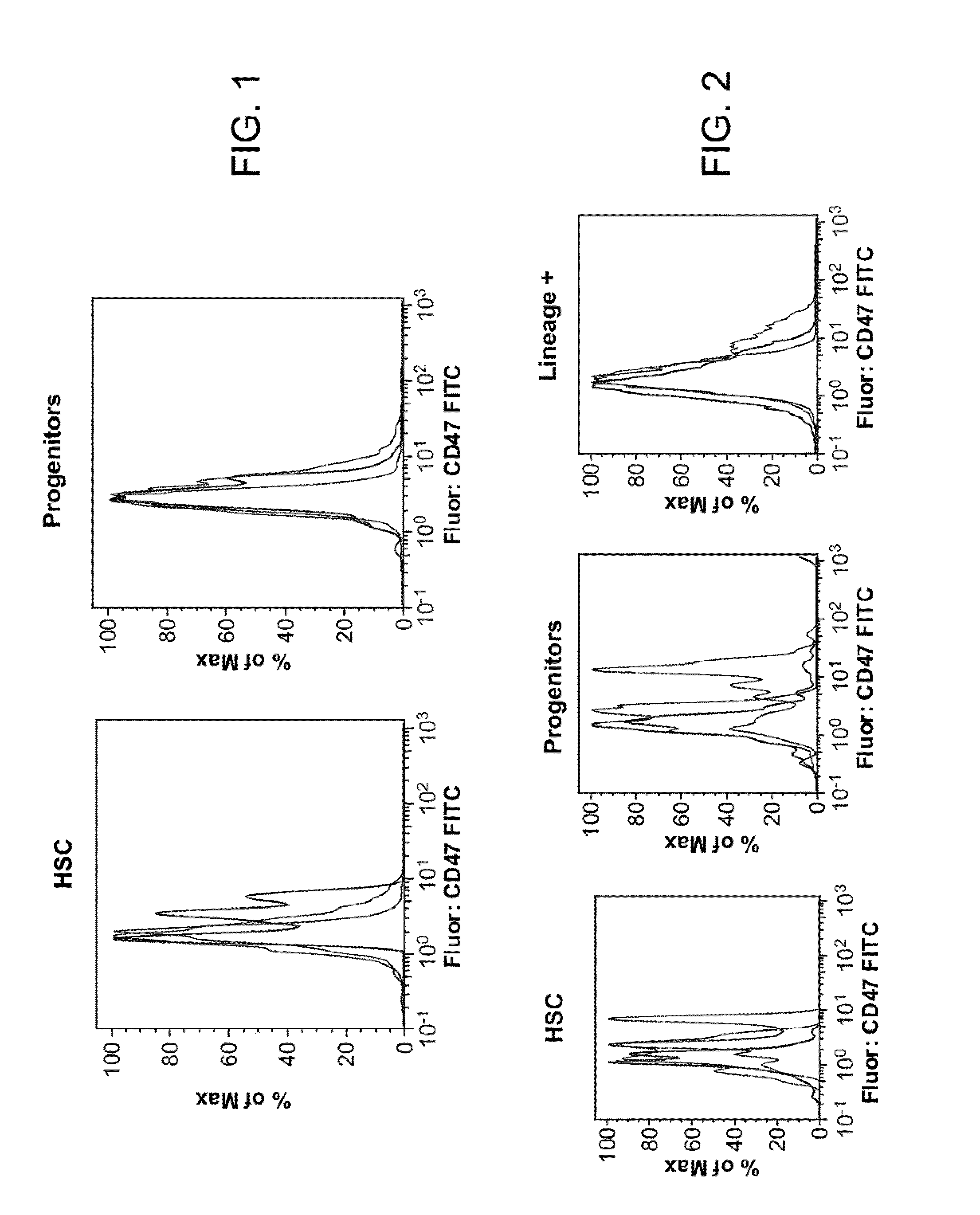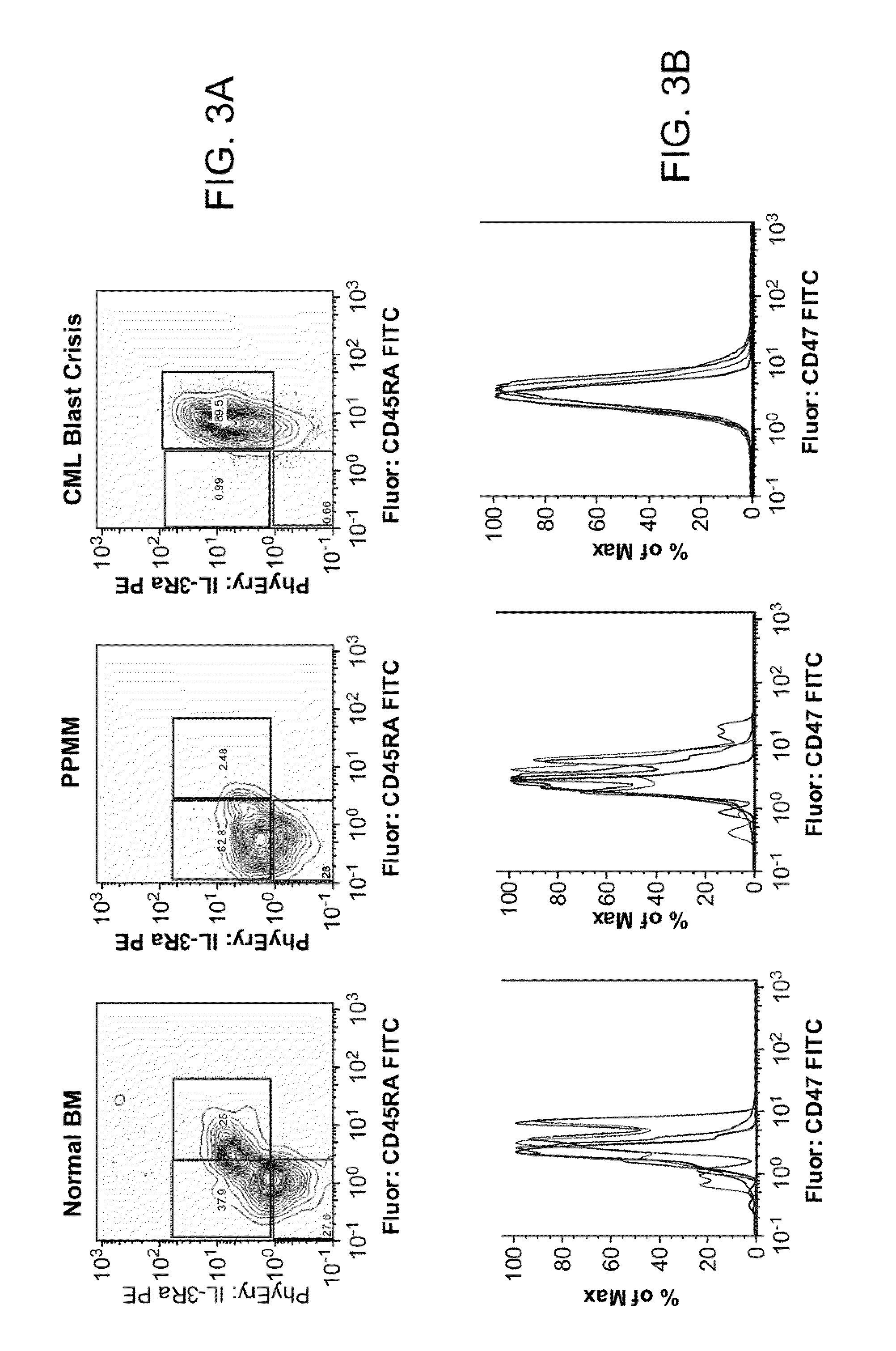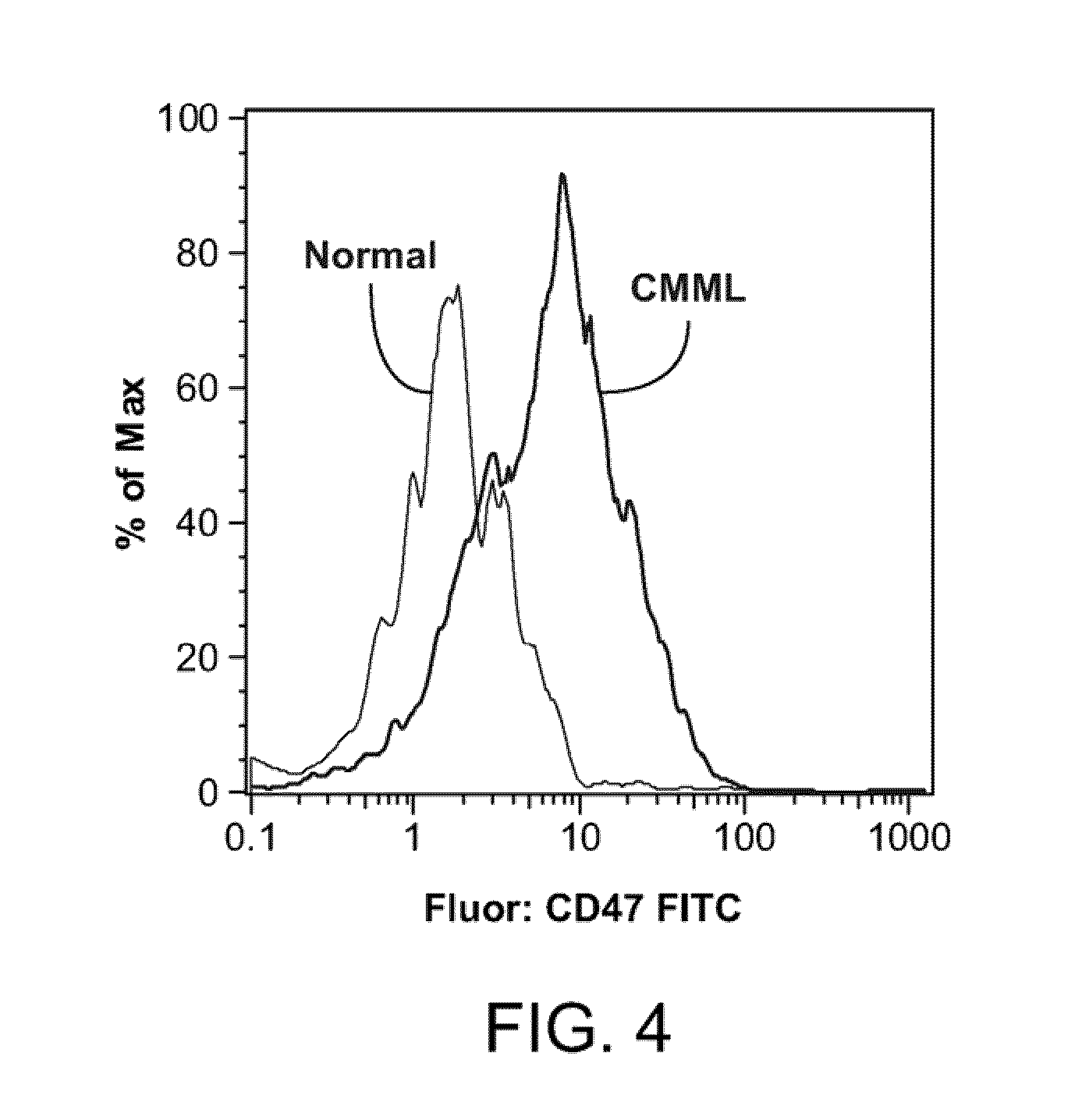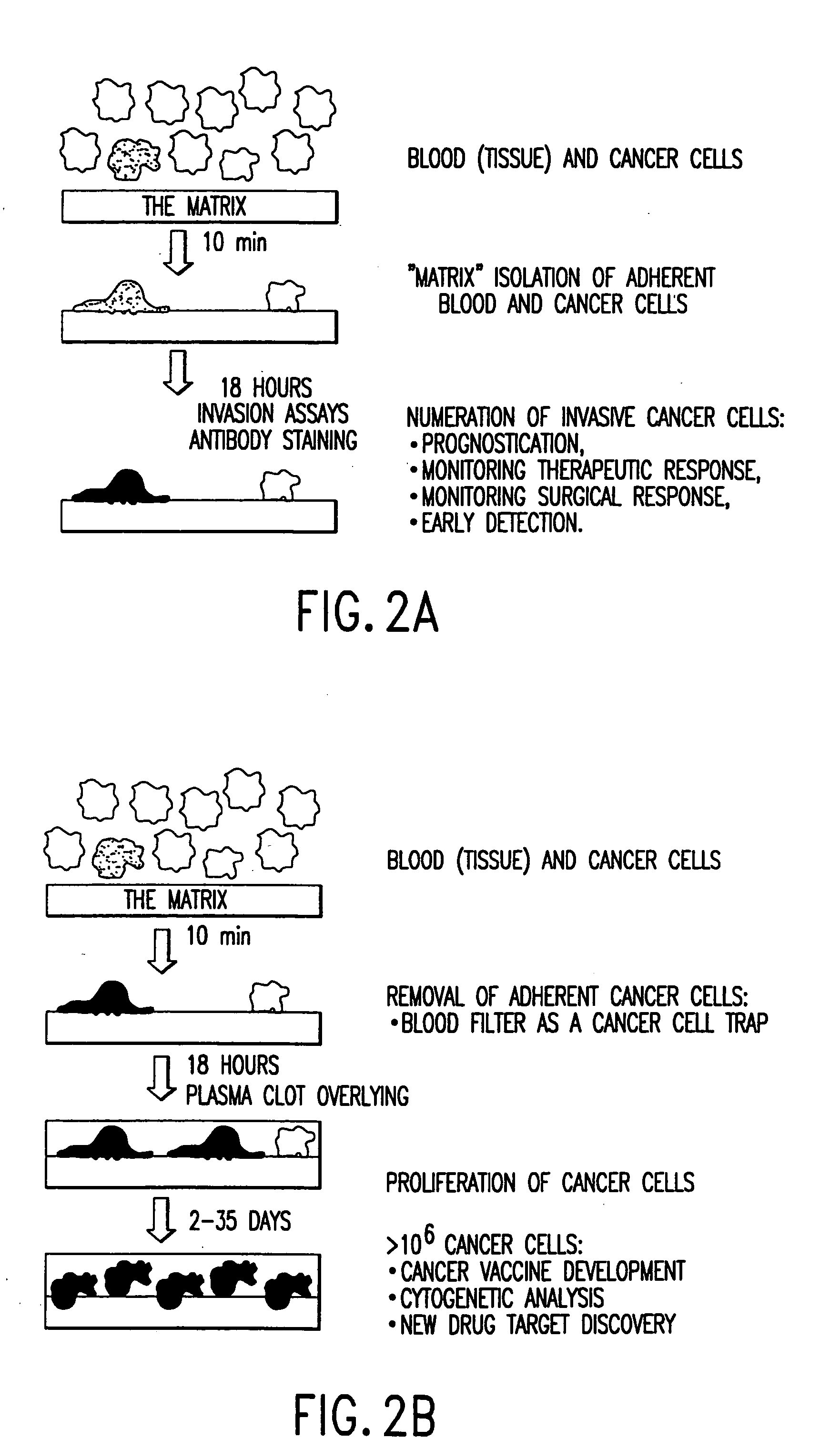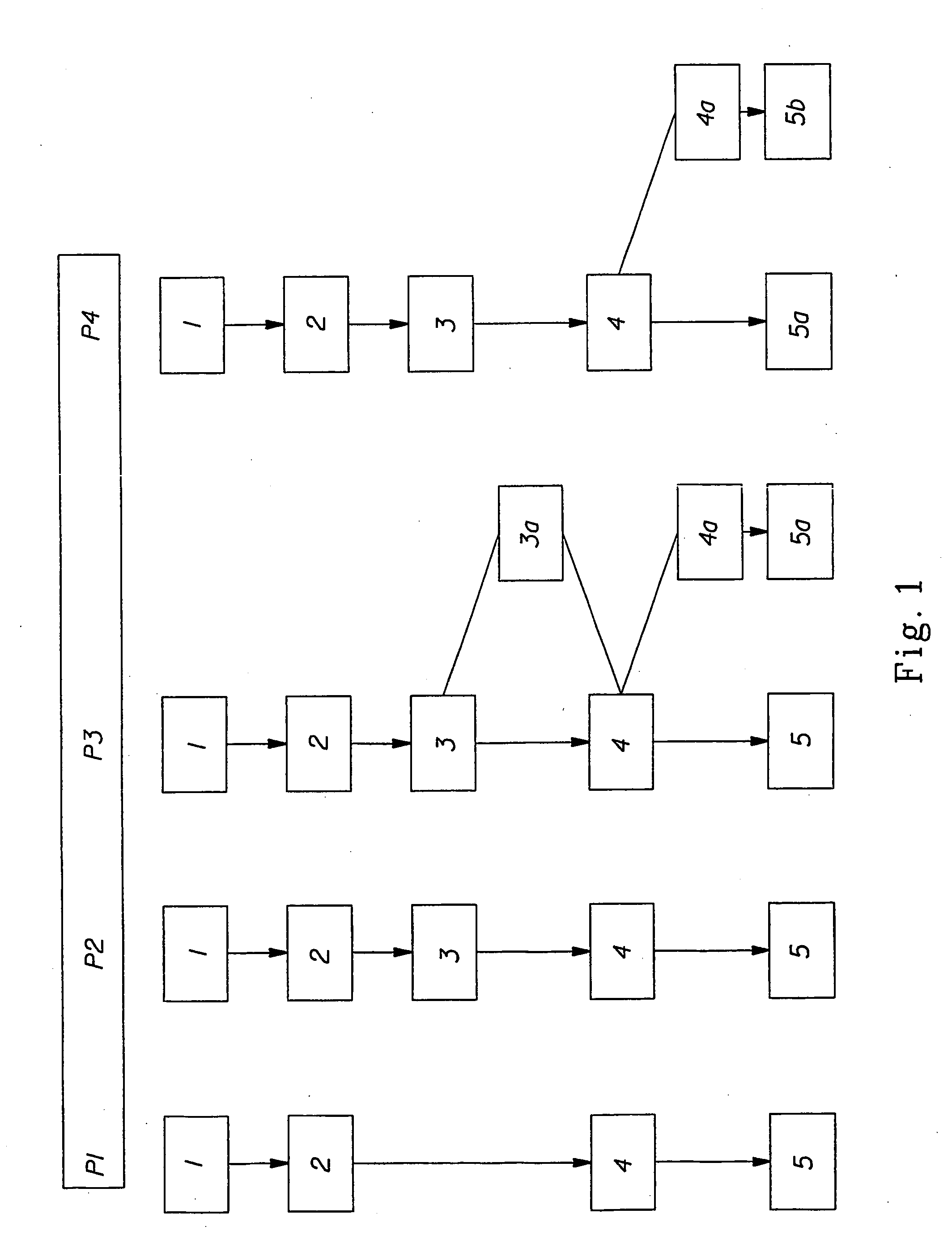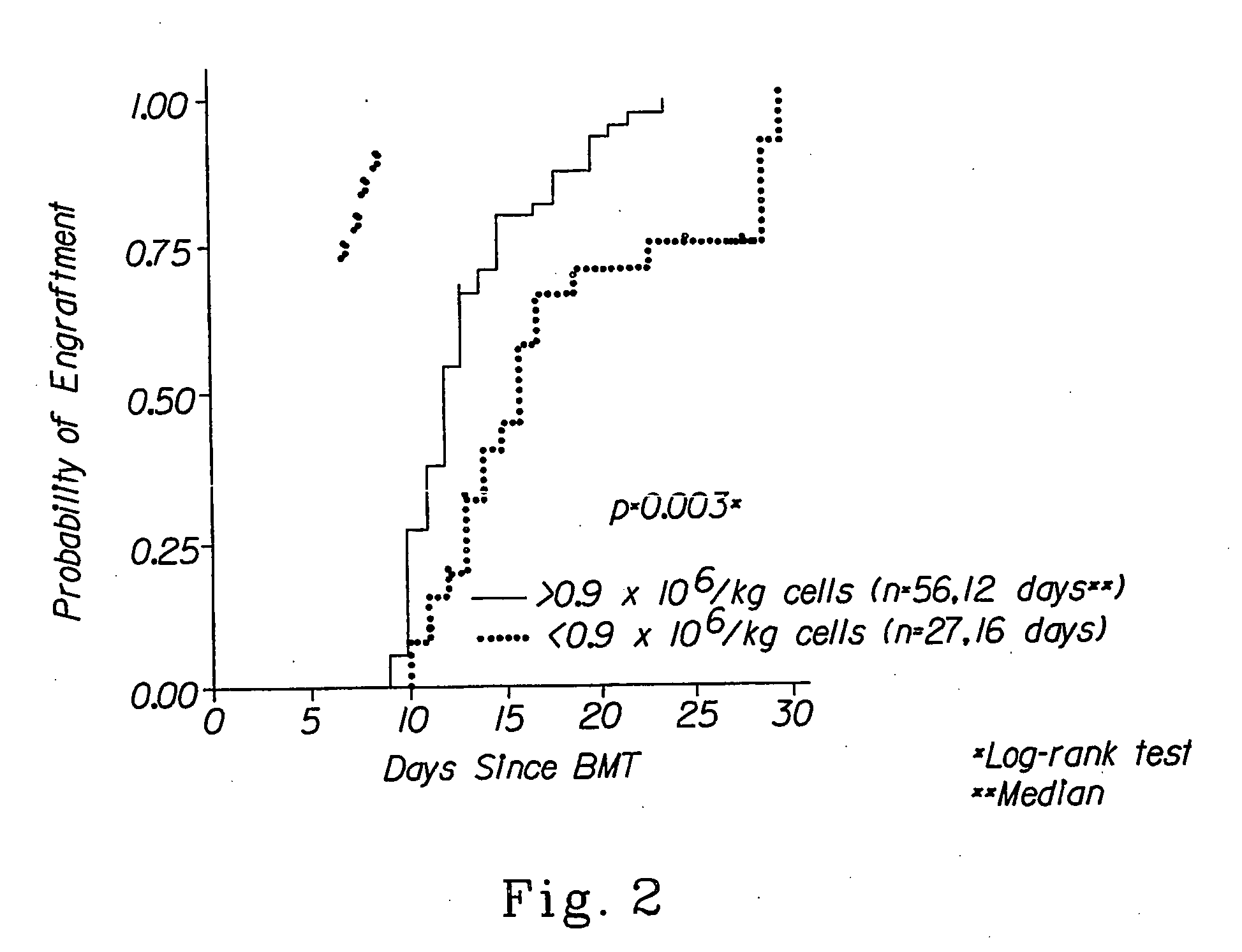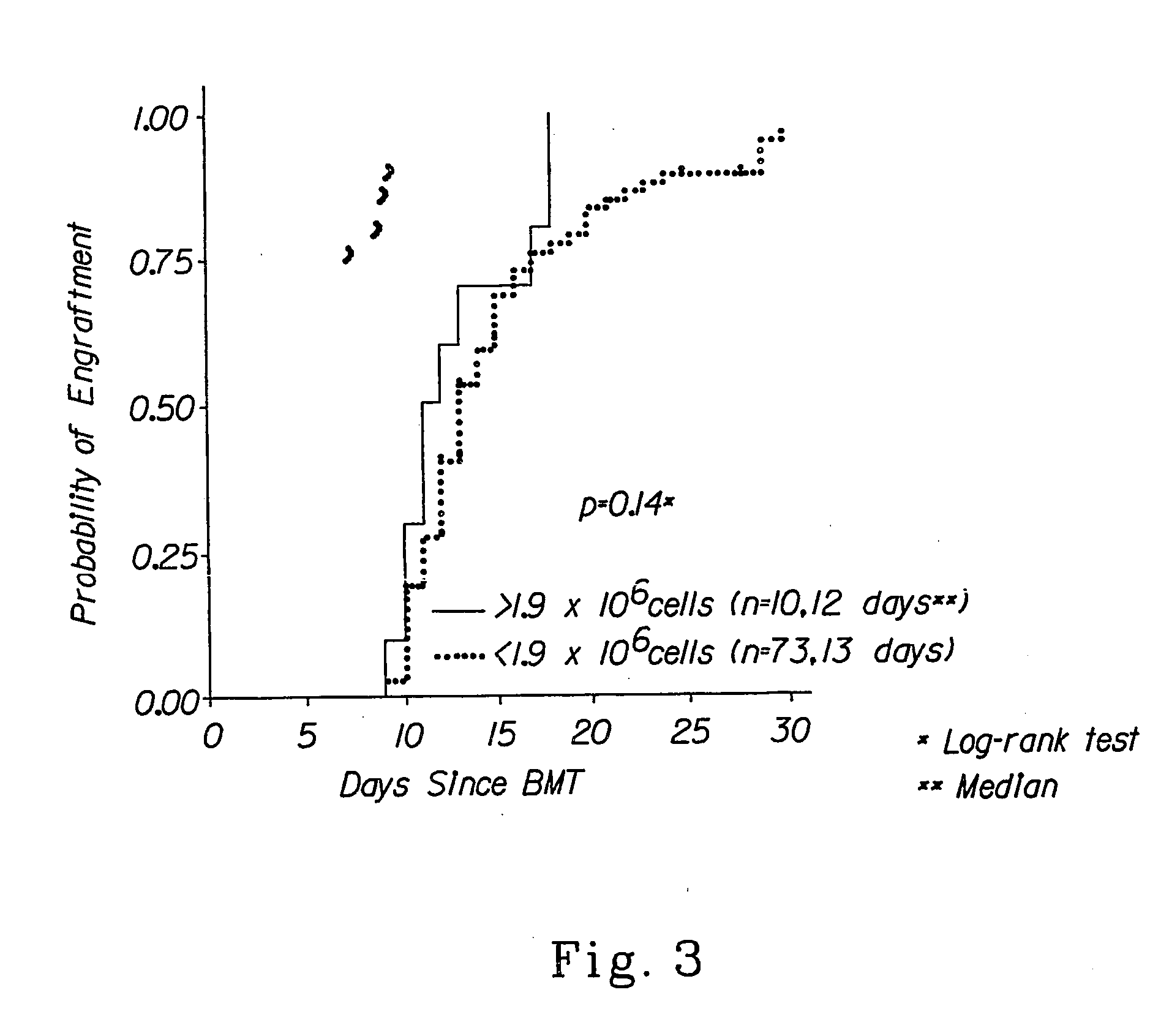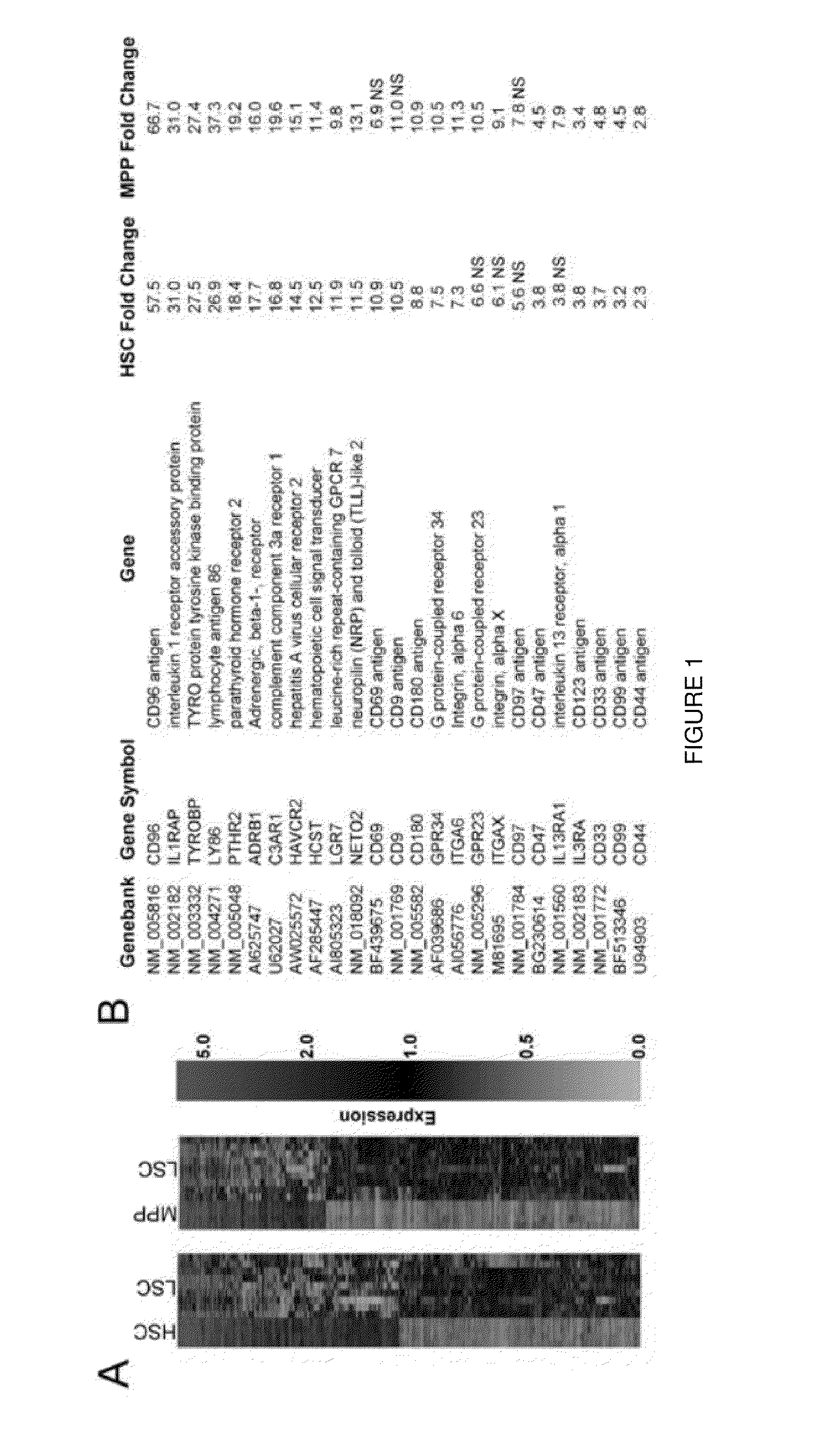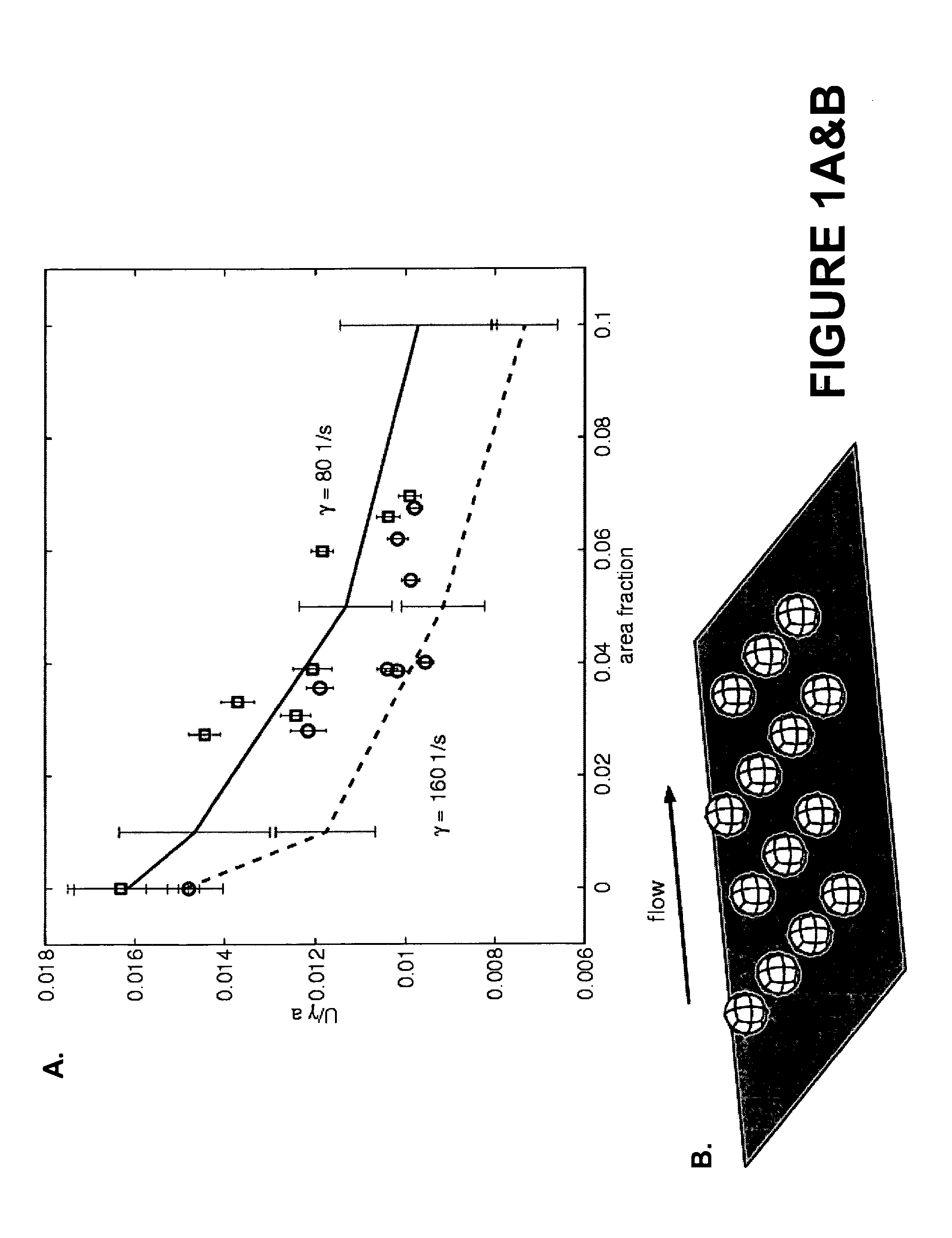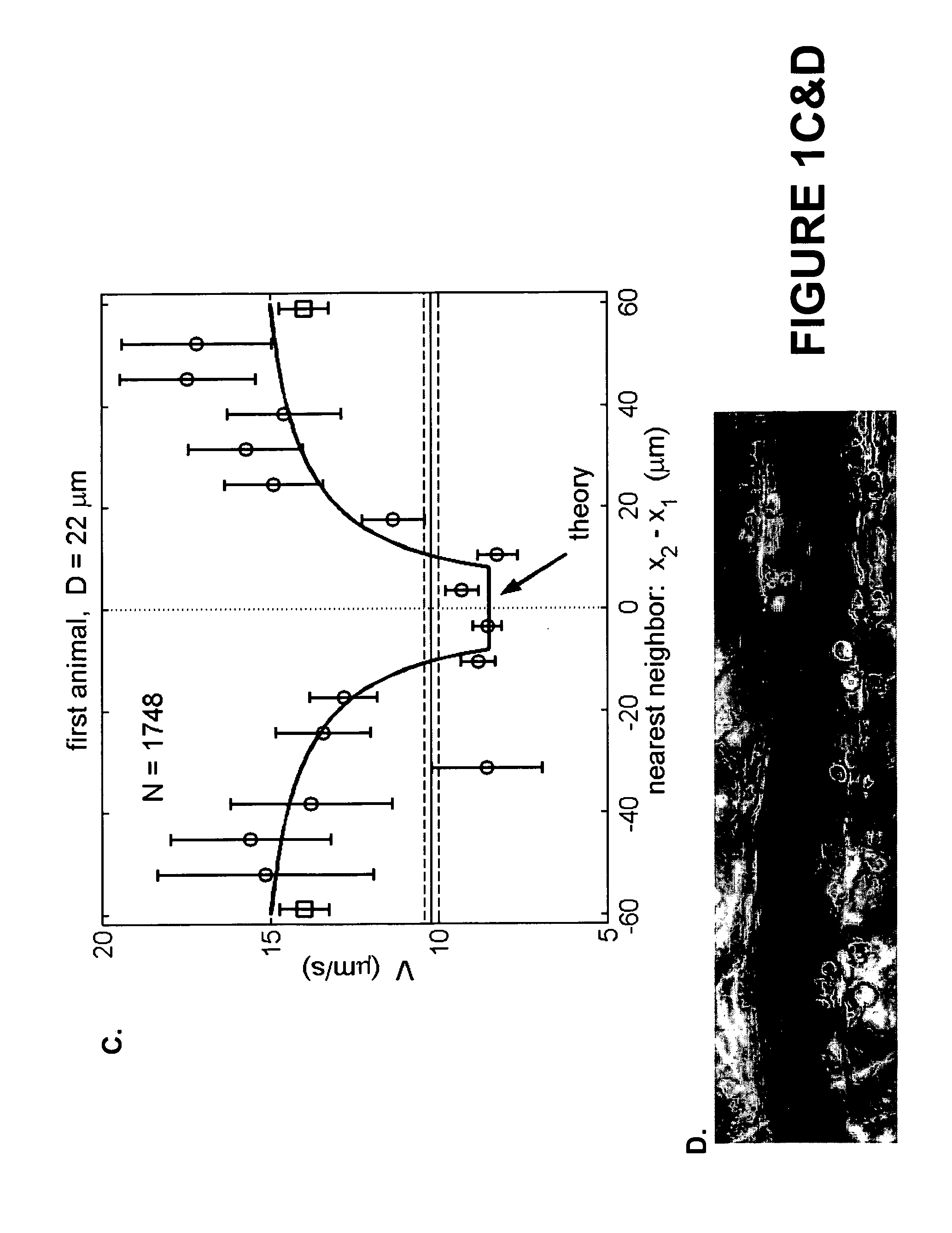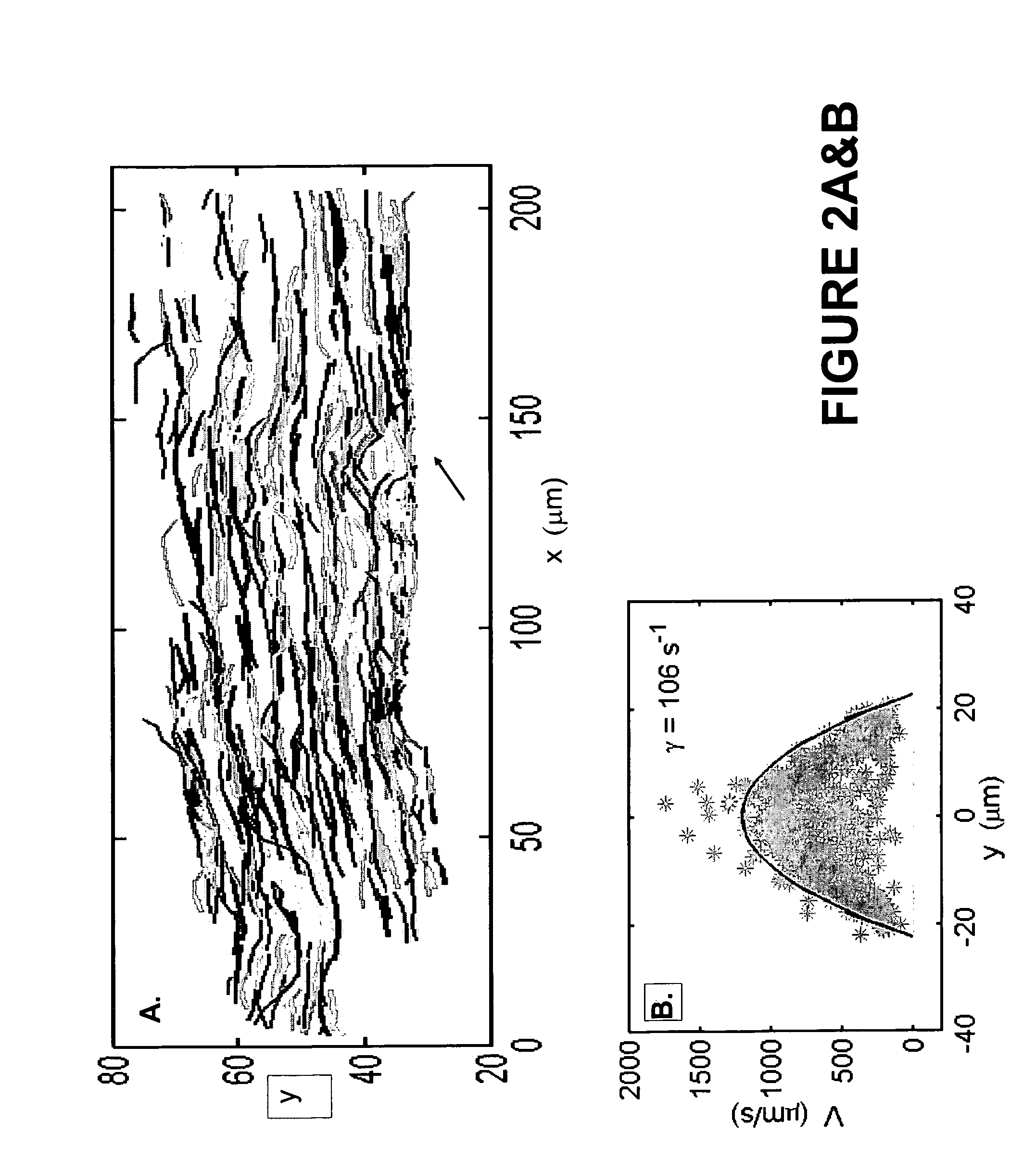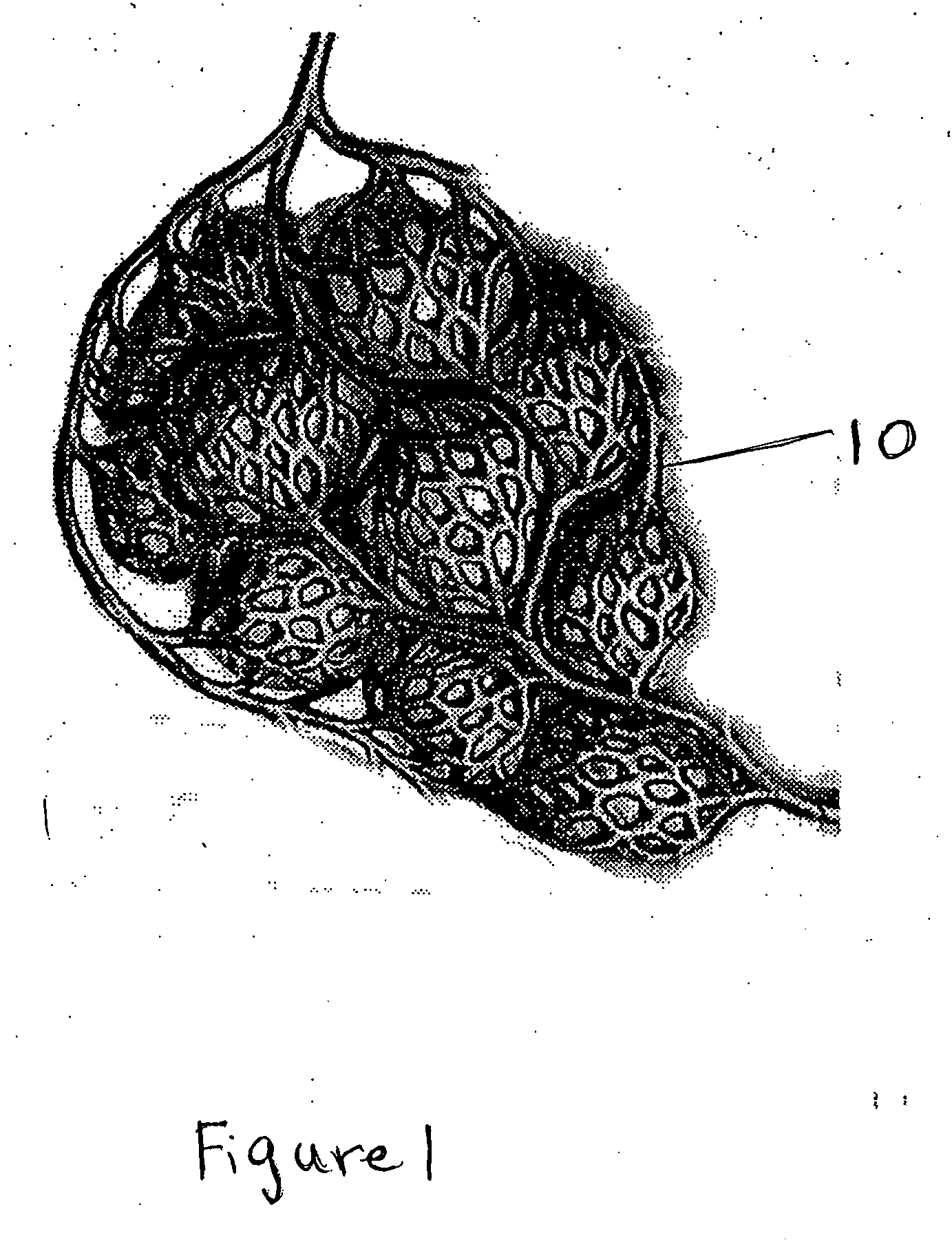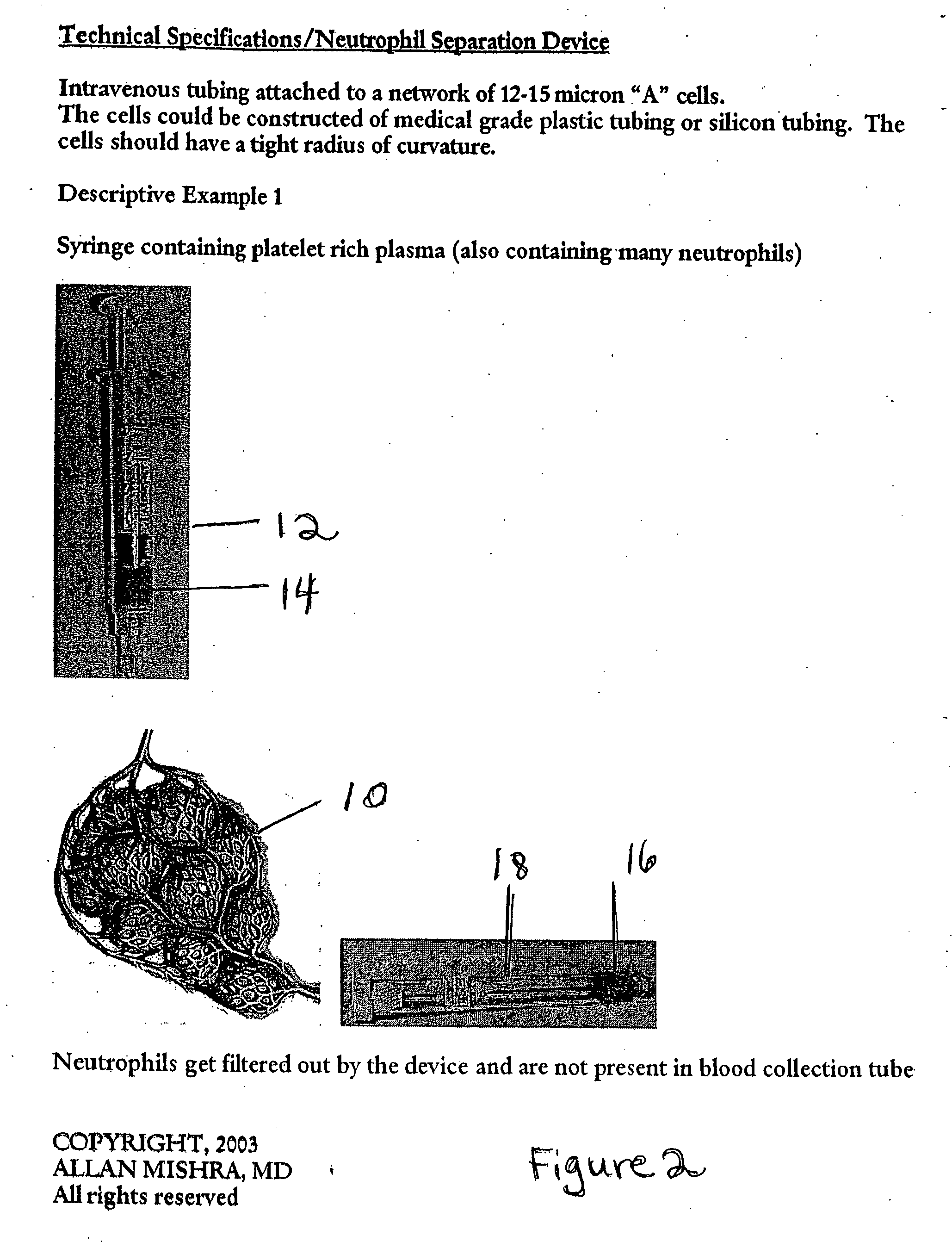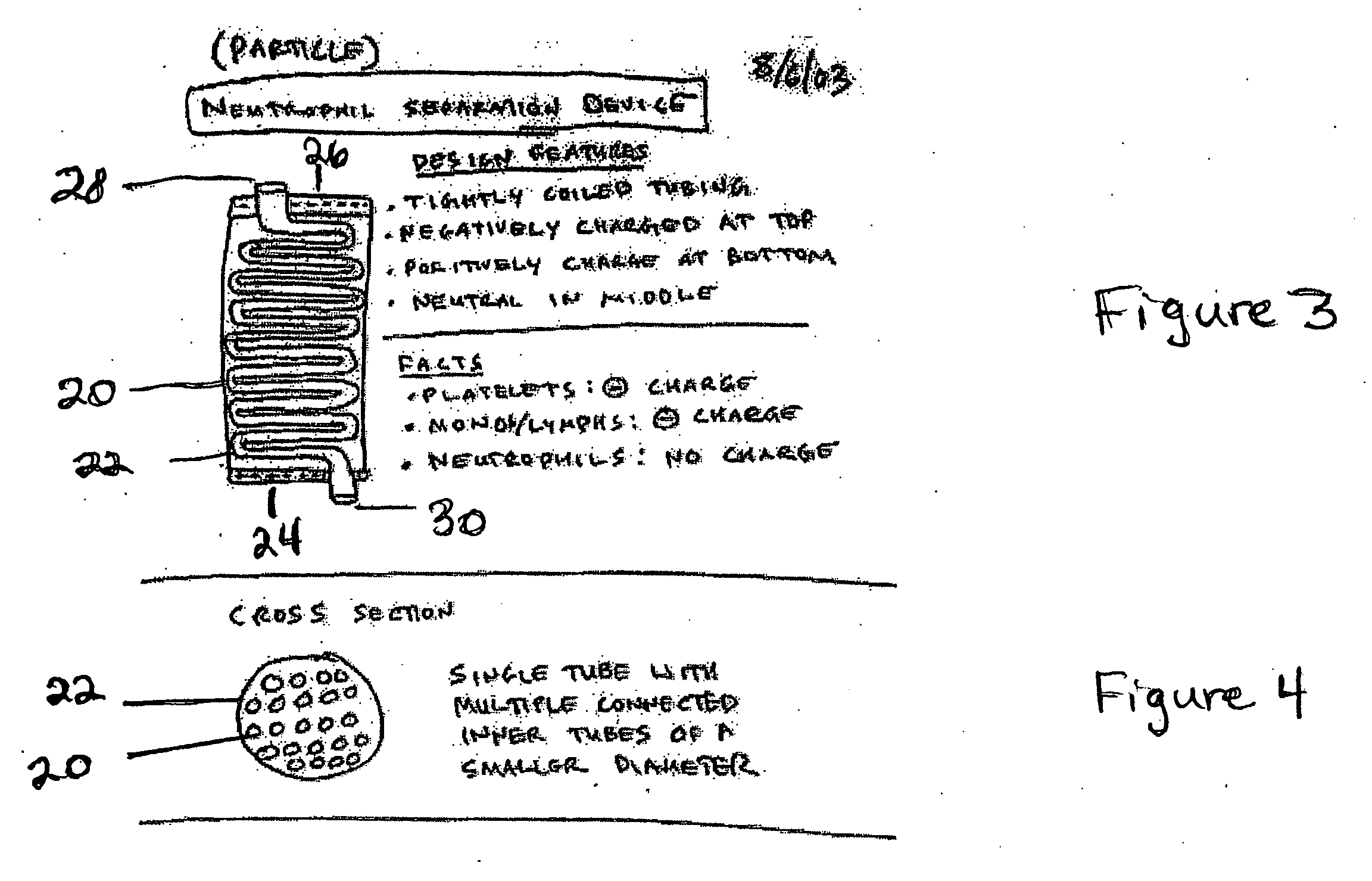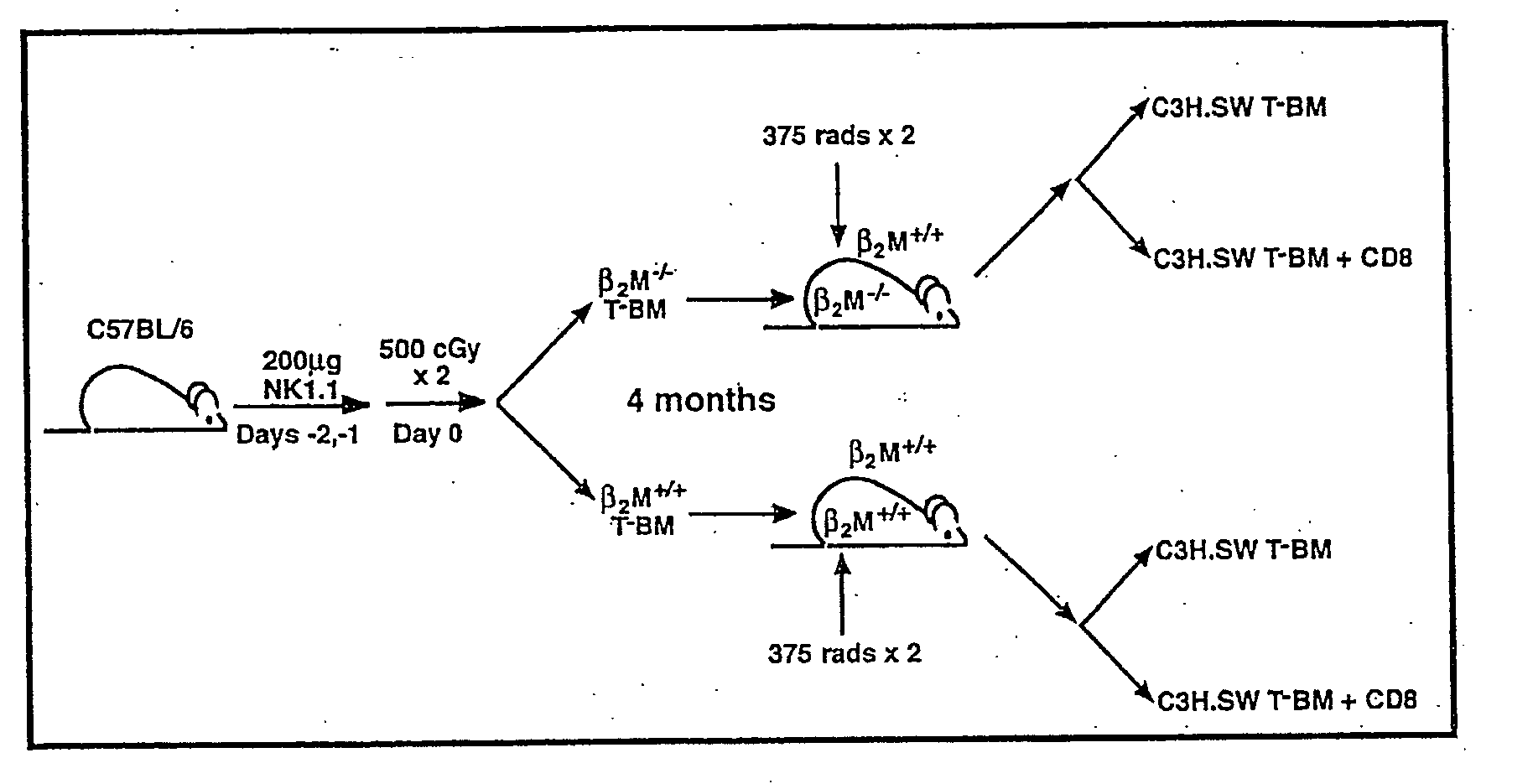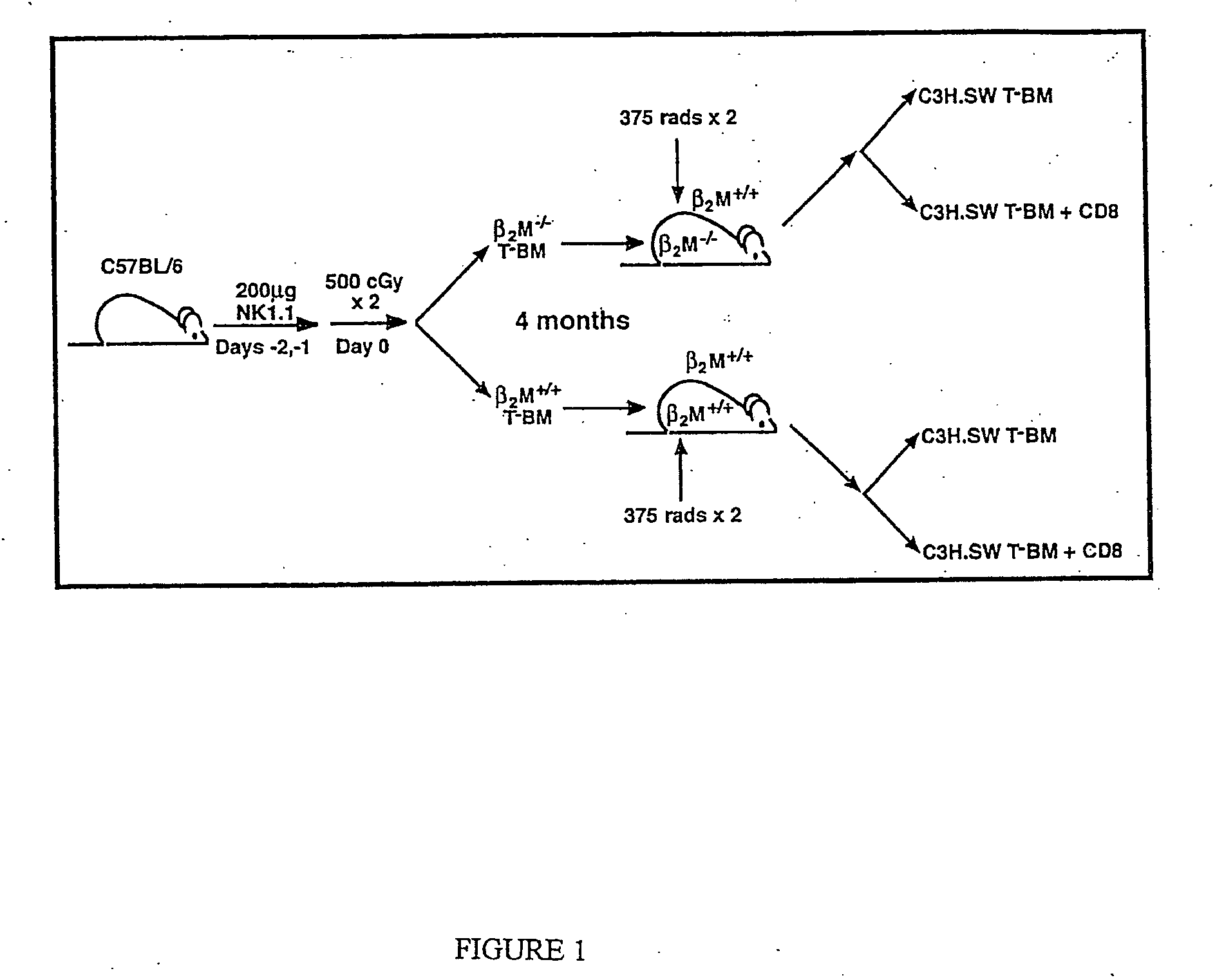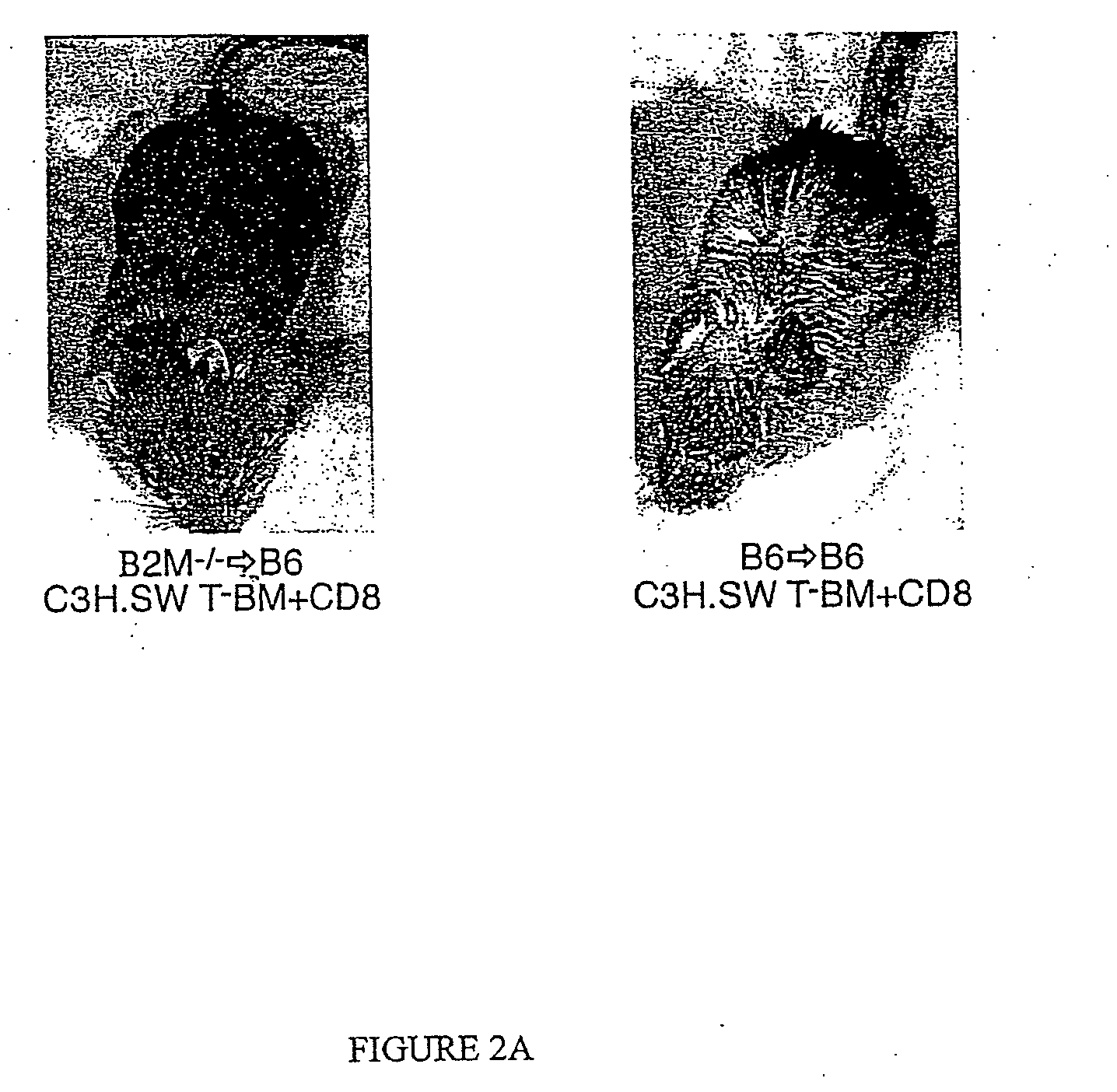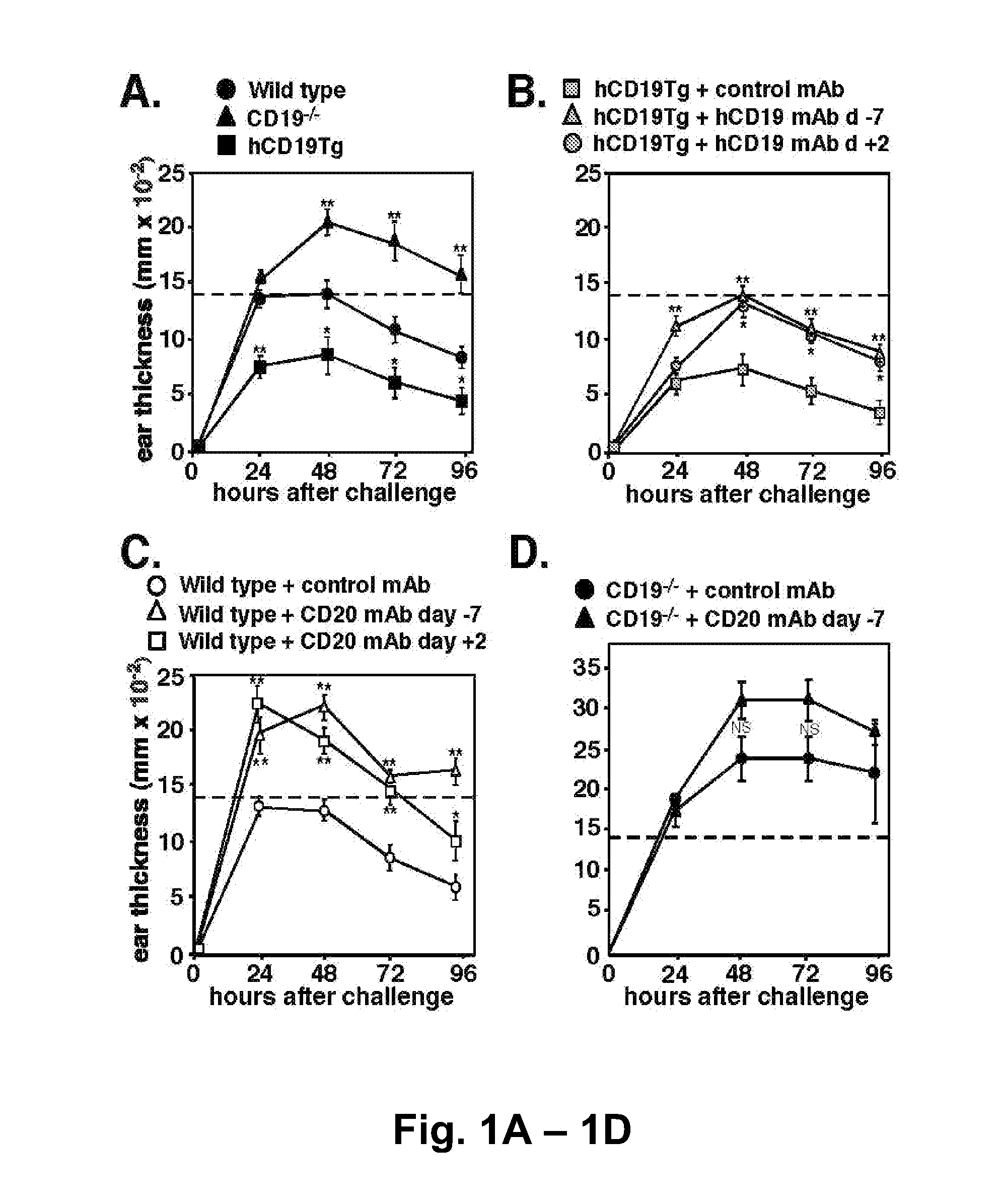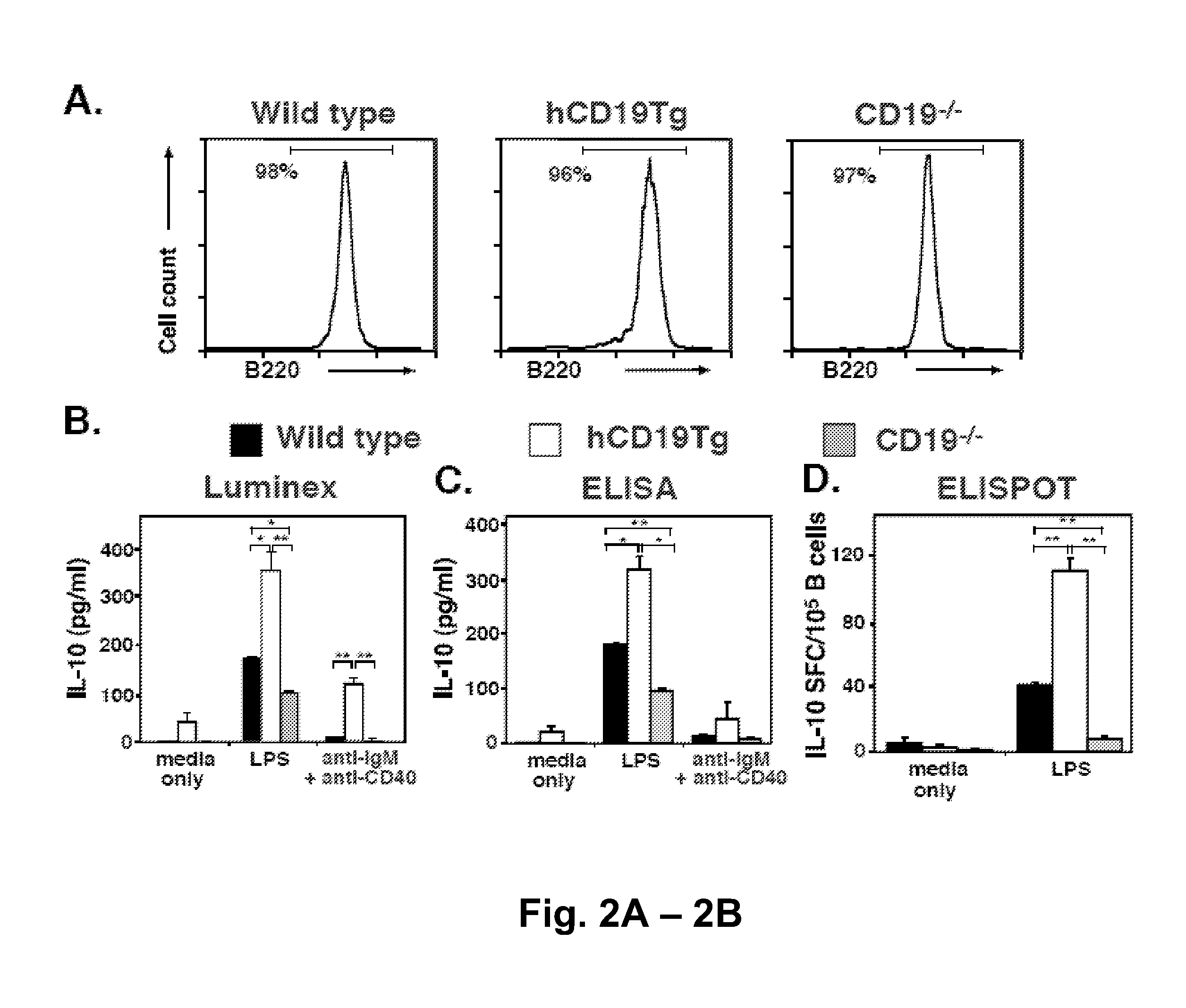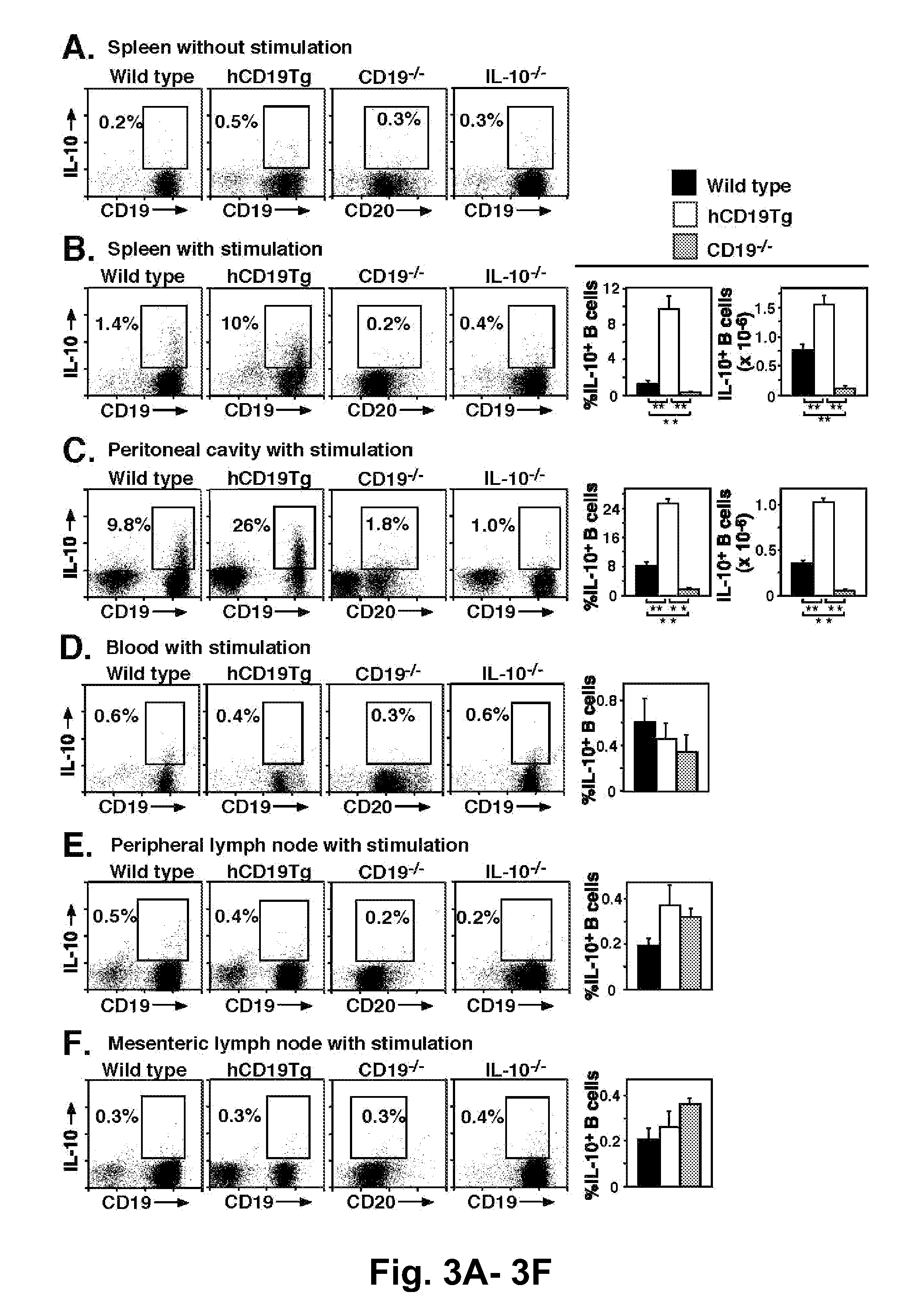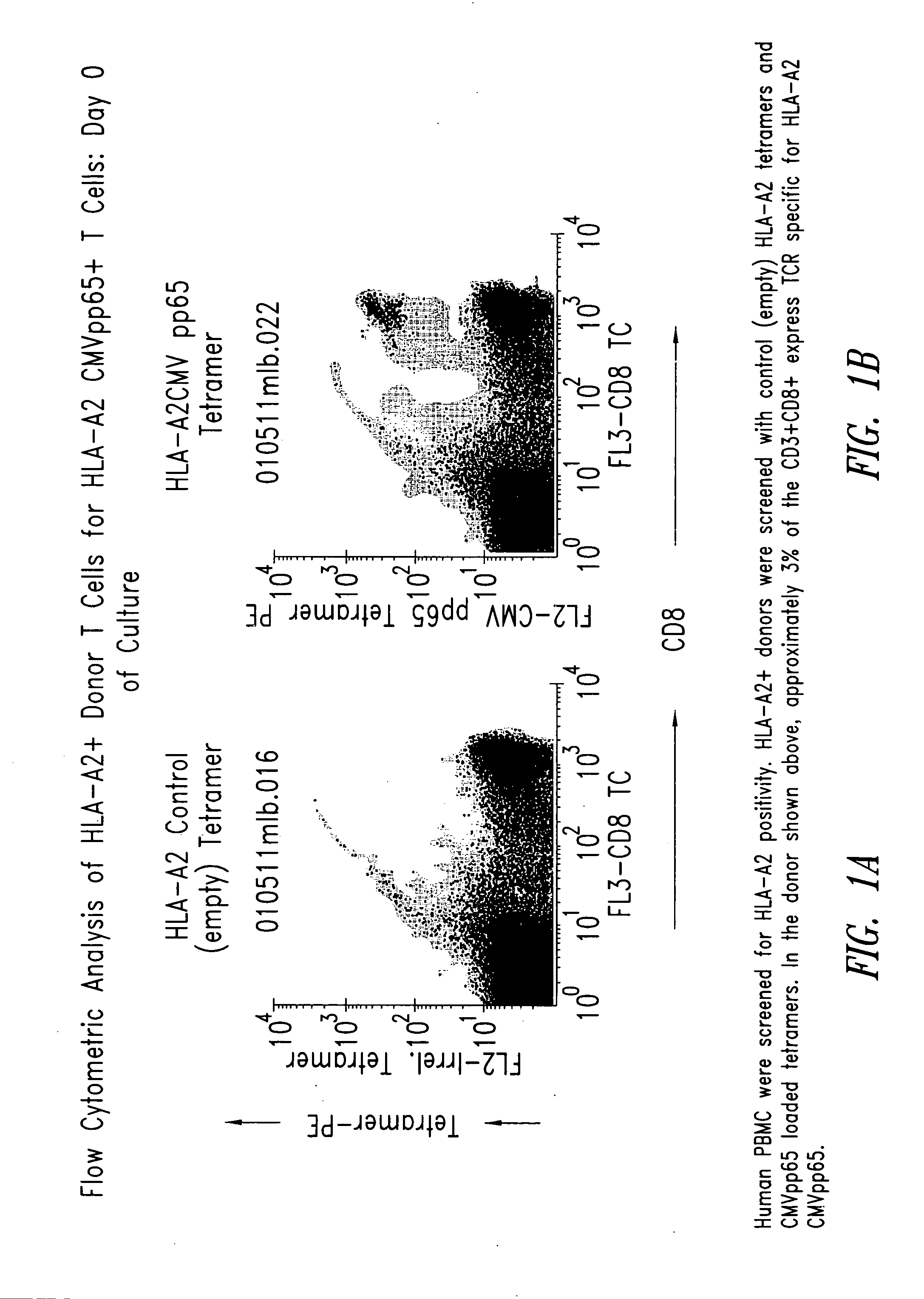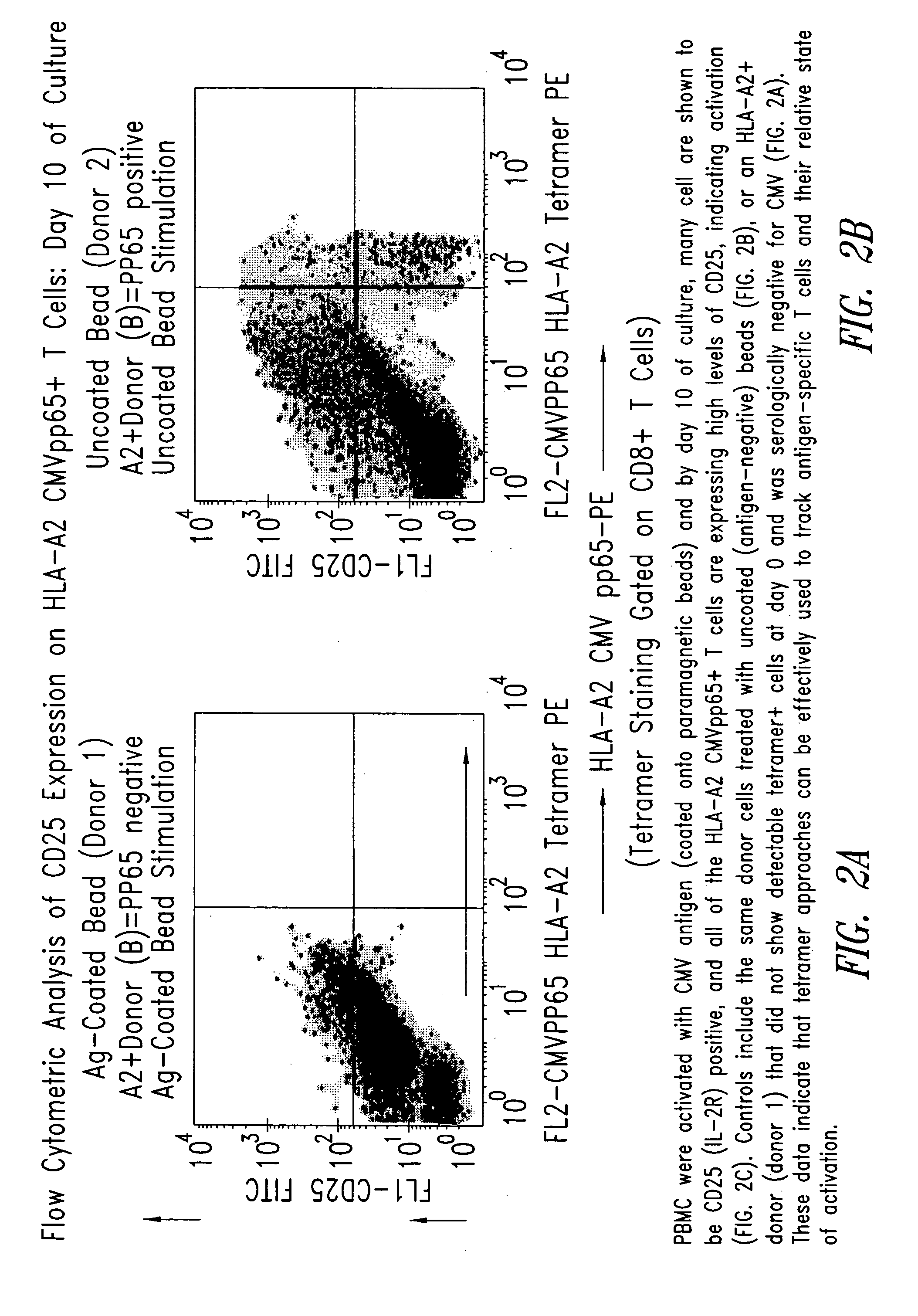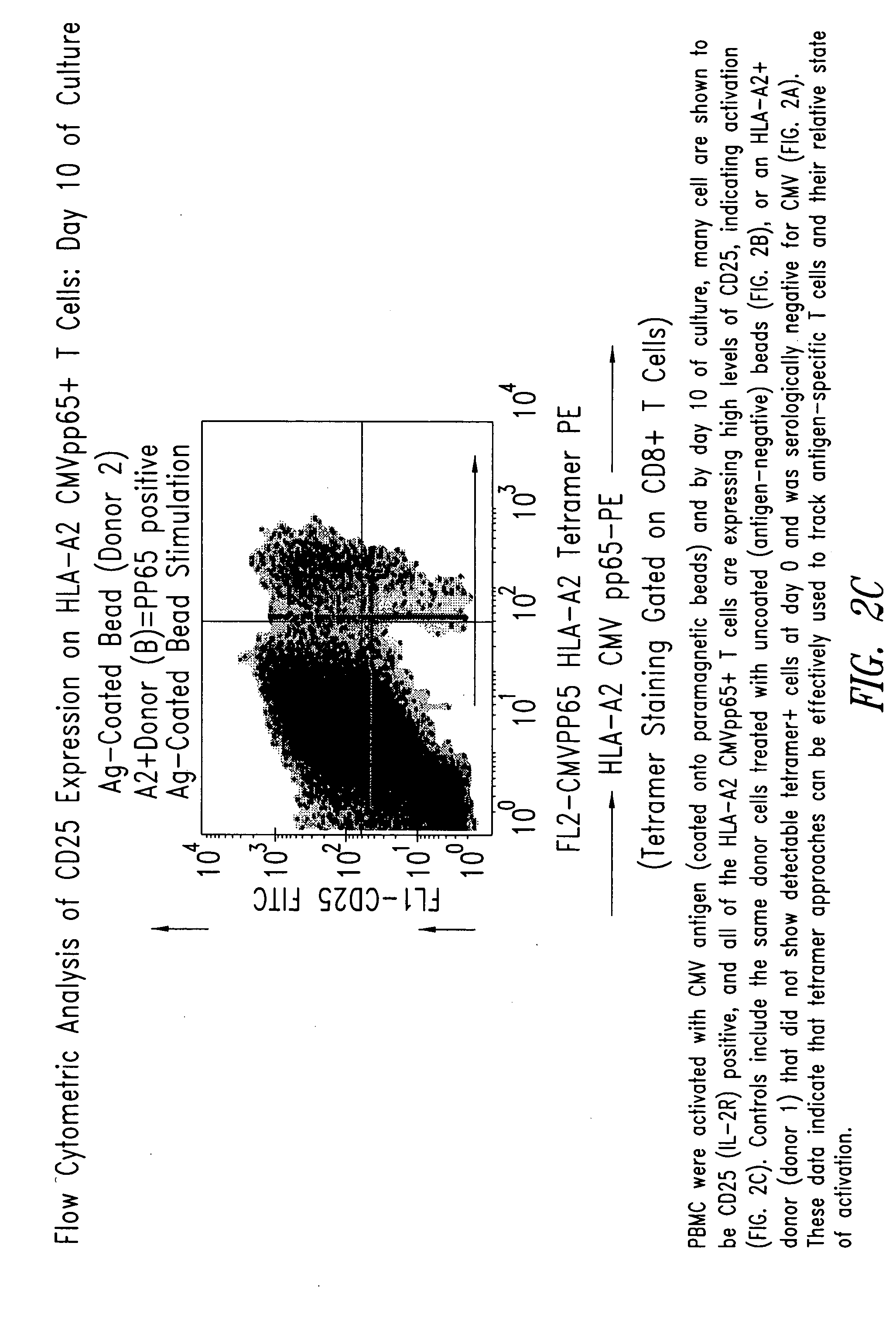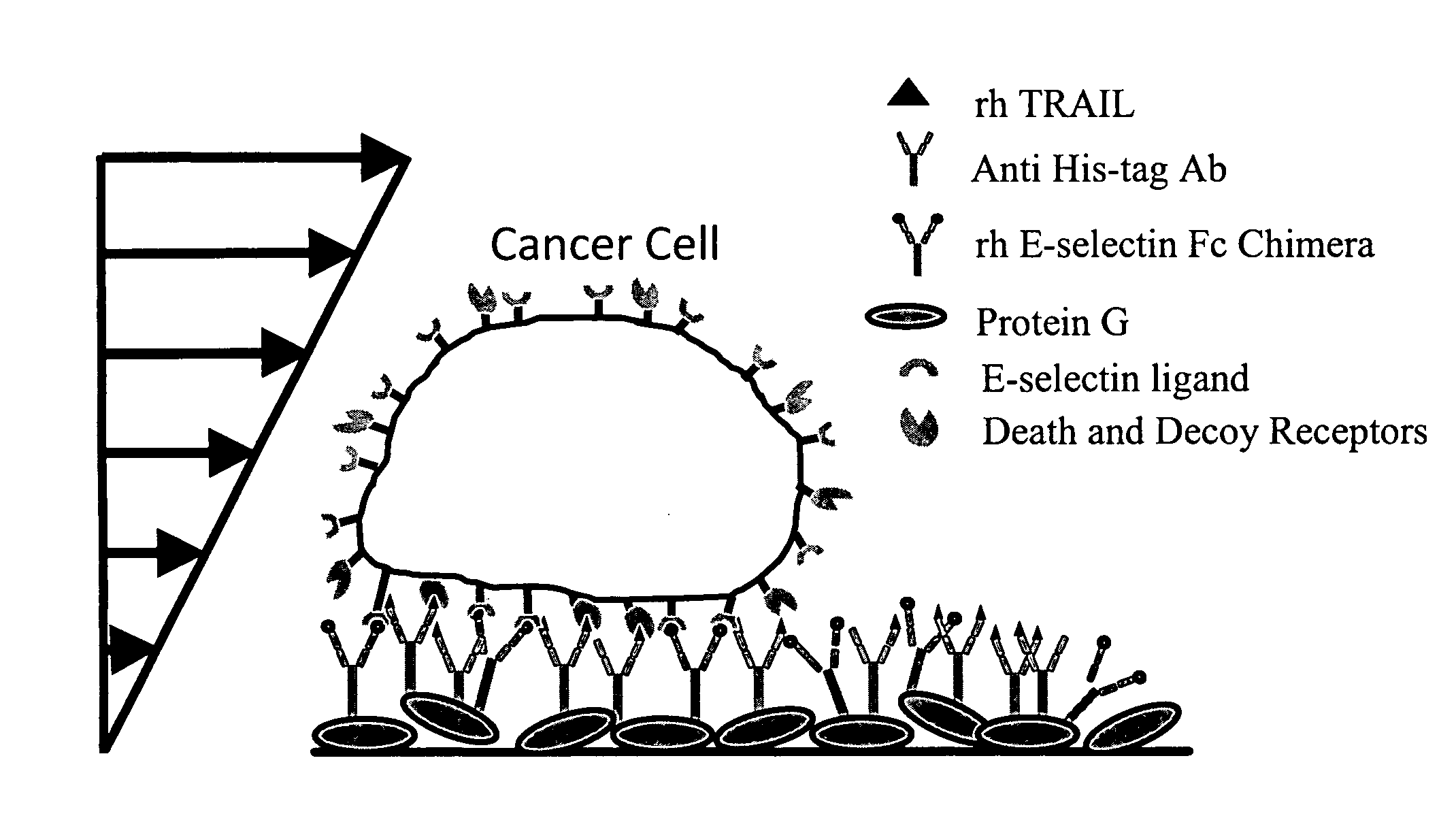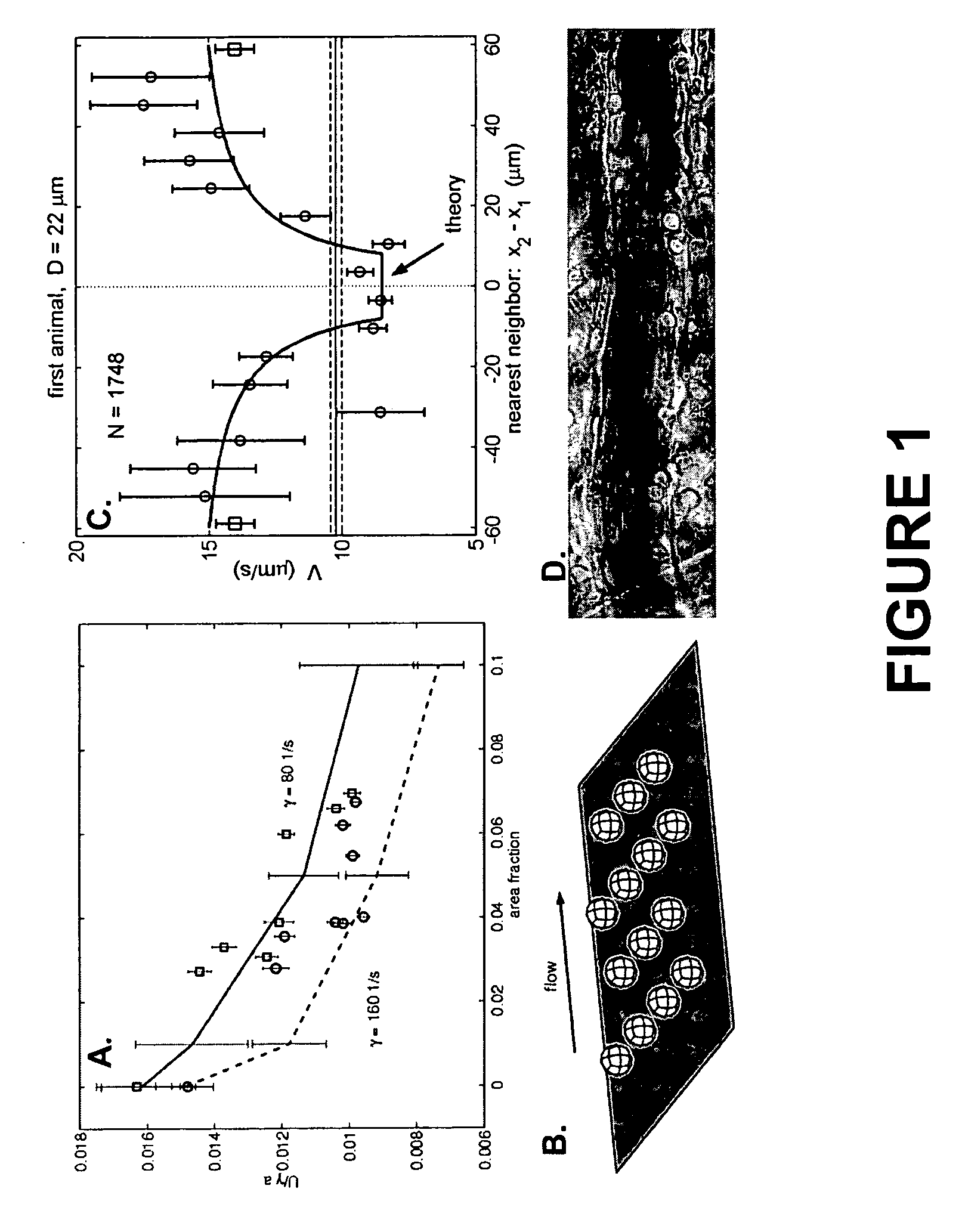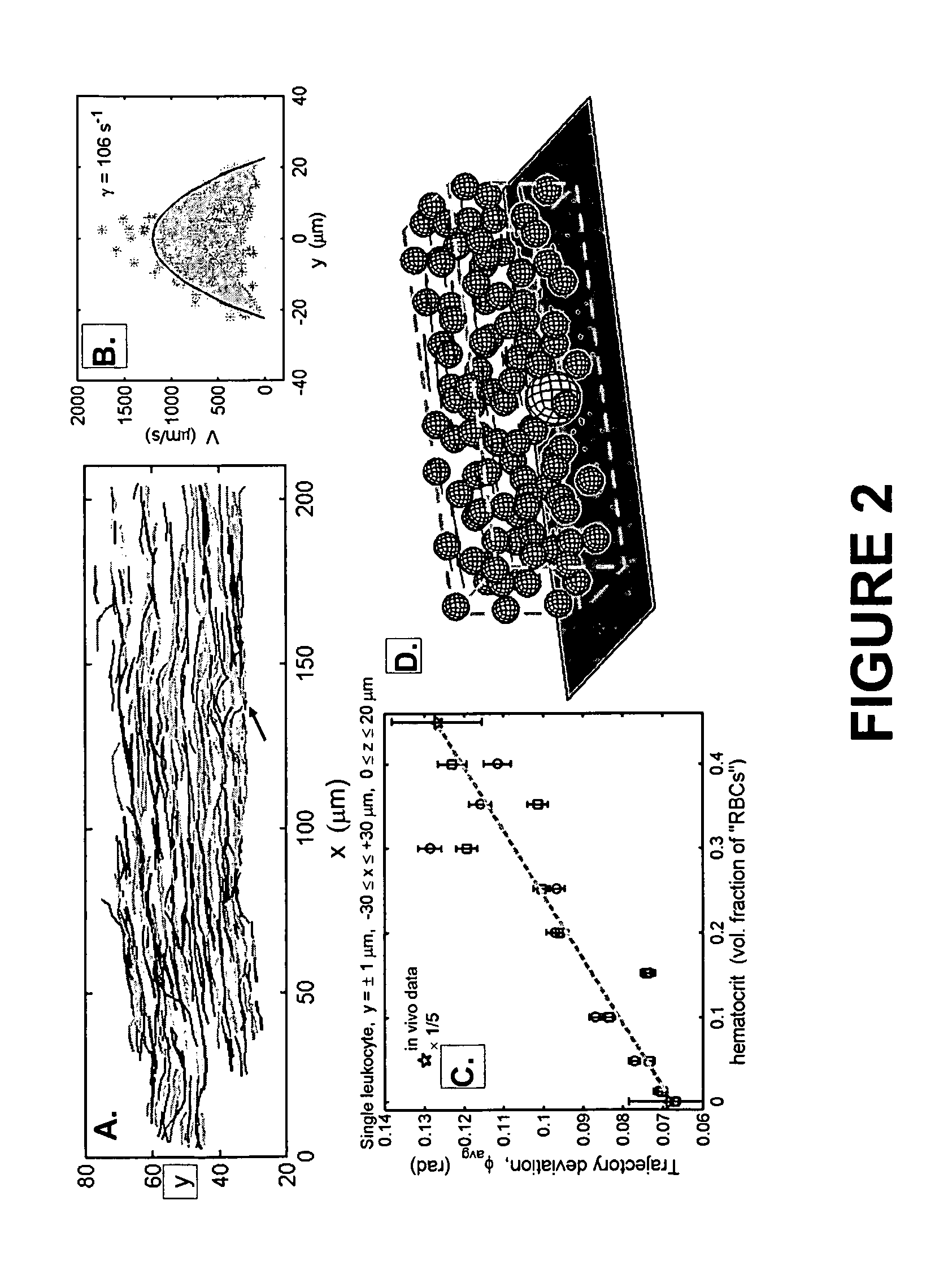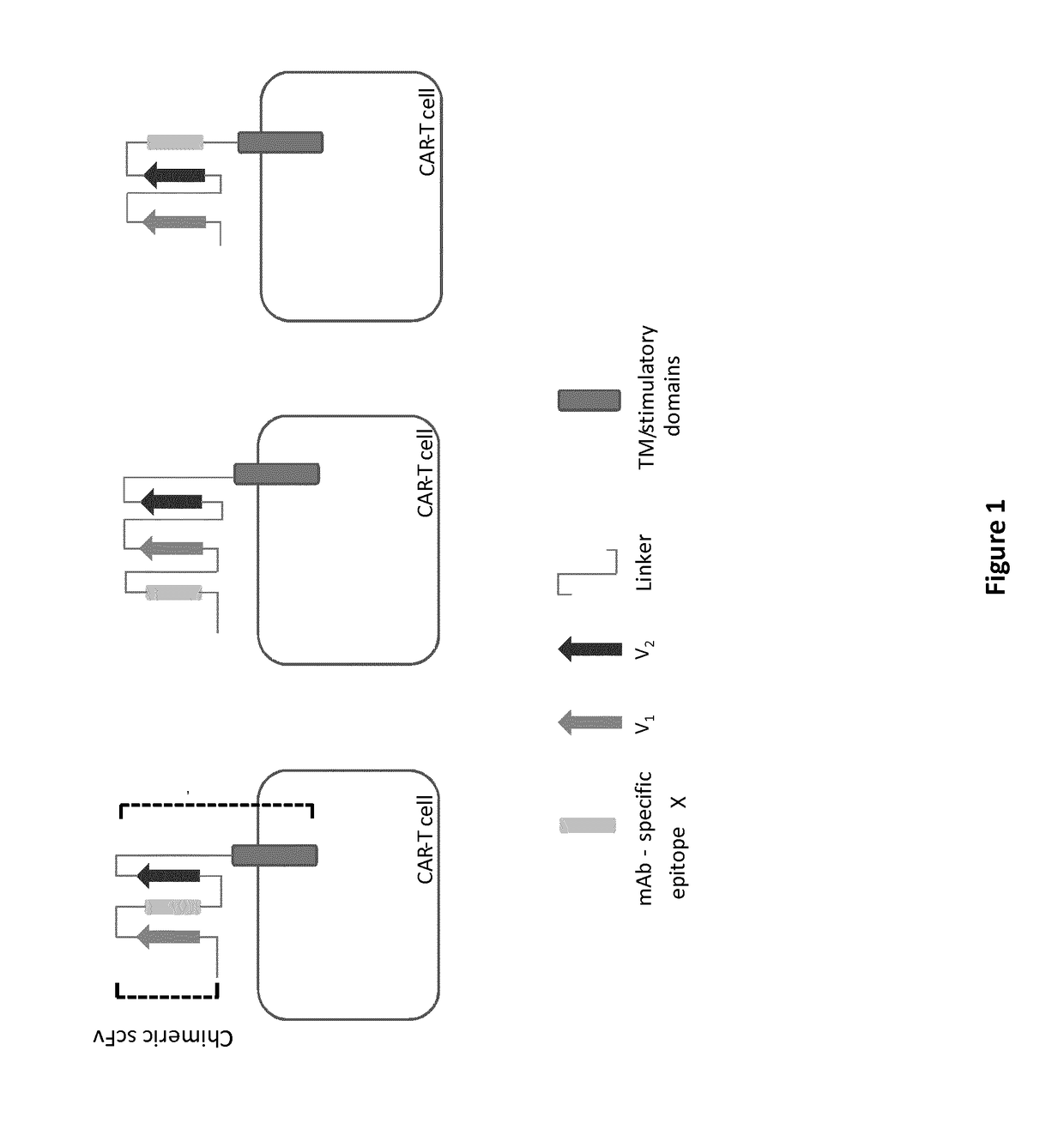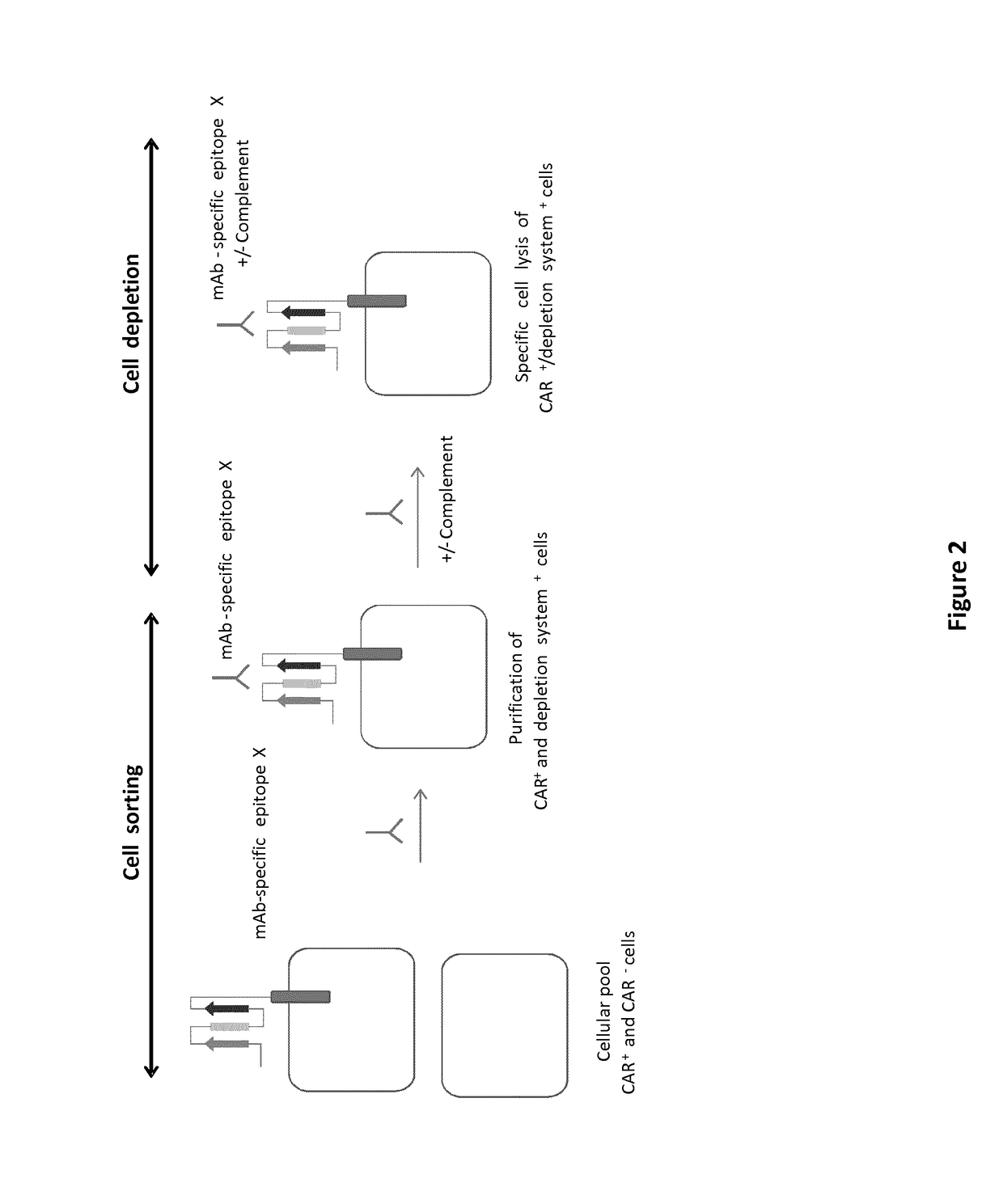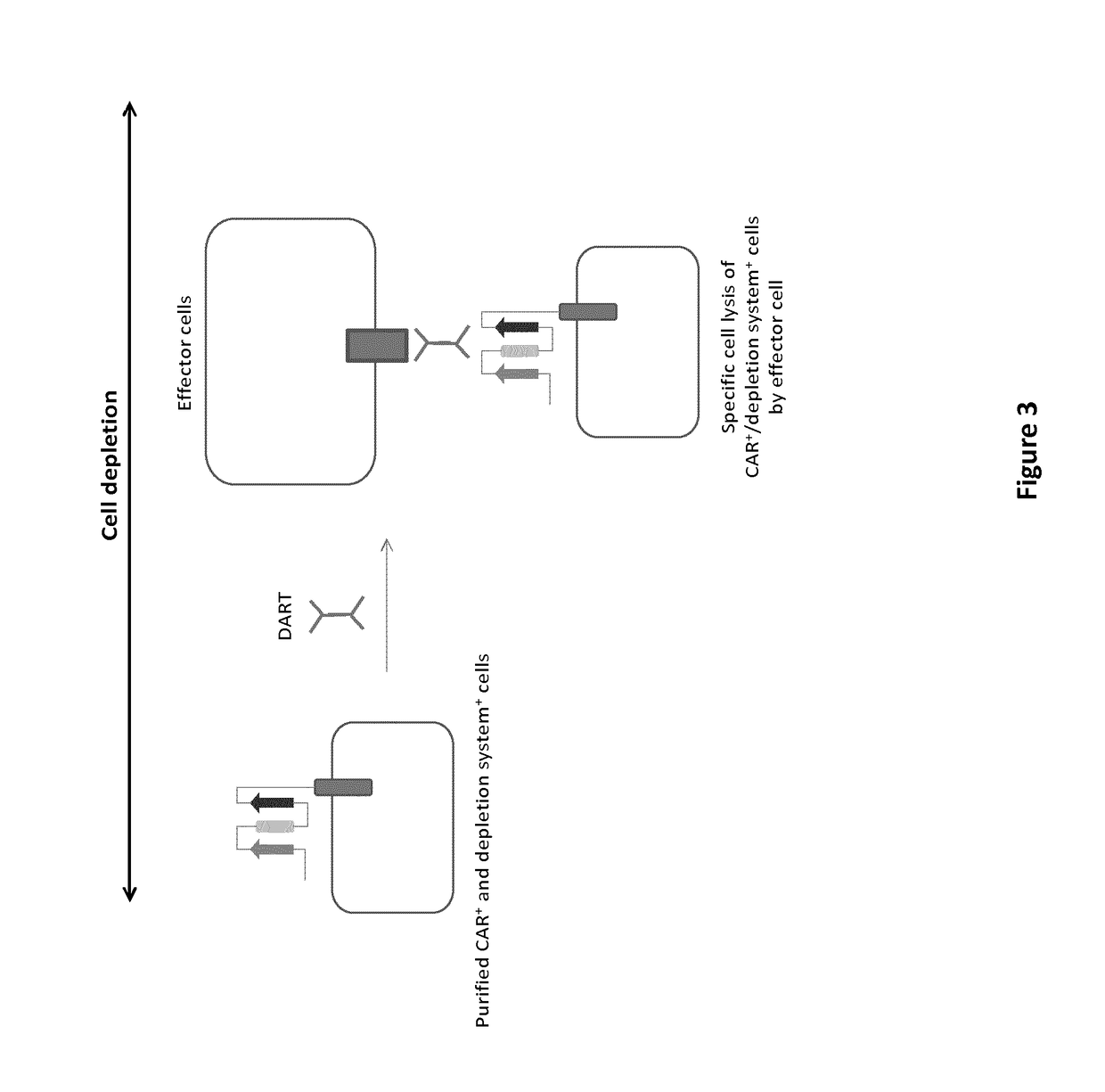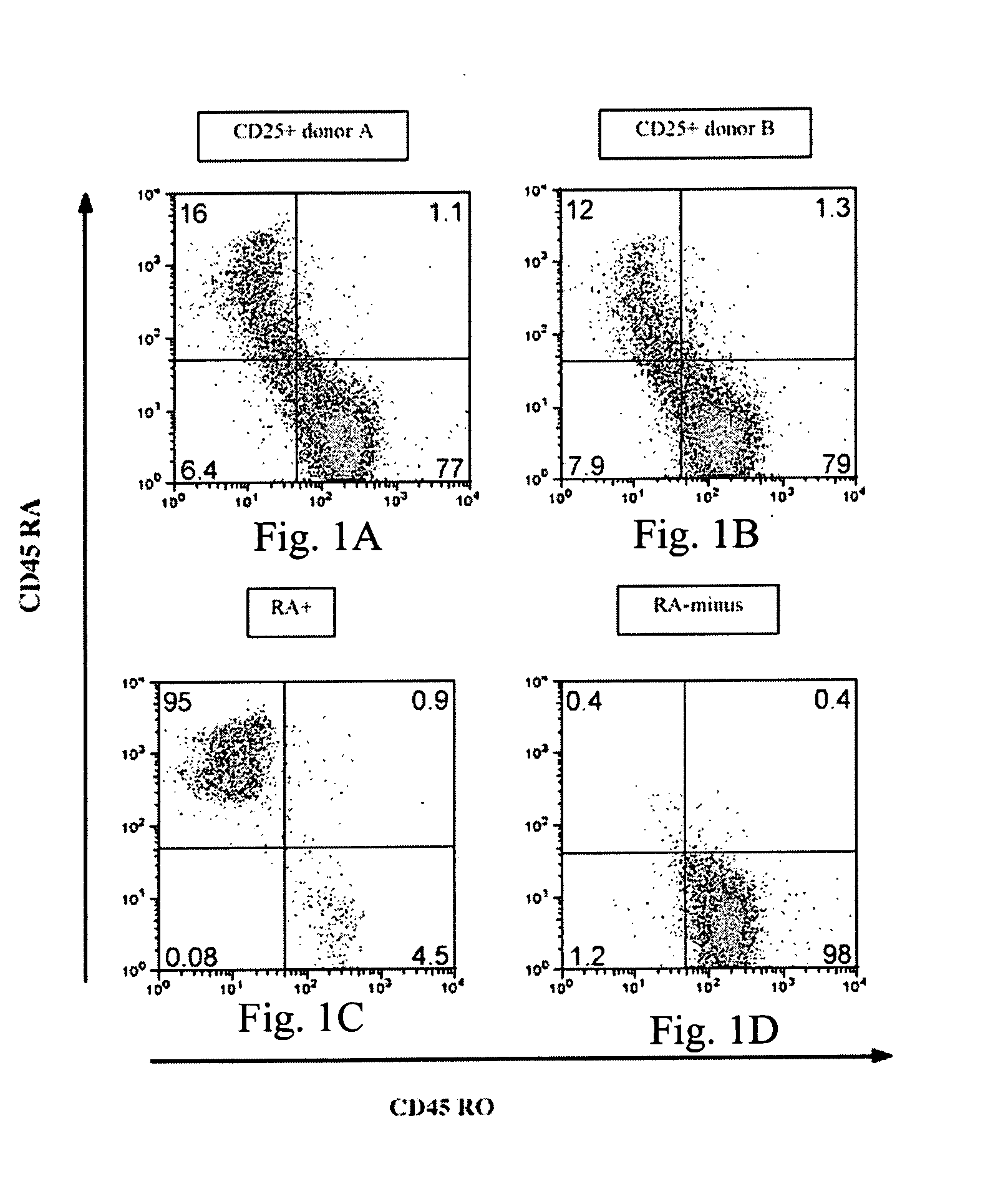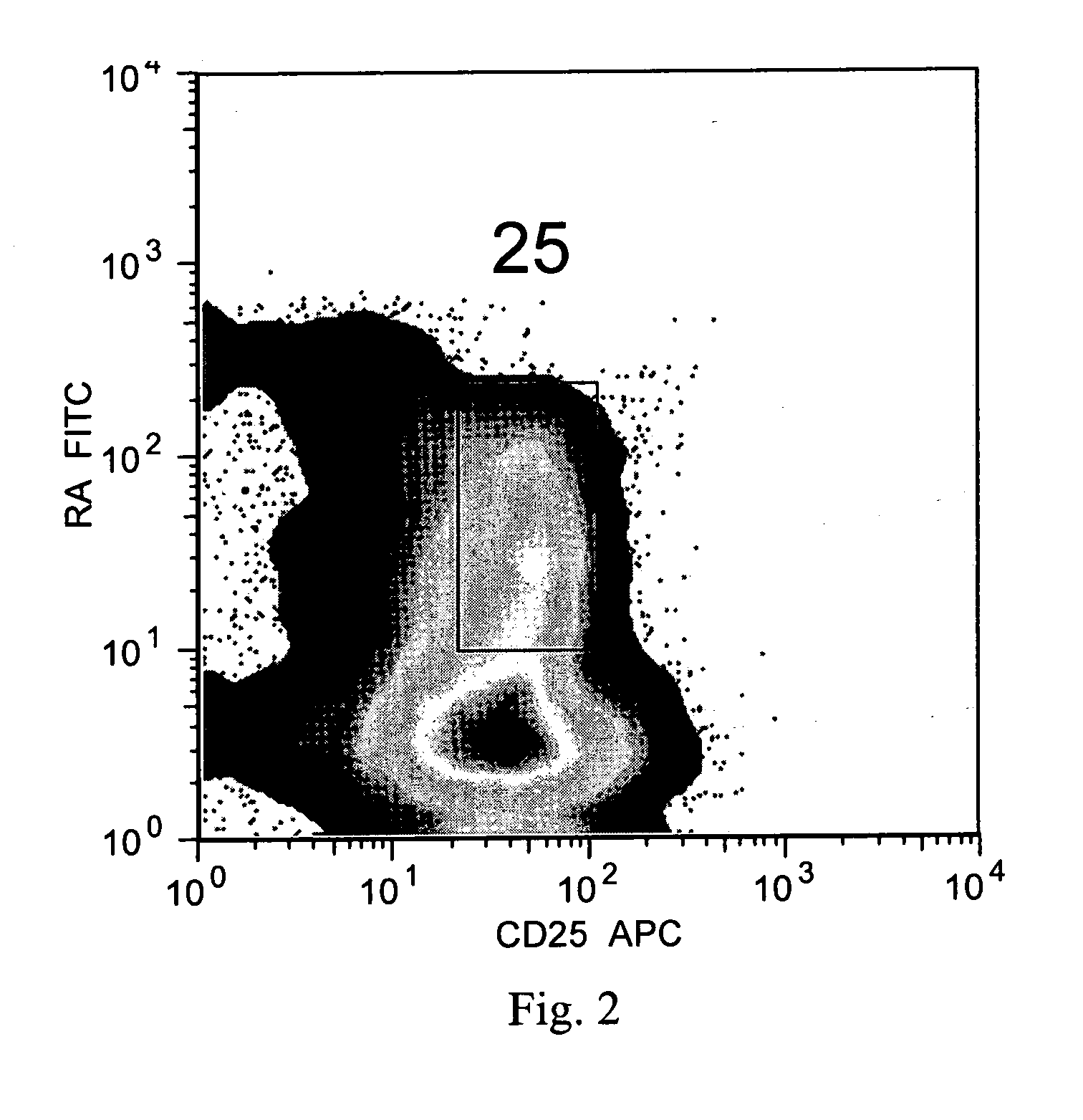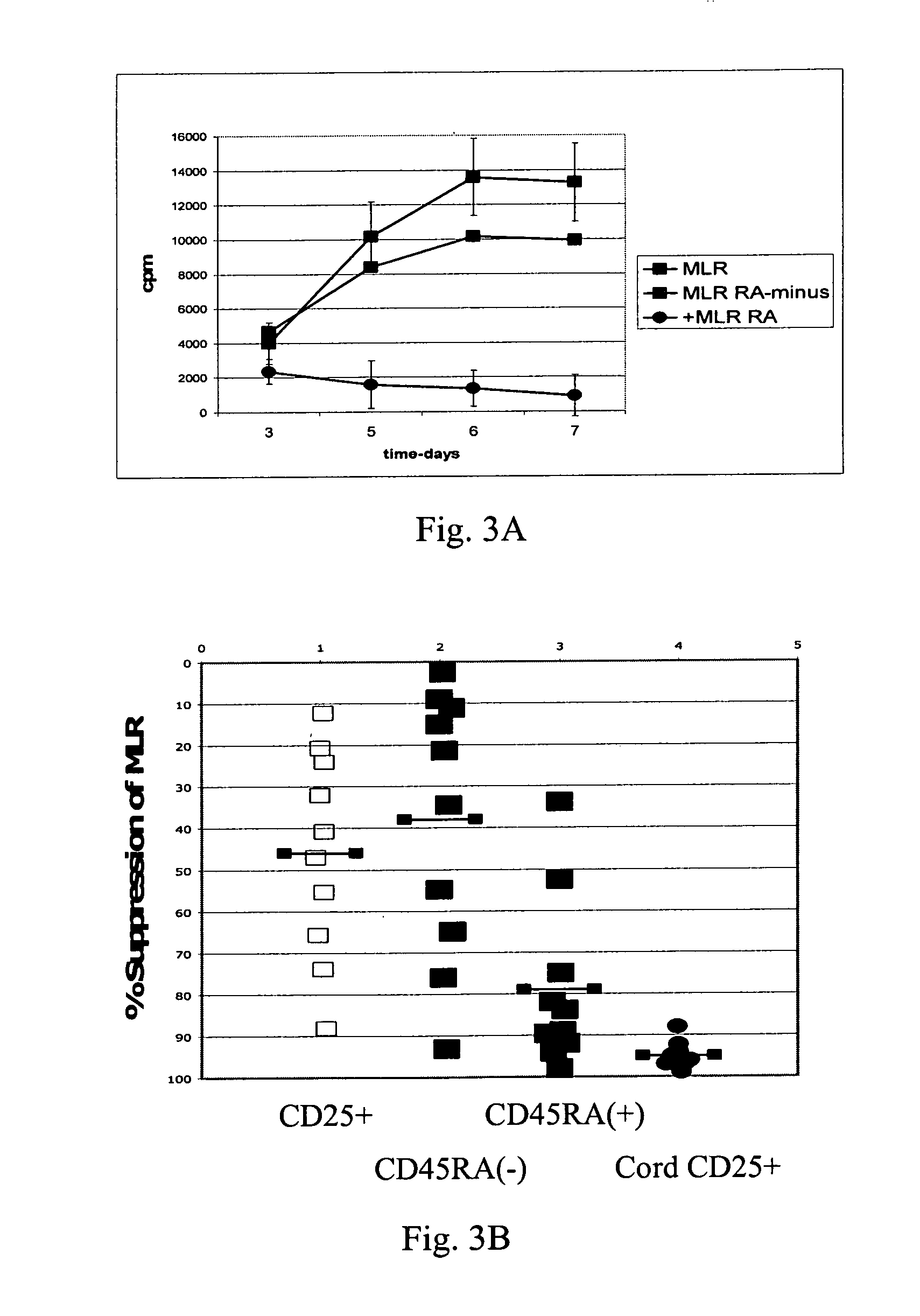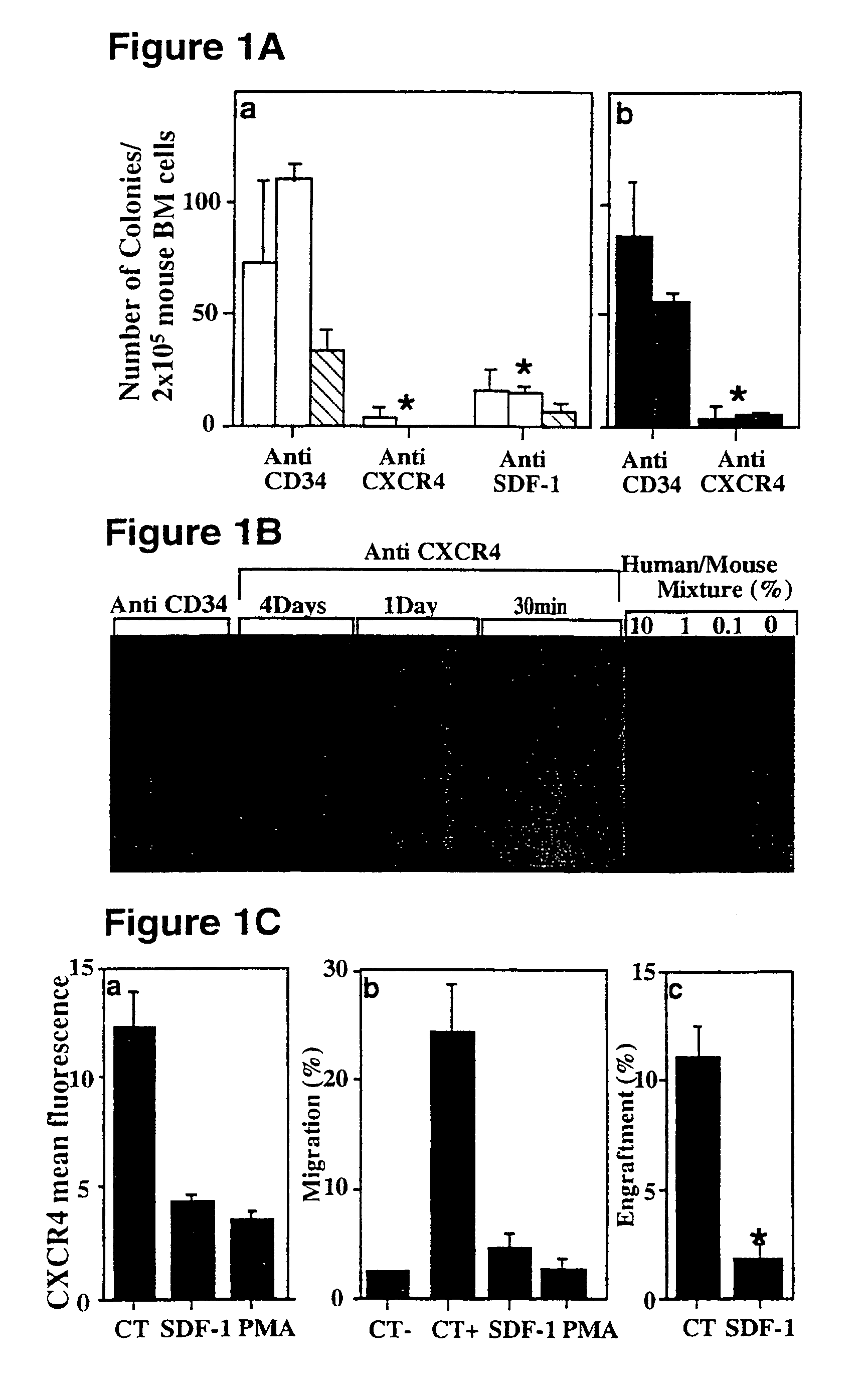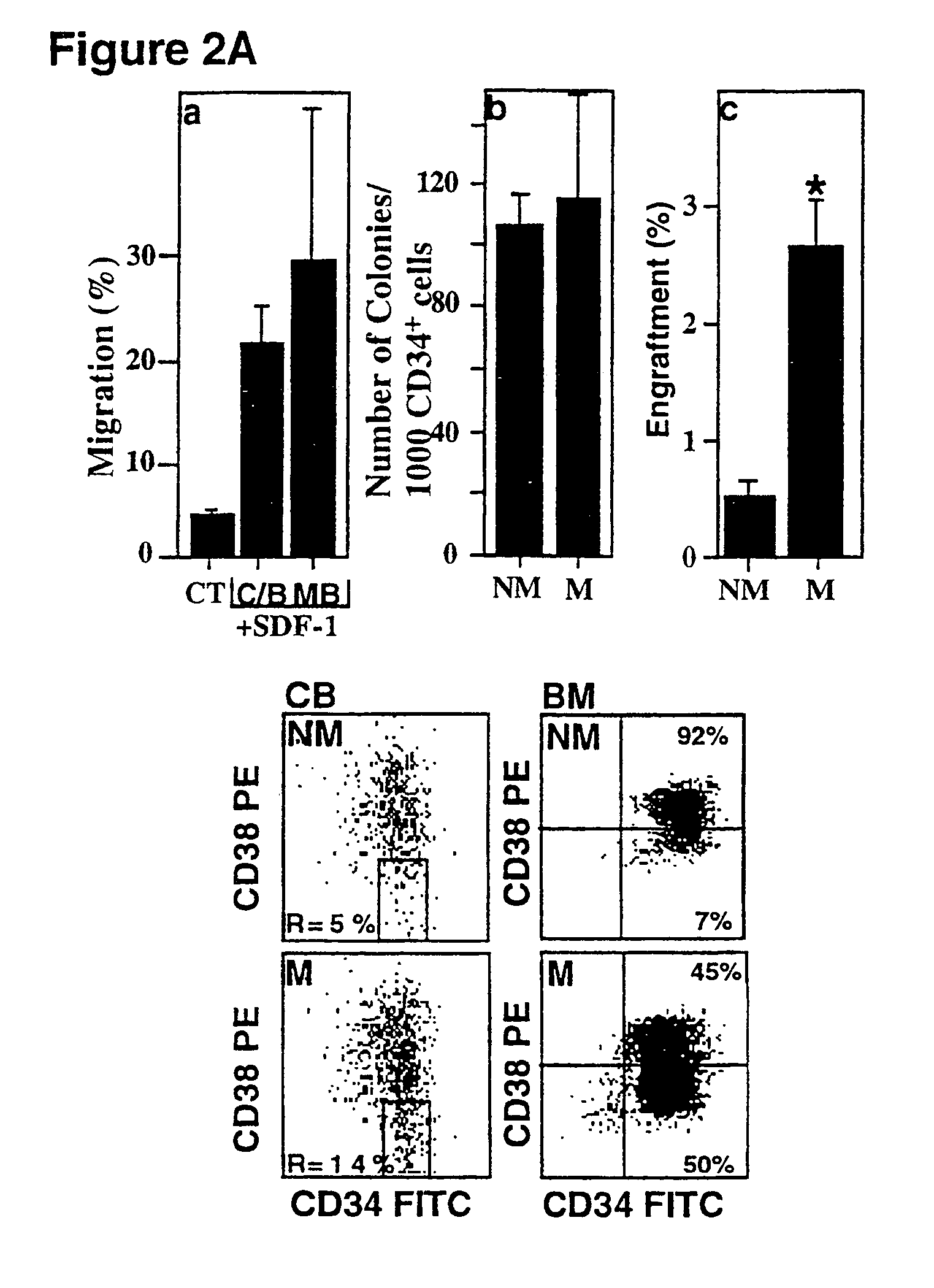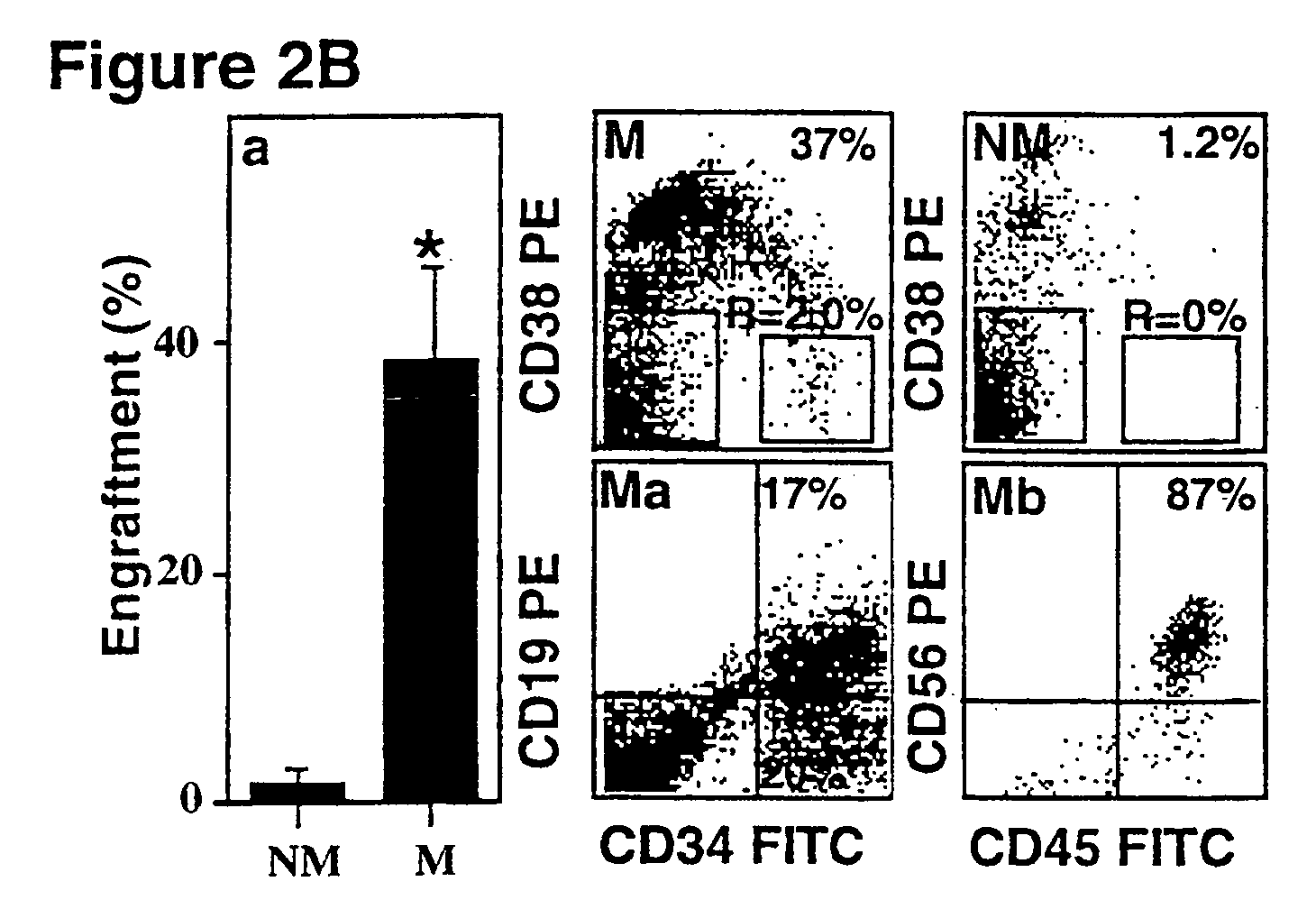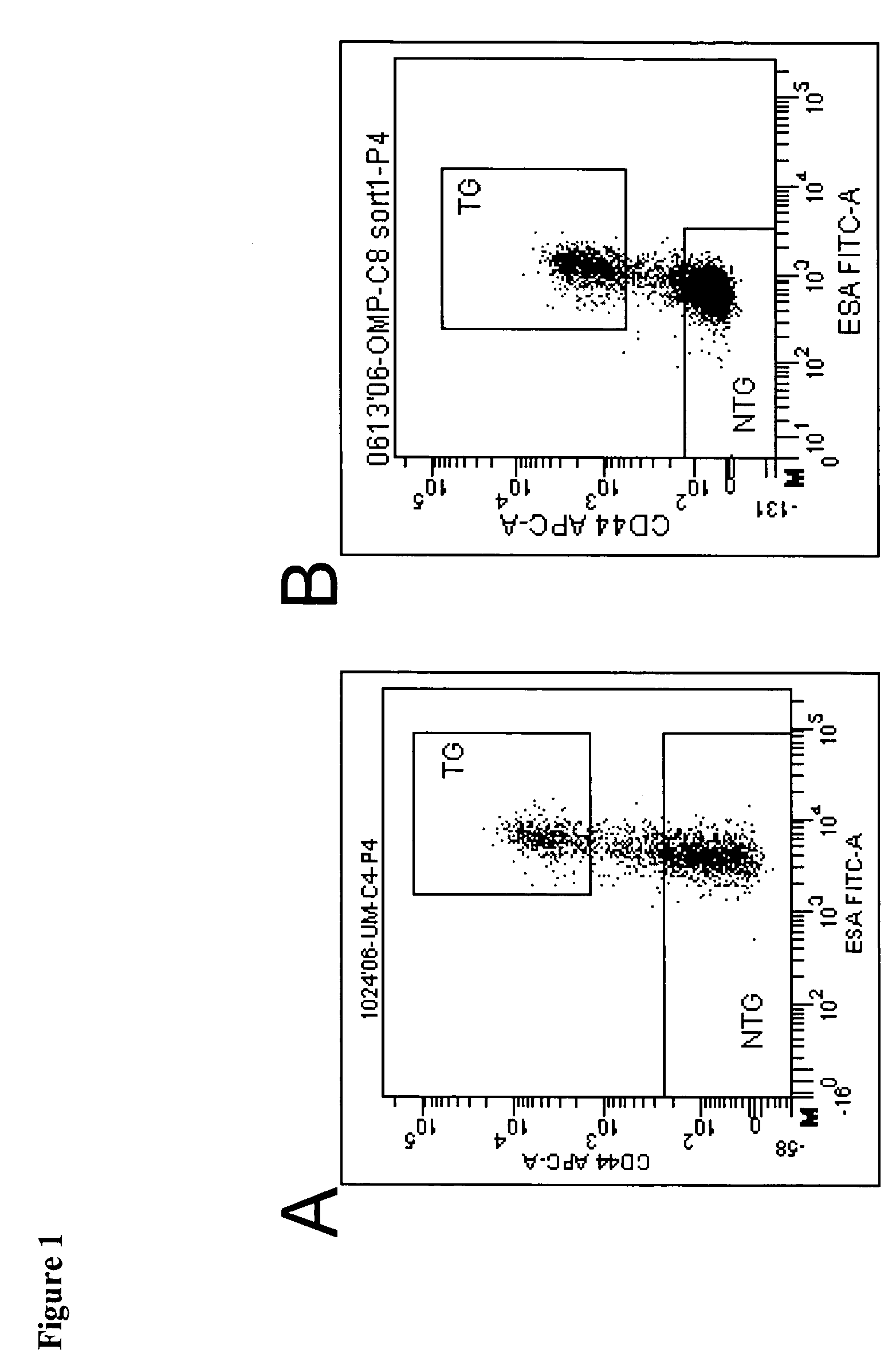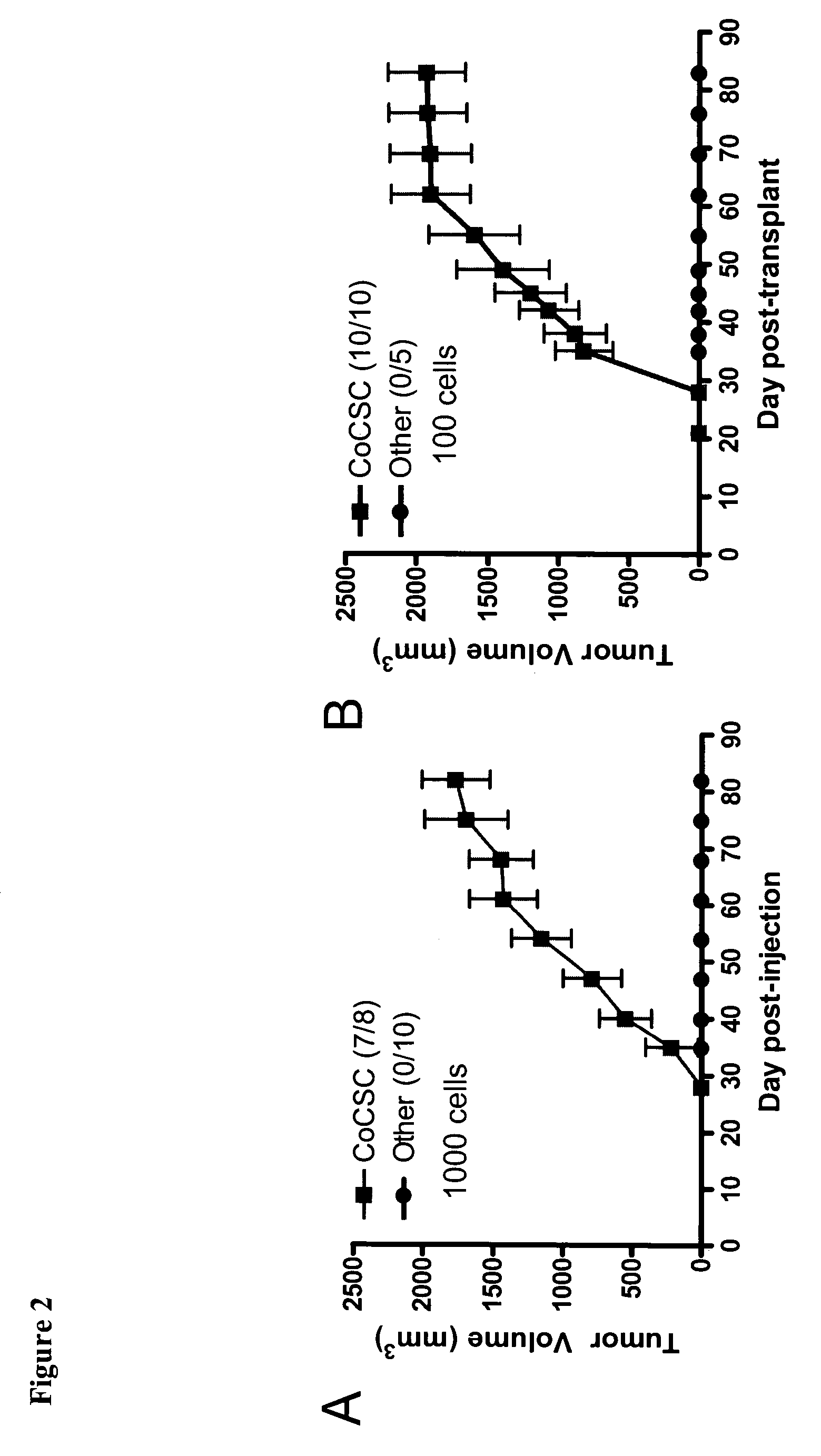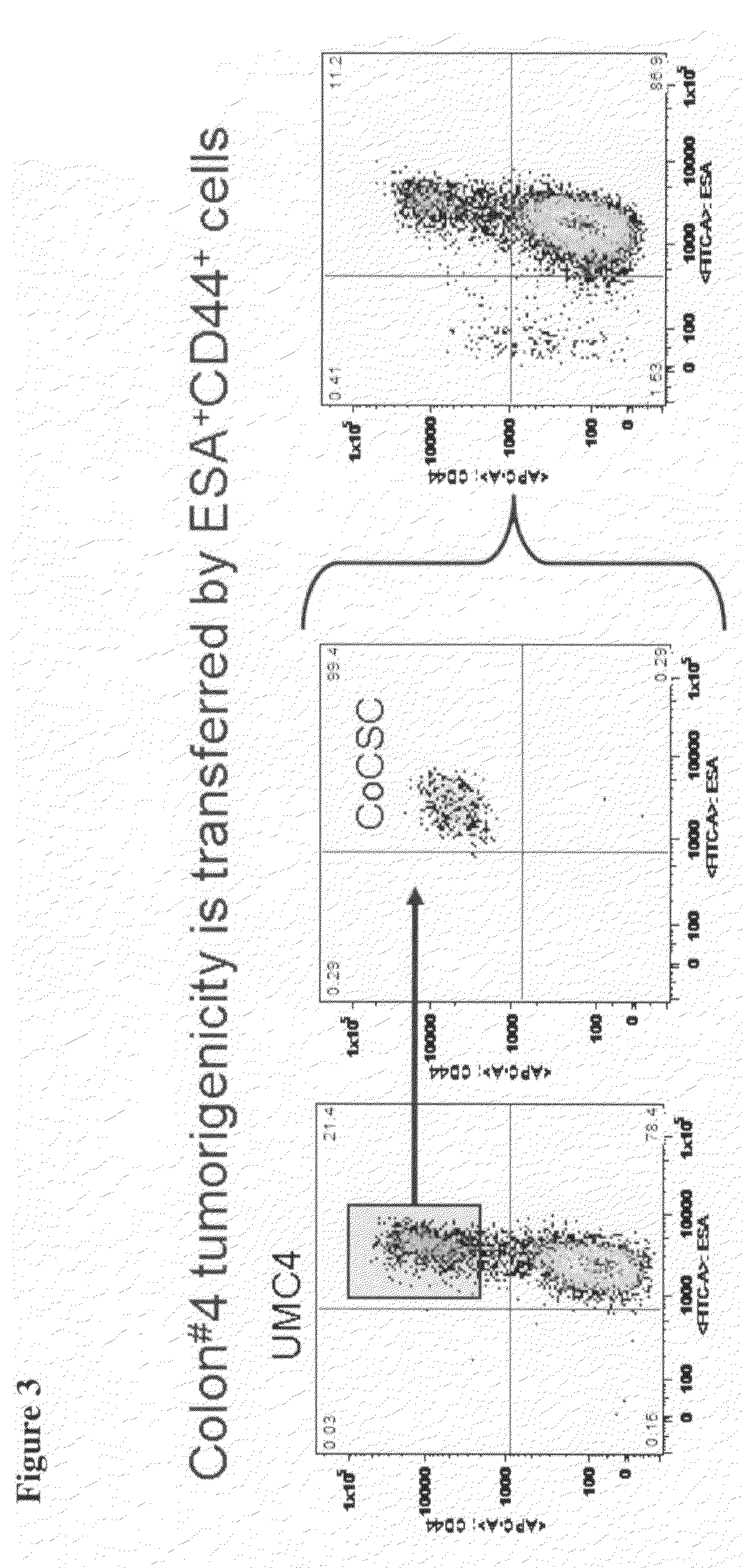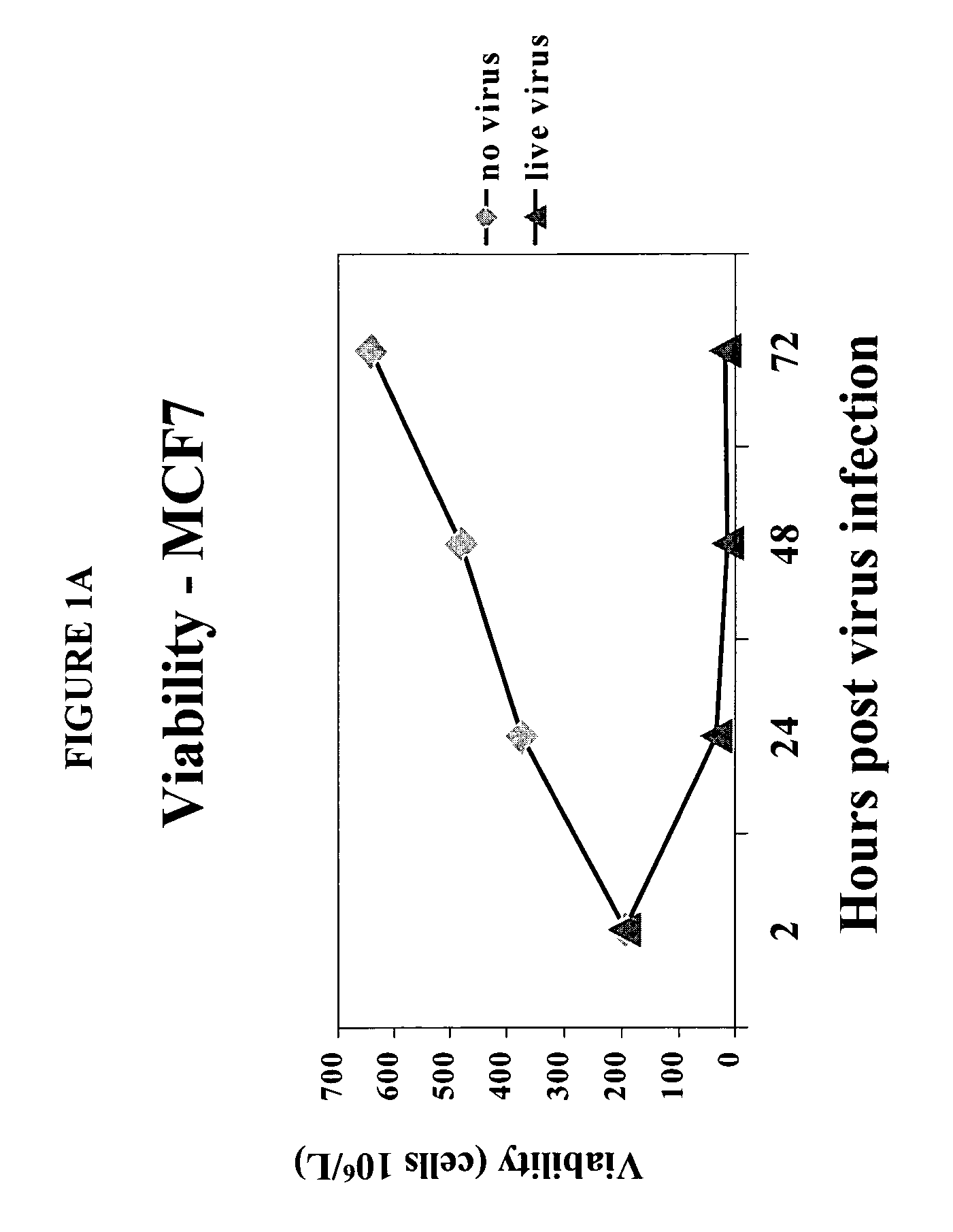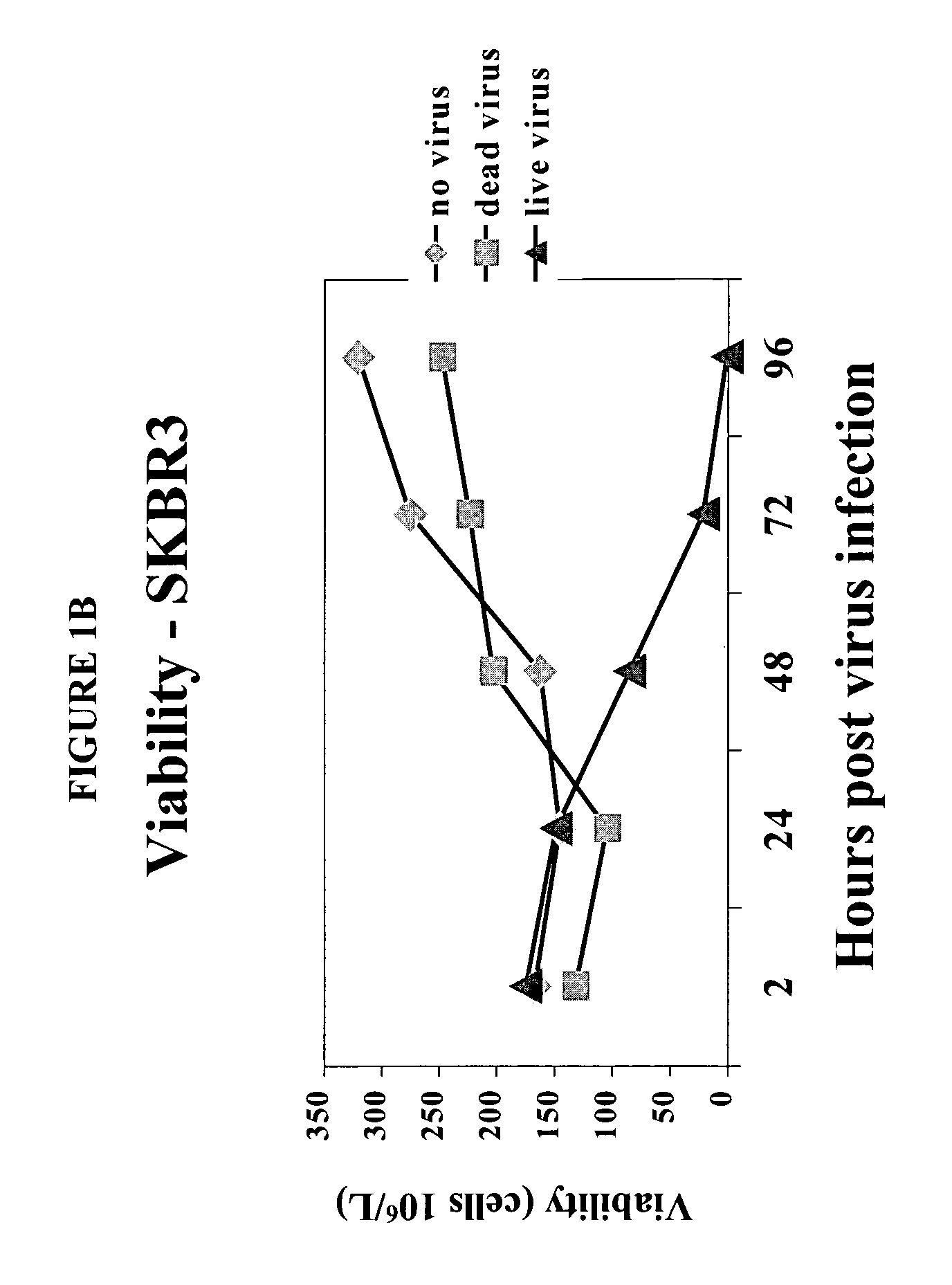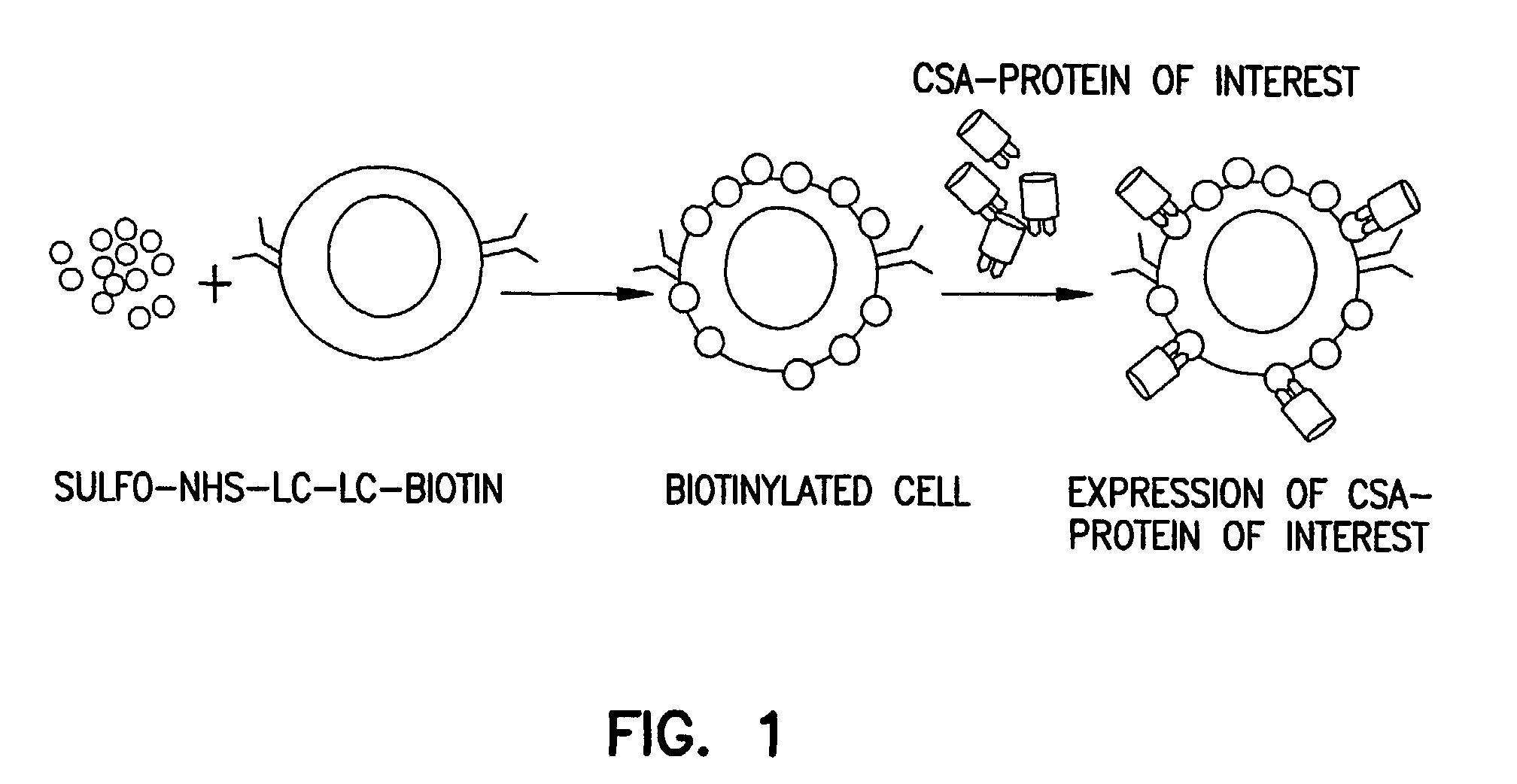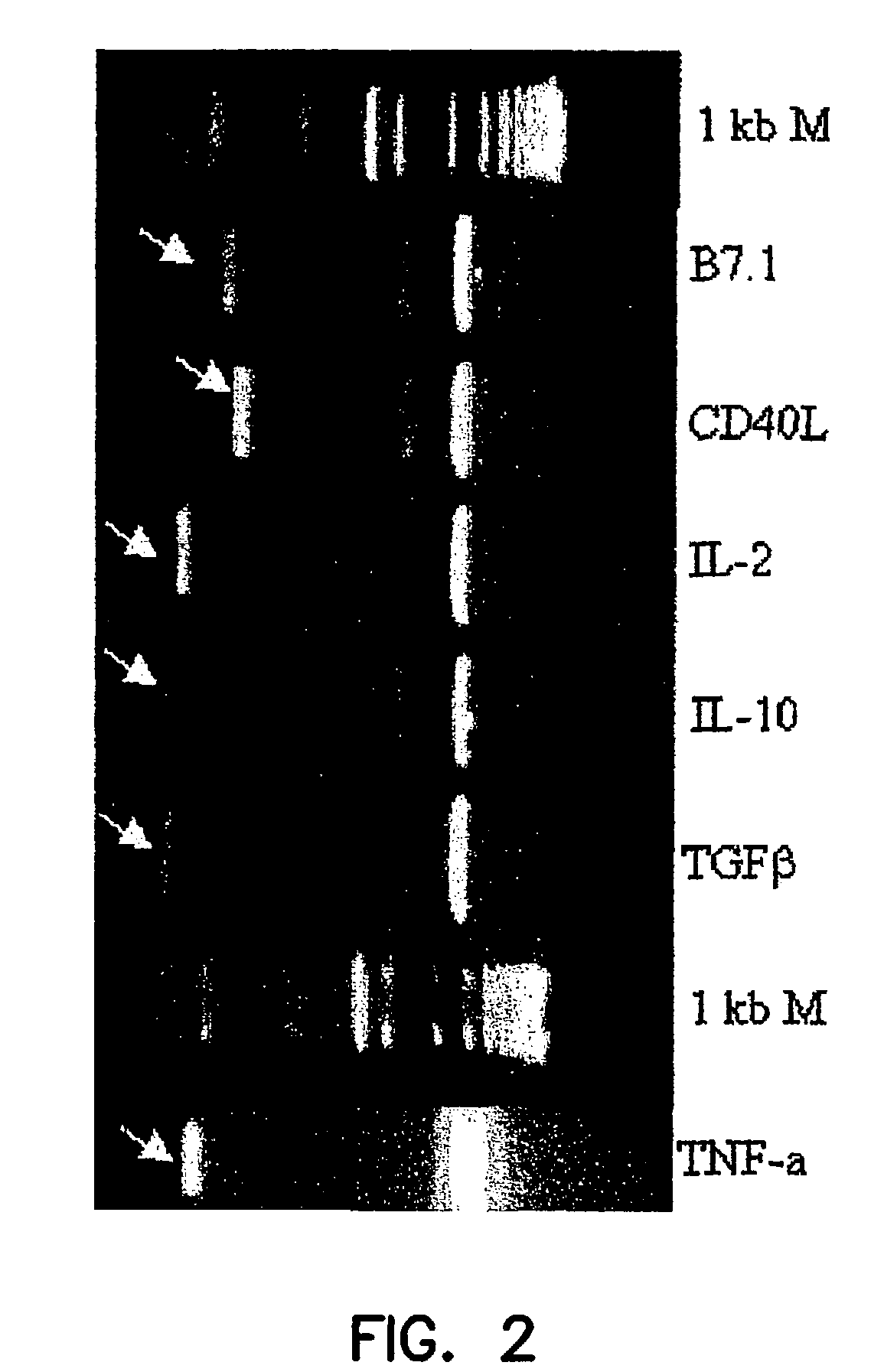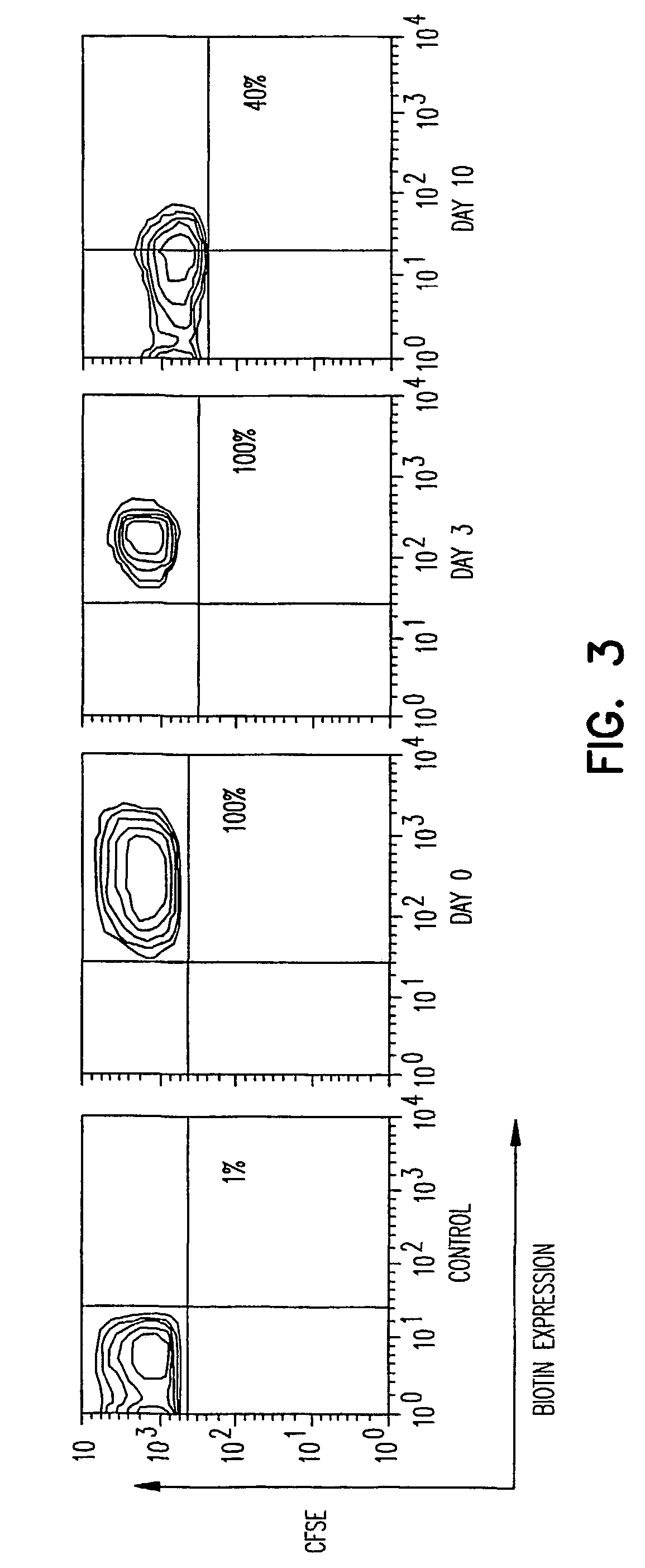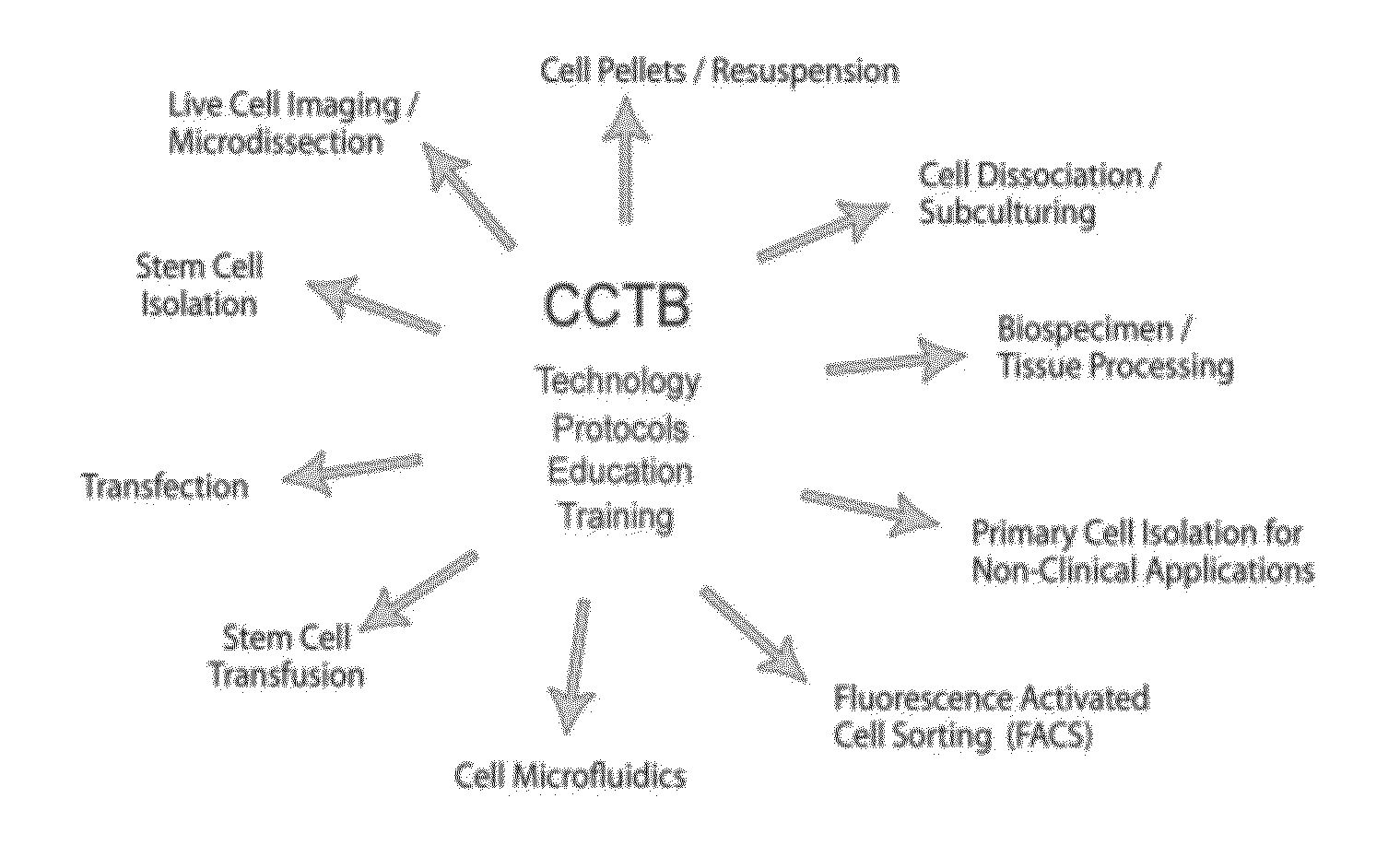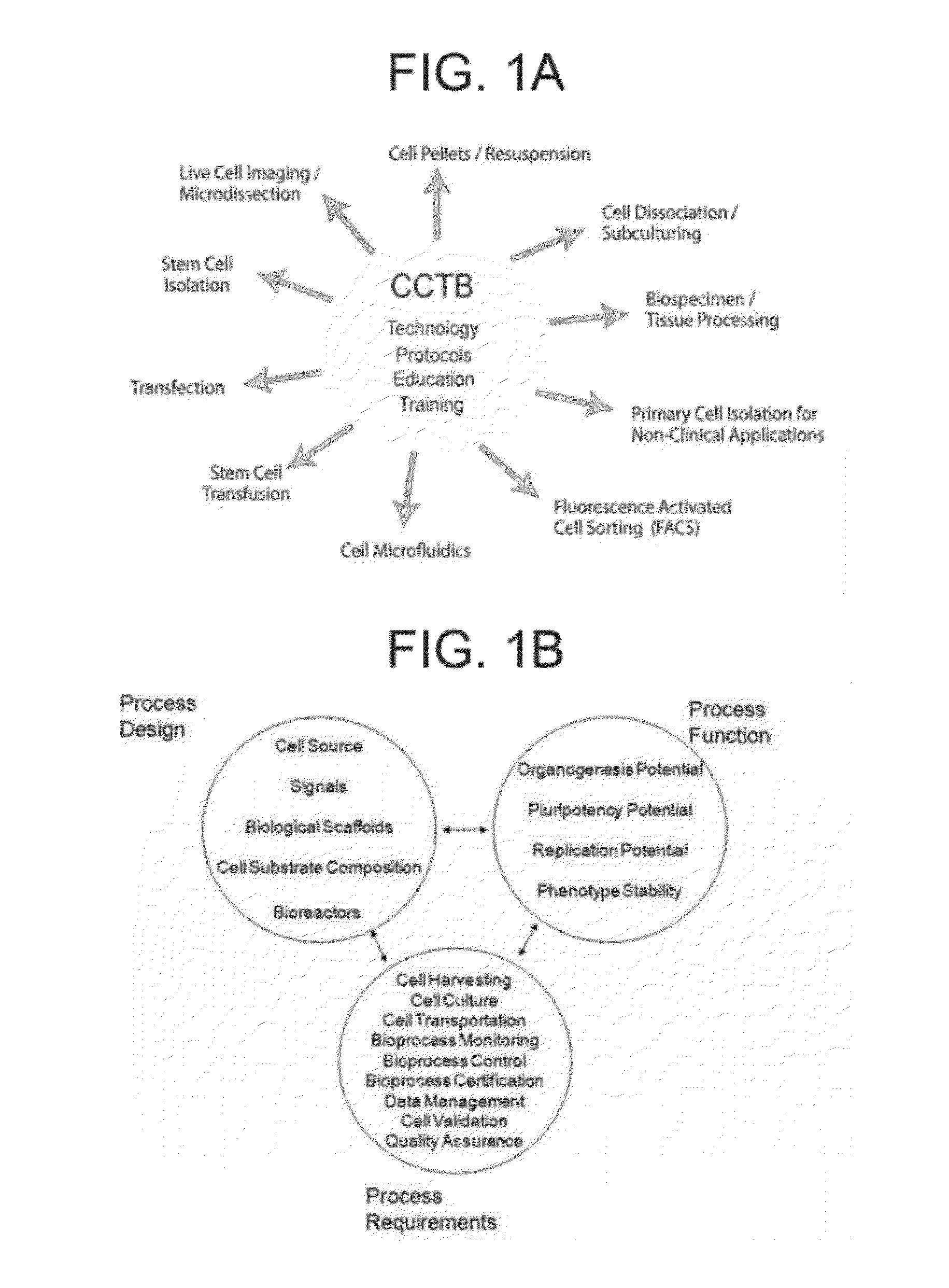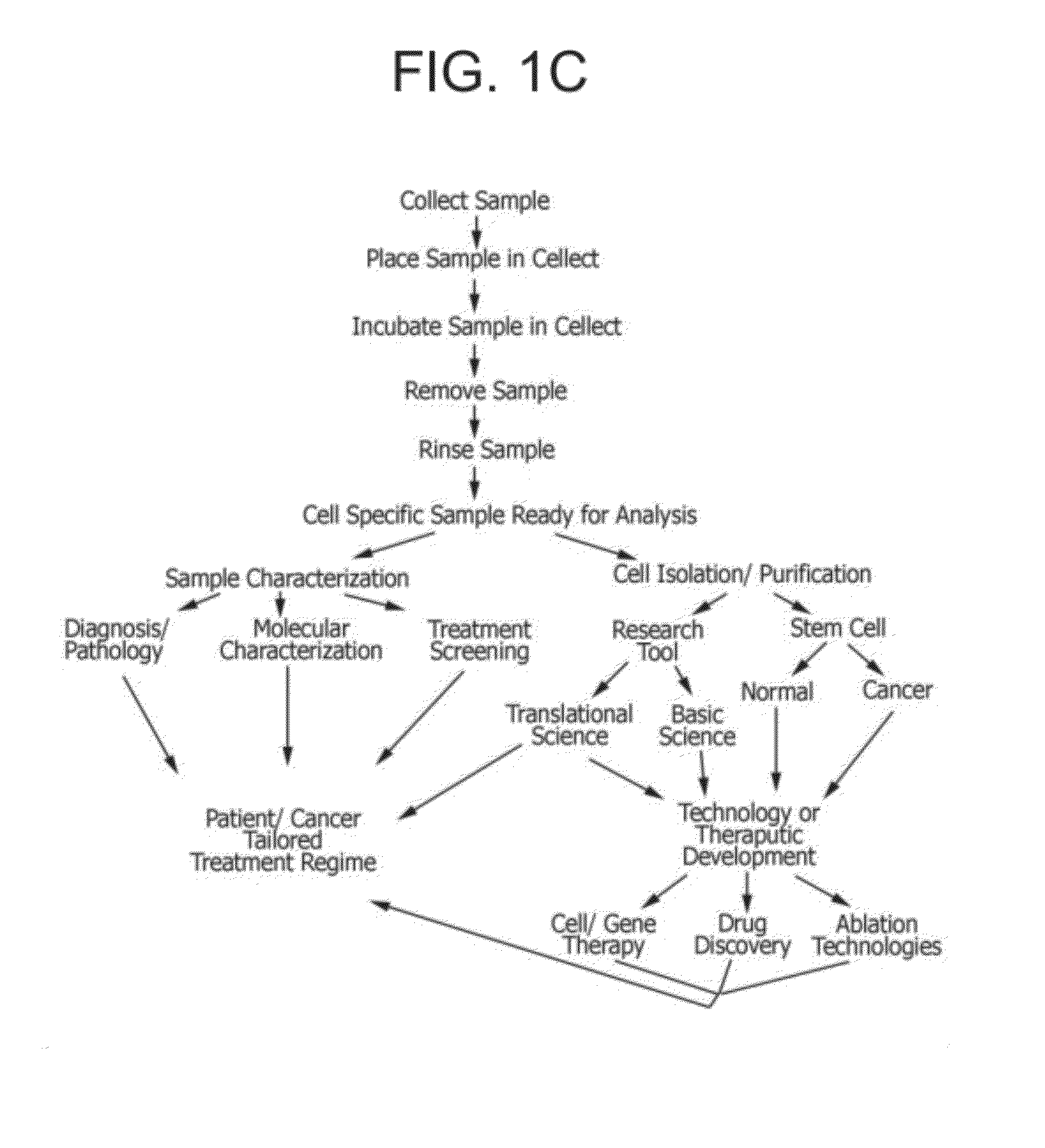Patents
Literature
Hiro is an intelligent assistant for R&D personnel, combined with Patent DNA, to facilitate innovative research.
446results about "Biological preparation purge" patented technology
Efficacy Topic
Property
Owner
Technical Advancement
Application Domain
Technology Topic
Technology Field Word
Patent Country/Region
Patent Type
Patent Status
Application Year
Inventor
Microfluidic device for cell separation and uses thereof
ActiveUS20060134599A1Simple methodBioreactor/fermenter combinationsMaterial nanotechnologyAntigenMembrane permeabilization
The invention features methods for separating cells from a sample (e.g., separating fetal red blood cells from maternal method begins with the introduction of a sample including cells into one or more microfluidic channels. In one embodiment, the device includes at least two processing steps. For example, a mixture of cells is introduced into a microfluidic channel that selectively allows the passage of a desired type of cell, and the population of cells enriched in the desired type is then introduced into a second microfluidic channel that allows the passage of the desired cell to produce a population of cells further enriched in the desired type. The selection of cells is based on a property of the cells in the mixture, for example, size, shape, deformability, surface characteristics (e.g., cell surface receptors or antigens and membrane permeability), or intracellular properties (e.g., expression of a particular enzyme).
Owner:THE GENERAL HOSPITAL CORP
Microfluidic device for cell separation and uses thereof
ActiveUS20070172903A1Simple methodMaterial nanotechnologyBioreactor/fermenter combinationsAntigenCell separation
The invention features methods for separating cells from a sample (e.g., separating fetal red blood cells from maternal blood). The method begins with the introduction of a sample including cells into one or more microfluidic channels. In one embodiment, the device includes at least two processing steps. For example, a mixture of cells is introduced into a microfluidic channel that selectively allows the passage of a desired type of cell, and the population of cells enriched in the desired type is then introduced into a second microfluidic channel that allows the passage of the desired cell to produce a population of cells further enriched in the desired type. The selection of cells is based on a property of the cells in the mixture, for example, size, shape, deformability, surface characteristics (e.g., cell surface receptors or antigens and membrane permeability), or intracellular properties (e.g., expression of a particular enzyme).
Owner:THE GENERAL HOSPITAL CORP
Compositions and methods for treating and diagnosing cancer
InactiveUS20080064049A1Increased ALDH activityEnzymologyArtificial cell constructsSolid tumorCancer research
The present invention relates to compositions and methods for characterizing, treating and diagnosing cancer. In particular, the present invention provides a cancer stem cell profile, as well as novel stem cell cancer markers useful for the diagnosis, characterization, prognosis and treatment of cancer and in particular the targeting of solid tumor stem cells.
Owner:RGT UNIV OF MICHIGAN +1
Preparation of a cell concentrate from a physiological solution
The present invention is directed to methods and compositions regarding the preparation of an cell concentrate, such as, for example, an osteogenic cell concentrate, from a physiological solution, such as bone marrow aspirate, blood, or a mixture thereof. In specific embodiments, the invention provides methods and compositions utilizing two physiological solution-processing techniques, particularly in a point of care environment, wherein centrifugation is not employed.
Owner:SMITH & NEPHEW INC +1
Methods of treating acute myeloid leukemia by blocking CD47
ActiveUS8562997B2Increase the gapEasy to eliminateCompound screeningNervous disorderMyeloid leukemiaCancer cell
Methods are provided to manipulate phagocytosis of cancer cells, including e.g. leukemias, solid tumors including carcinomas, etc.
Owner:THE BOARD OF TRUSTEES OF THE LELAND STANFORD JUNIOR UNIV
Methods of treatment of disease using adsorbent carriers
InactiveUS6498007B1Increase productionReduce in quantityAntibacterial agentsSolvent extractionDiseaseAcetic acid
The invention relates to a method for the removal of leucocytes from blood which comprises bringing blood that comprises infected leucocytes into contact with an adsorbent carrier that has a greater affinity for infected, activated and / or defective leucocytes than for uninfected leucocytes especially cellulose acetate. The method can be used in the apheresis treatment of diseases caused by pathogenic organisms, for example, HIV, HCV or malaria. It is especially useful for treatment of HIV.
Owner:JIMRO
Methods and compositions for killing senescent cells and for treating senescence-associated diseases and disorders
ActiveUS20160339019A1Cause deathReduce the possibilityPowder deliveryOrganic active ingredientsObstructive Pulmonary DiseasesAtheroma
Methods are provided herein for selectively killing senescent cells and for treating senescence-associated diseases and disorders by administering a senolytic agent. Senescence-associated diseases and disorders treatable by the methods using the senolytic agents described herein include cardiovascular diseases and disorders associated with or caused by arteriosclerosis, such as atherosclerosis; idiopathic pulmonary fibrosis; chronic obstructive pulmonary disease; osteoarthritis; senescence-associated ophthalmic diseases and disorders; and senescence-associated dermatological diseases and disorders.
Owner:MAYO FOUND FOR MEDICAL EDUCATION & RES +3
Allogeneic stem cell transplants in non-conditioned recipients
InactiveUS20120269774A1Lower potentialBiocideMammal material medical ingredientsBiologyImmunosuppression
Owner:XON CELLS
Isolation of adult multipotential cells by tissue non-specific alkaline phosphatase
ActiveUS20090074728A1Increase ratingsEasy to transplantAnimal cellsHydrolasesCell biologyAbnormal alkaline phosphatase
The present invention relates to the use of tissue non-specific alkaline phosphatase (TNAP) as a marker for identifying and / or isolating adult multipotential cells. The present invention also relates to cell populations enriched by methods of the present invention and therapeutic uses of these cells.
Owner:MESOBLAST
Preparation of a cell concentrate from a physiological solution
The present invention is directed to methods and compositions regarding the preparation of an cell concentrate, such as, for example, an osteogenic cell concentrate, from a physiological solution, such as bone marrow aspirate, blood, or a mixture thereof. In specific embodiments, the invention provides methods and compositions utilizing two physiological solution-processing techniques, particularly in a point of care environment, wherein centrifugation is not employed.
Owner:SMITH & NEPHEW INC +1
Method and compositions for isolating metastatic cancer cells, and use in measuring metastatic potentatial of a cancer thereof
InactiveUS20030206901A1Quick checkRapid isolationSolvent extractionOther blood circulation devicesCancer cellProteinase activity
The present invention relates to novel methods and compositions for detection and isolation of cancer cells with metastatic potential. The invention further relates to assays for measuring the metastatic potential of such cancer cells and drug screening assays for the identification of agents having anti-metastatic potential. The present invention further provides methods and compositions for inhibiting the metastatic potential of cancer cells by modulating the activity of serine integral membrane proteases [(SIMP) consisting of seprase and dipedidyl peptidase IV (DPPIV)]expressed on the surface of metastasizing cancer cells.
Owner:THE RES FOUND OF STATE UNIV OF NEW YORK
Methods for Manipulating Phagocytosis Mediated by CD47
ActiveUS20110014119A1Increase the gapEasy to eliminateCompound screeningNervous disorderCancer cellSolid tumor
Methods are provided to manipulate phagocytosis of cancer cells, including e.g. leukemias, solid tumors including carcinomas, etc.
Owner:THE BOARD OF TRUSTEES OF THE LELAND STANFORD JUNIOR UNIV
Methods and compositions for isolating metastatic cancer cells, and use in measuring metastatic potential of a cancer thereof
InactiveUS20050153342A1Rapid and efficient detection and selectionQuick checkMaterial analysis by observing effect on chemical indicatorOther blood circulation devicesCancer cellProteinase activity
The present invention relates to novel methods and compositions for detection and isolation of cancer cells with metastatic potential. The invention further relates to assays for measuring the metastatic potential of such cancer cells and drug screening assays for the identification of agents having anti-metastatic potential. The present invention further provides methods and compositions for inhibiting the metastatic potential of cancer cells by modulating the activity of serine integral membrane proteases [(SIMP) consisting of seprase and dipetidyl peptidase IV (DPPIV)] expressed on the surface of metastasizing cancer cells.
Owner:THE RES FOUND OF STATE UNIV OF NEW YORK
Cellular compositions which facilitate engraftment of hematopoietic stem cells while minimizing the risk of gvhd
The present invention provides for cellular compositions which facilitate engraftment of hematopoietic stem cells from a syngeneic, allogeneic or xenogeneic donor. The cellular compositions of the invention facilitate engraftment while minimizing the risk of graft versus host disease in the graft recipient. According to a preferred embodiment of the invention, a cell composition is provided, which cell composition comprises hematopoietic stem cells, such as CD34+ cells and / or facilitating cells, in combination with αβ TCR+ T cells. The invention also relates to methods of using the cellular compositions of the invention to induce donor specific tolerance in a recipient, thus allowing the transplantation of donor organs, cells and tissues. Also disclosed are methods of treating leukemia and cancer as well as infectious diseases caused by viruses.
Owner:JEWISH HOSPITAL HEALTHCARE SERVICES
Coating material for leukocyte removal filter and the filter
InactiveUS7721898B2Good removal effectSmall volumeSemi-permeable membranesHaemofiltrationWhole blood productWhite blood cell
It is intended to provide a polymer for coating a leukocyte removal filter material which is excellent in the capability of removing leukocytes. It is further intended to provide a filter whereby both of leukocytes and platelets can be highly efficiently removed from a blood product containing leukocytes and platelets. The above objects can be achieved by using a polymer for coating a leukocyte removal filter material which comprises a unit originating in a hydrophobic polymerizable monomer, a unit originating in a polymerizable monomer containing a basic nitrogen-containing part, and a unit originating in a polymerizable monomer containing a protonic neutral hydrophilic part.
Owner:ASAHI KASEI MEDICAL CO LTD
Ex vivo methods for targeting or depleting acute myeloid leukemia cancer stem cells
Owner:THE BOARD OF TRUSTEES OF THE LELAND STANFORD JUNIOR UNIV
Continuous flow chamber device for separation, concentration, and/or purfication of cells
InactiveUS20070178084A1Good effectFew stepsAntibody ingredientsImmunoglobulinsAbnormal tissue growthContinuous flow
The present invention relates to methods and apparatuses for cell separation. In particular, the invention relates to separation of a particular cell type from a mixture of different cell types based on the differential rolling property of the particular cell type on a substrate coated with molecules that exhibits adhesive property with the particular cell type. This technology is adaptable for use in implantable shunts and devices for cell trafficking or tumor neutralization.
Owner:UNIVERSITY OF ROCHESTER
Purging of cells using viruses
InactiveUS20020037543A1Preventing graft-versus-host diseasesHigh selectivityNervous disorderPeptide/protein ingredientsAutoimmune conditionGraft versus host disease induction
The subject invention relates to viruses that are able to purge (reduce or eliminate) undesirable cells in a mixture of cells. Undesirable cells can include neoplastic cells, cells mediating graft-versus host diseases, and autoimmune cells. The subject invention also relates to the purging of undesirable cells from bone marrow or peripheral blood cell harvests in the treatment of mammals including cancer patients, transplant recipients, and patients with autoimmune disease.
Owner:PRO VIRUS
Particle/cell separation device and compositions
ActiveUS20060127382A1Extended storage timeCause effectsBioreactor/fermenter combinationsBiocideGranular cellNeutrophil granulocyte
Owner:BLUE ENGINE BIOLOGICS LLC
Prevention, decrease, and/or treatment of immunoreactivity by depleting and/or inactivating antigen presenting cells in the host
InactiveUS20060222633A1Efficiently presentedPreventing graft versus host diseaseBiocideBacterial antigen ingredientsAntigenGraft versus host disease induction
The invention includes compositions and methods for depleting and / or inactivating antigen presenting cells, or for otherwise impairing the biological function of antigen presenting cells, which compositions are useful for treatment of graft versus host disease and other immune diseases.
Owner:YALE UNIV
Regulatory b cells and their uses
The present invention relates to a phenotypically distinct CD1dhigh CD5+ B cell subset that regulates T cell mediated inflammatory responses through the secretion of interleukin-10 (IL-IO). The invention also relates to the use of these IL-IO producing regulatory B cells in the manipulation of immune and inflammatory responses, and in the treatment of disease. Therapeutic approaches involving adoptive transfer of these regulatory B cells, or expansion of their endogenous levels for controlling autoimmune or inflammatory diseases and conditions are described. Ablation of this subset of regulatory B cells, or inhibition of their IL-IO production can be used to upregulate immunodeficient conditions, and / or to treat tumors / cancer. Diagnostic applications also are encompassed.
Owner:DUKE UNIV
Compositions and methods for eliminating undesired subpopulations of T cells in patients with immunological defects related to autoimmunity and organ or hematopoietic stem cell transplantation
InactiveUS20050084967A1Reduce riskReduce severityMicrobiological testing/measurementArtificial cell constructsAutoimmune responsesHematopoietic stem cell transplantation
The present invention relates generally to methods for stimulating T cells, and more particularly, to methods to eliminate undesired (e.g. autoreactive, alloreactive, pathogenic) subpopulations of T cells from a mixed population of T cells, thereby restoring the normal immune repertoire of said T cells. The present invention also relates to compositions of cells, including stimulated T cells having restored immune repertoire and uses thereof.
Owner:LIFE TECH CORP
Continuous flow chamber device for separation, concentration, and/or purification of cells
InactiveUS20090022768A1Good effectFew stepsBioreactor/fermenter combinationsBiological substance pretreatmentsAbnormal tissue growthCancer cell
The present invention relates to methods and apparatuses for neutralizing cancer cells. In particular, the invention relates to separating of cancer cell type from a mixture of different cell types based on the differential rolling property of cancer cell on a substrate coated with a first molecules that exhibits adhesive property with the particular cell type and neutralizing the cancer cell by a second molecule that is also coated on the substrate. This technology is adaptable for use in vivo, in vitro, or ex vivo tumor neutralization.
Owner:UNIVERSITY OF ROCHESTER
mAb-DRIVEN CHIMERIC ANTIGEN RECEPTOR SYSTEMS FOR SORTING/DEPLETING ENGINEERED IMMUNE CELLS
PendingUS20180002435A1Strong cytotoxicityPromote CDC cytotoxicityAnimal cellsAntibody mimetics/scaffoldsEpitopeBinding domain
A polypeptide encoding a chimeric antigen receptor (CAR) comprising at least one extracellular binding domain that comprises a scFv formed by at least a VH chain and a VL chain specific to an antigen, wherein said extracellular binding domain comprises at least one mAb-specific epitope.
Owner:CELLECTIS SA +1
Methods for the isolation and expansion of cord blood derived T regulatory cells
ActiveUS20060062763A1Prevent proliferationBiocideArtificial cell constructsCord blood stem cellT-regulatory cell
The present invention encompasses methods, and kits for the isolation and expansion of T regulatory cells having the CD45RA+ phenotype, including such cells from human umbilical cord blood.
Owner:THE TRUSTEES OF THE UNIV OF PENNSYLVANIA
Hematopoietic cell composition for use in transplantation
InactiveUS7101708B1Prevent implantationInhibit migrationBiocideGenetic material ingredientsProgenitorCXCR4
Cell compositions consisting essentially of mammalian hematopoietic CXCR4+ stem and progenitor capable to migrate in response to stromal-derived factor 1 (SDF-1) and / or capable to adhere to stromal cells in response to an adhesion-inducing agent, are provided for clinical transplantation. Hematopoietic CXCR4− / low stem and progenitor cells can be converted into CXCR4+ cells by stimulation with a suitable agent. The composition consists preferably of human CD38− / low CXCR44 cells.
Owner:YEDA RES & DEV CO LTD
Compositions and methods for treating and diagnosing cancer
The present invention relates to compositions and methods for characterizing, treating and diagnosing cancer. In particular, the present invention provides a cancer stem cell profile, as well as novel stem cell cancer markers useful for the diagnosis, characterization, prognosis and treatment of cancer and in particular the targeting of solid tumor stem cells.
Owner:RGT UNIV OF MICHIGAN +1
Reovirus clearance of ras-mediated neoplastic cells from mixed cellular compositions
Reovirus can be used to selectively remove ras-mediated neoplastic cells from a cellular composition. It is of particular interest to purge autographs which may contain neoplastic cells with reovirus before transplanting the autographs back into the recipient, thereby reducing the risk of introducing or reintroducing neoplastic cells into the recipient.
Owner:ONCOLYTICS BIOTECH
Alteration of cell membrane with B7
InactiveUS7238360B2Systemic effectInhibitionOrganic active ingredientsPeptide/protein ingredientsForeign proteinApoptosis
Methods and compositions are provided for the persistent modification of cell membranes with exogenous proteins so as to alter the function of the cell to achieve effects similar to those of gene therapy, without the introduction of exogenous DNA. DNA sequences, the proteins and polypeptides embodying these sequences are disclosed for modulating the immune system. The modulations include down-regulation, up-regulation and apoptosis.
Owner:UNIV OF LOUISVILLE RES FOUND INC
Cell Culture Media Supplement and Method of Molecular Stress Control
InactiveUS20120028933A1High yieldFunction increaseBiocideHydroxy compound active ingredientsCell culture mediaStressor
A novel class of agents has been identified to serve as cell-guard agents and / or target-specific supplements to increase cell quality and yield, as well as select for target cell populations. Laboratory experiments have demonstrated the use of cell-guard agents and / or target-specific supplements in the bioprocessing of cells as well as in selecting out a desired cell population. Several potential additive agents (both natural and synthetic) have been identified during these studies, including Vitamin D3, NAC, resveratrol, salubrinal, AKT, and tunicamycin (among others) that hold promise for application in cell models. In one embodiment, hypothermic stress regimes are utilized. In another embodiment, normothermic conditions are utilized while other stressors are tested in the processing. The methods of maintaining mass cell cultures and / or selecting out particular cell populations for further research and clinical use represents an important step in therapeutic discovery. The cell-guard agents are process-matched and cell-matched to protect and / or select particular cells during laboratory and clinical manipulation. The components modulate cell stress and survival pathways.
Owner:CPSI HLDG
Features
- R&D
- Intellectual Property
- Life Sciences
- Materials
- Tech Scout
Why Patsnap Eureka
- Unparalleled Data Quality
- Higher Quality Content
- 60% Fewer Hallucinations
Social media
Patsnap Eureka Blog
Learn More Browse by: Latest US Patents, China's latest patents, Technical Efficacy Thesaurus, Application Domain, Technology Topic, Popular Technical Reports.
© 2025 PatSnap. All rights reserved.Legal|Privacy policy|Modern Slavery Act Transparency Statement|Sitemap|About US| Contact US: help@patsnap.com
